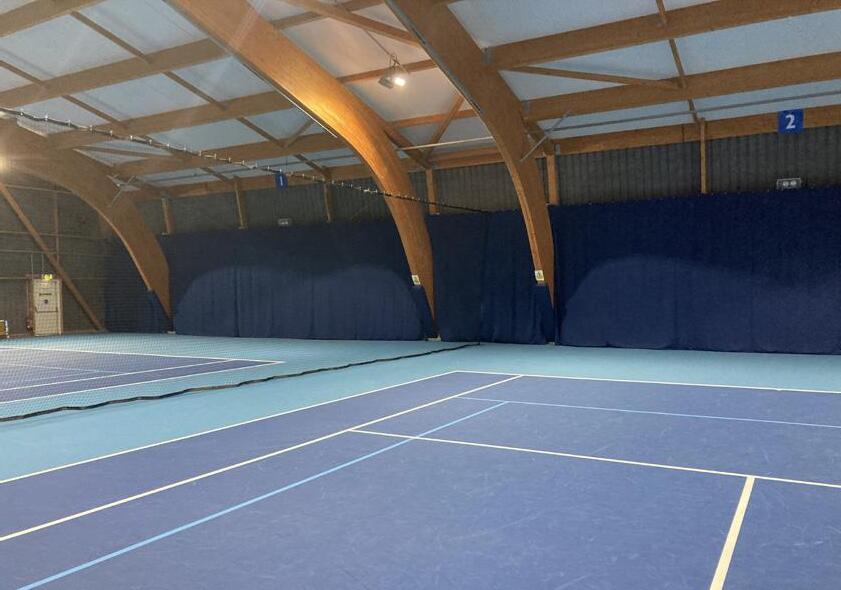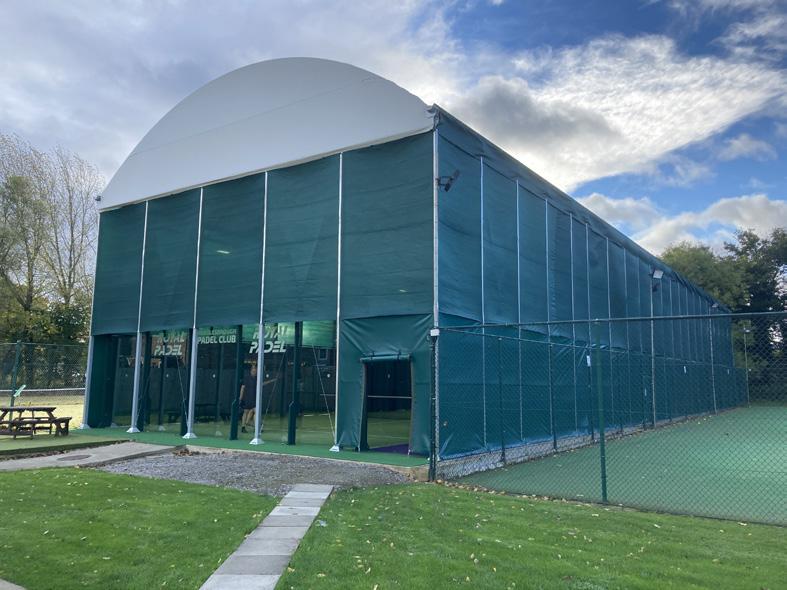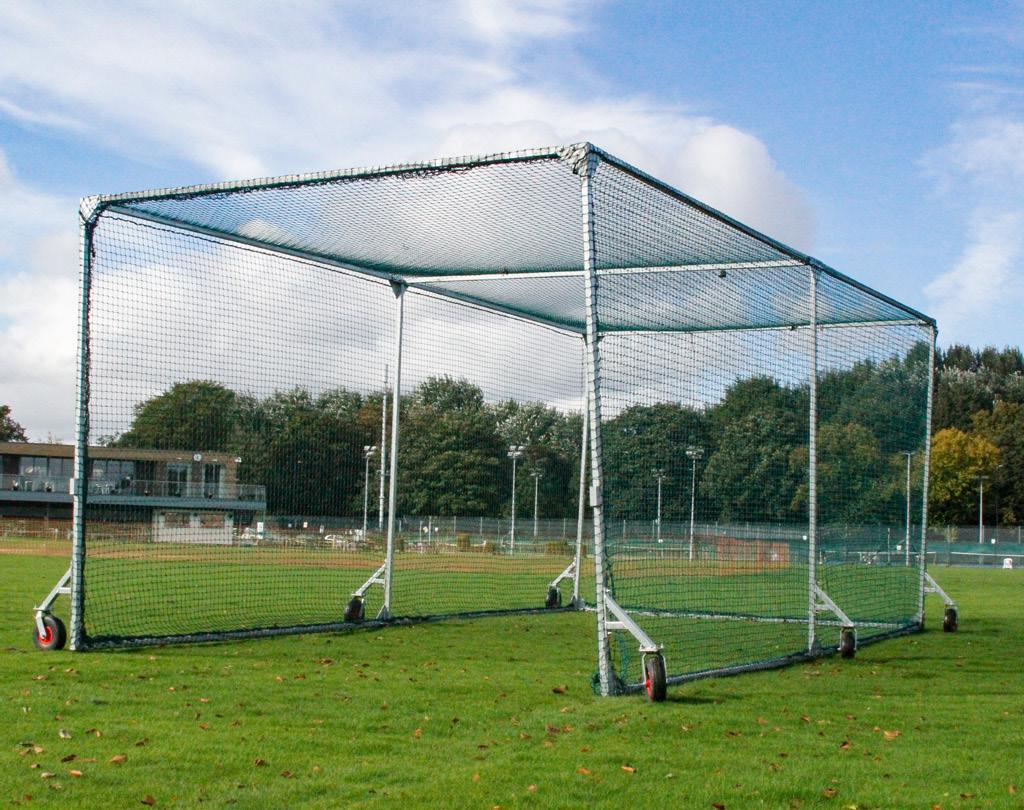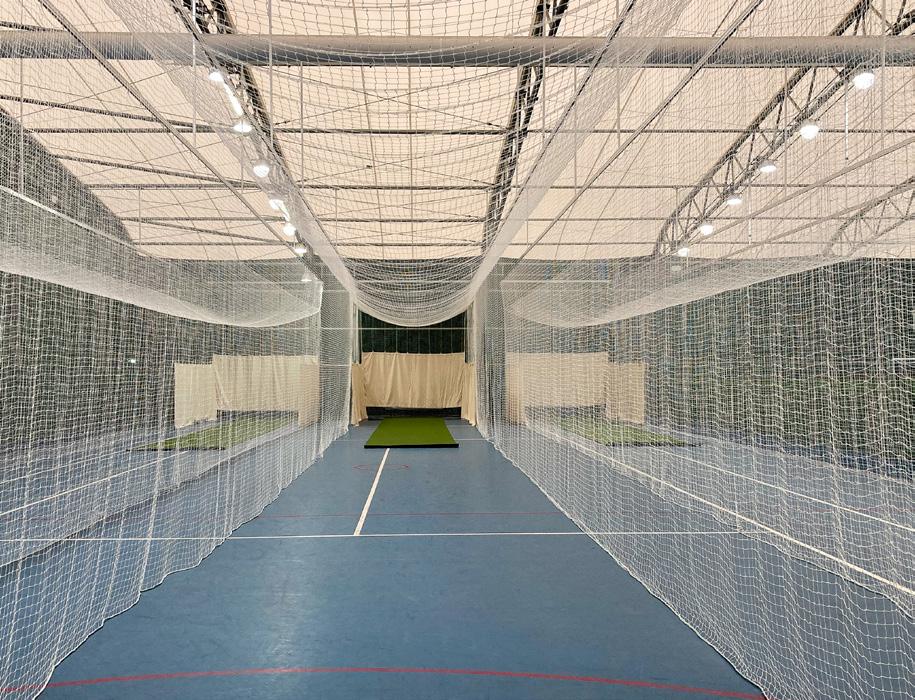

DESIGN & BUILD



DESIGN & BUILD
How to reduce both operational and embodied carbon in schools

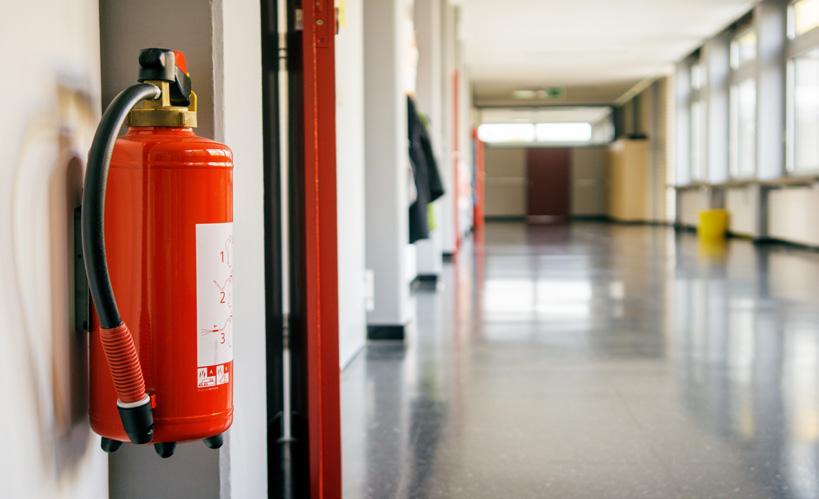
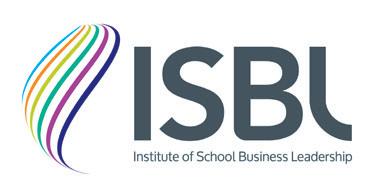





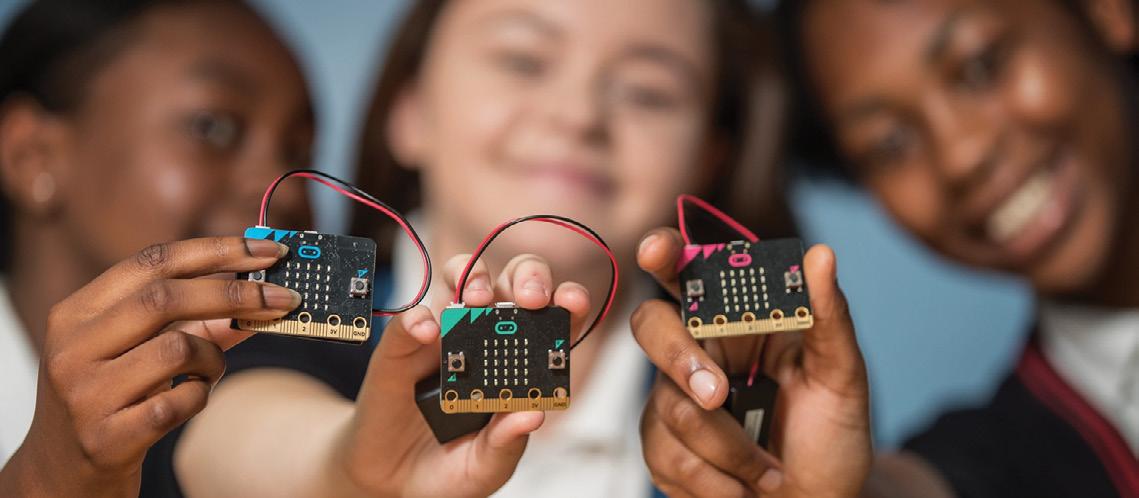
Welcome to the world of BBC micro:bit – a revolutionary pocket-sized computer designed to inspire creativity and empower young minds. OKdo, part of the RS Group, is a manufacturer and global distributor of the micro:bit, and we’re dedicated to helping you inspire the next generation through innovative technology
The versatility of the micro:bit and its compatible accessories make it a valuable tool that can be used across the curriculum to enhance learning in subjects not traditionally associated with STEM.
History - Take a lunar journey with an Apollo 11 made from the Makekit drone.
Art - Synchronise micro:bits to create a fusion of lights and sound, offering an immersive and fun experience.

Sports - Take part in fitness challenges by programming micro:bits to track steps or monitor heart rate during physical activities.
Geography - Bring cultural symbols, traditional clothing, or historical facts to life. Unveil the world's wonders by placing micro:bits on maps.
Music - Display patterns and colours that dance to the rhythm of sound output
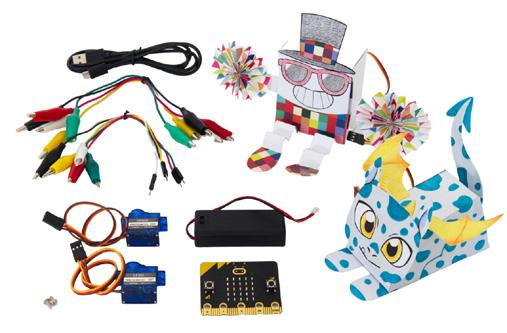
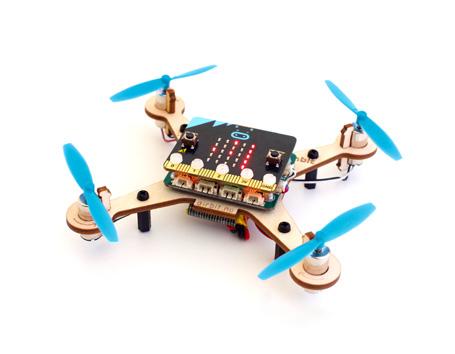

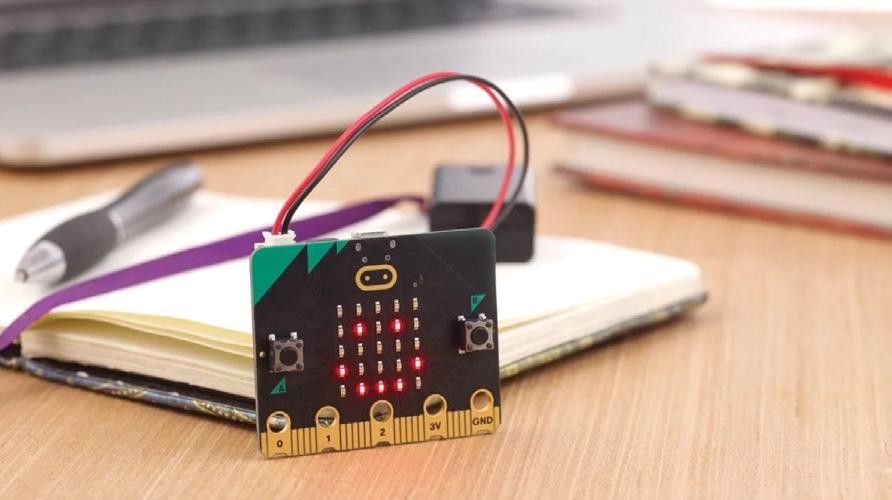


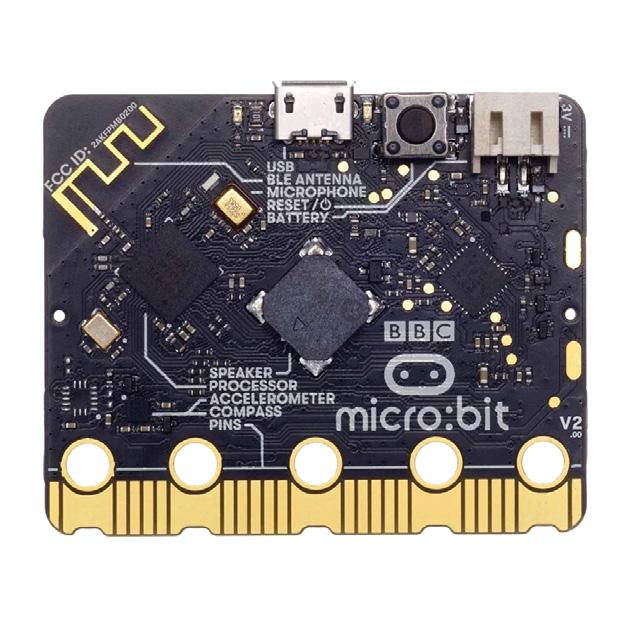



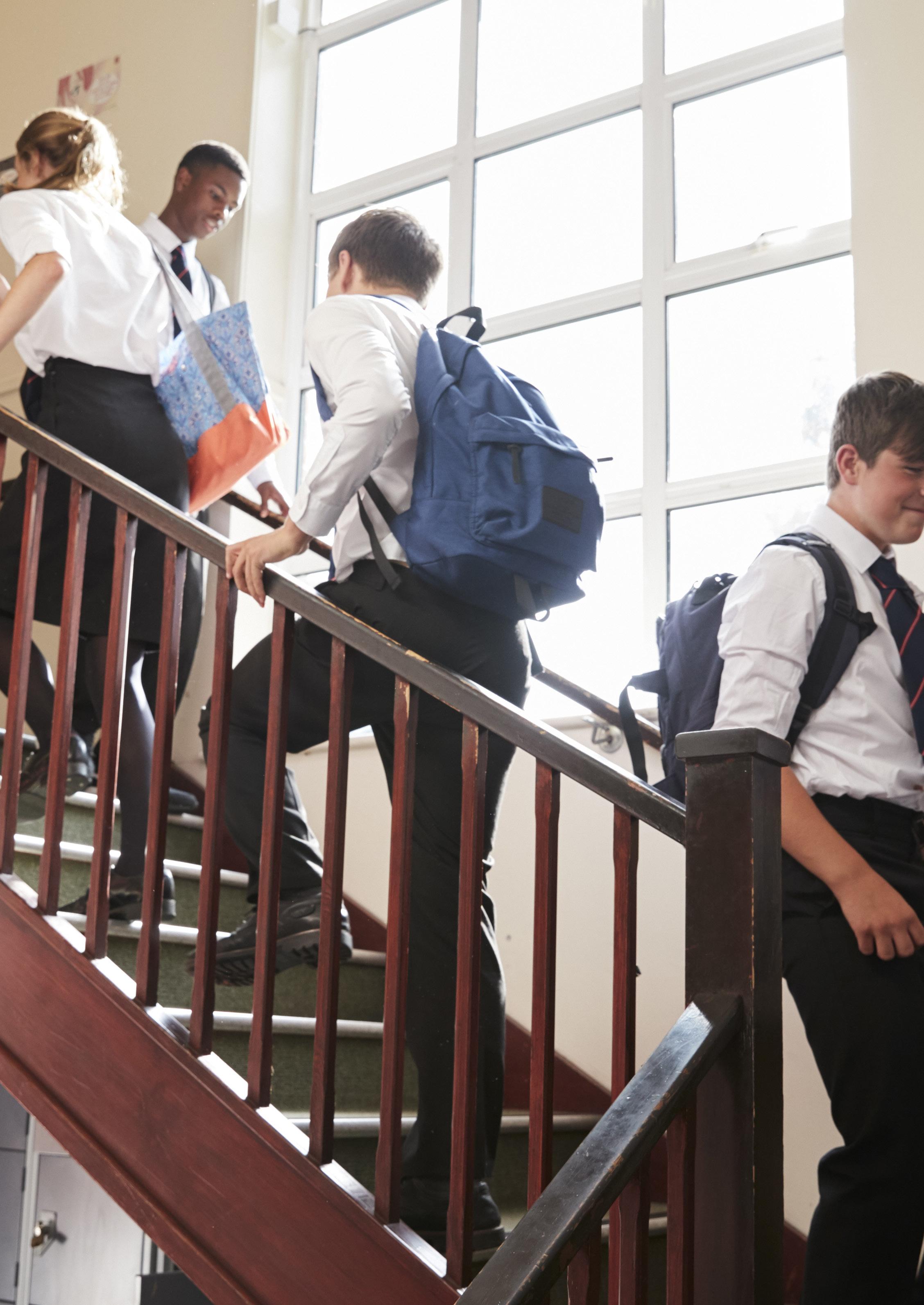
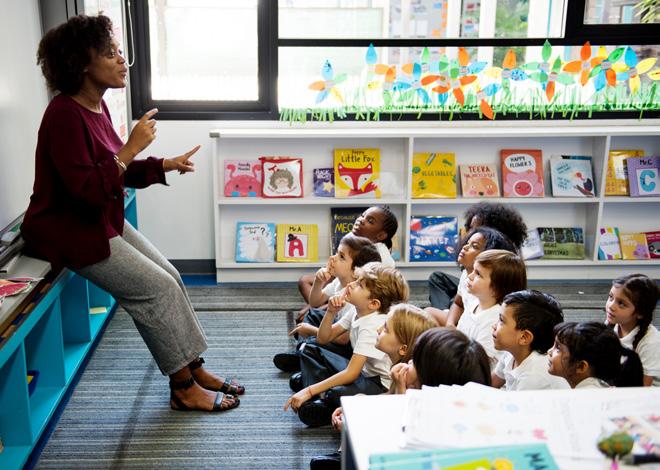









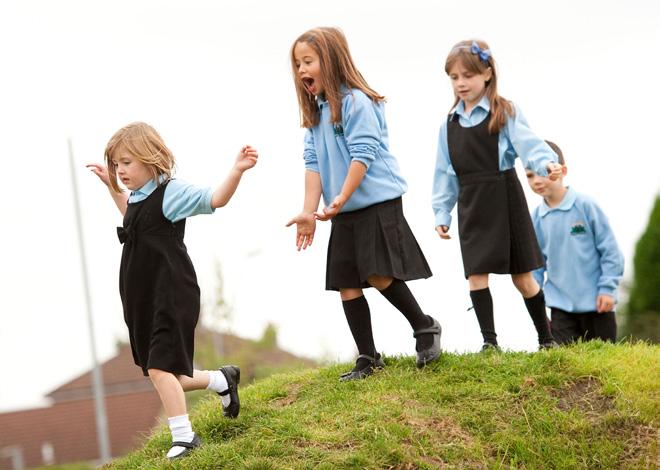



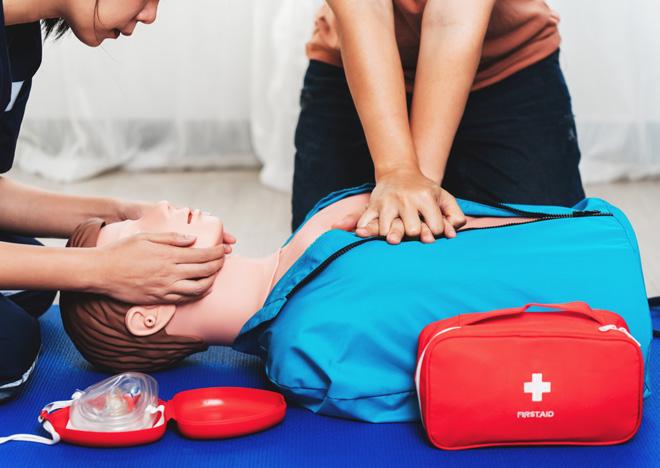
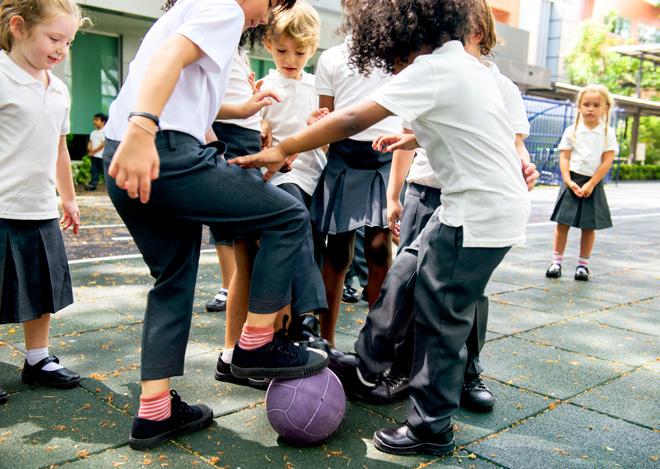


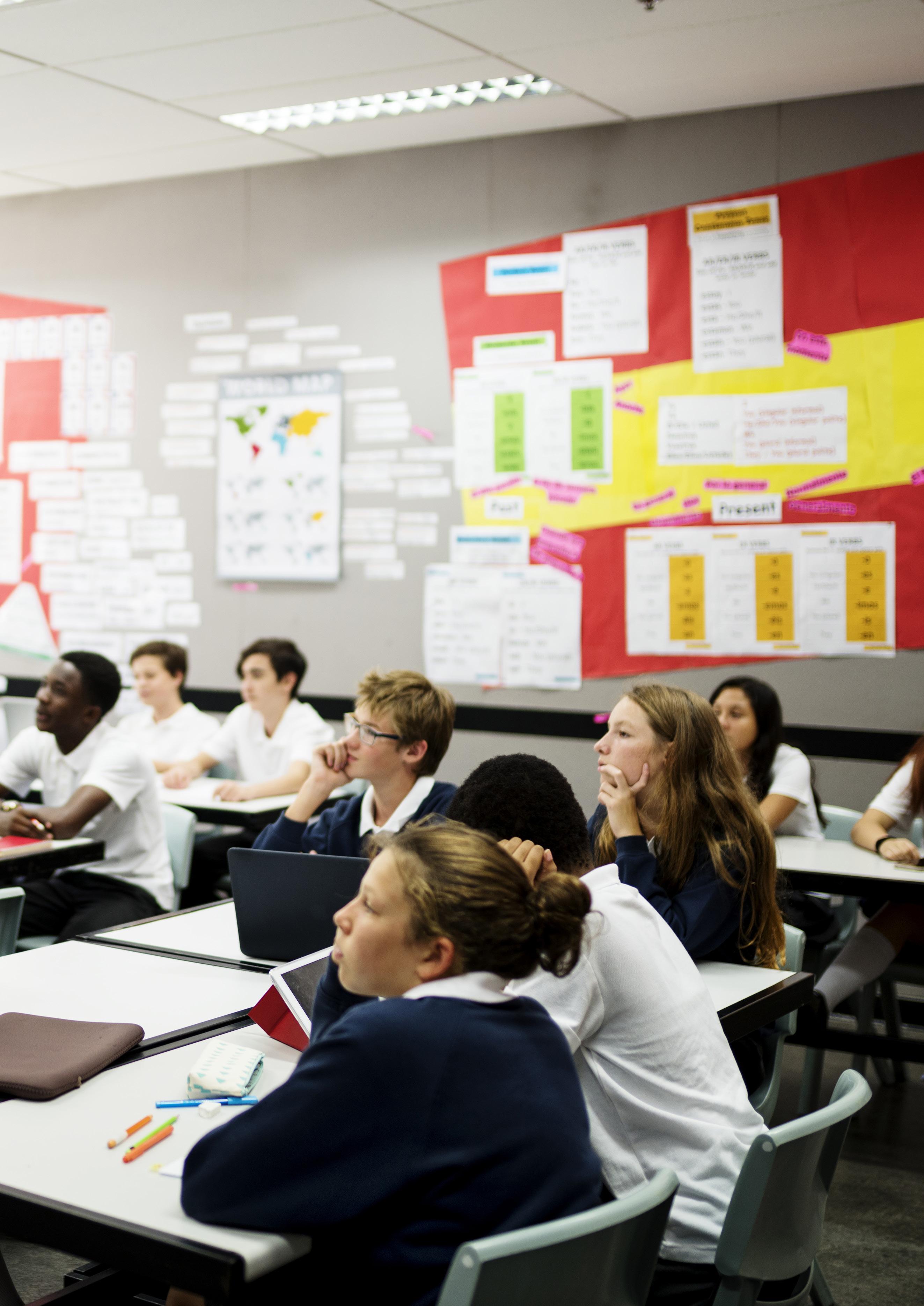
Ten years after financial education was added to the national curriculum, a new Education Committee report calls on the government to bolster the subject in primary and secondary schools and at post-16 level.
Financial education can cover a wide range of skills from reading a payslip, understanding the impact of money on relationships, awareness of online scams and judging financial risks.
The cross-party Committee’s report makes recommendations to the Department for Education (DfE) on expanding financial education at primary school level, encouraging schools to appoint financial education coordinators, and improving access to quality learning materials. It also recommends looking at how the subject could become a key component of the government’s proposal for all 16-18-year-olds to study maths.
Financial education has formally been part of the national curriculum since 2014, and is required to be taught in local authority-run schools as part of the maths curriculum at primary and secondary level, and through citizenship studies from ages 11-16.
Schools also have the option to include it in personal, social, health and economic education (PSHE). The Committee said that many schools find it hard to prioritise areas of financial education beyond basic concepts such as calculations using money...


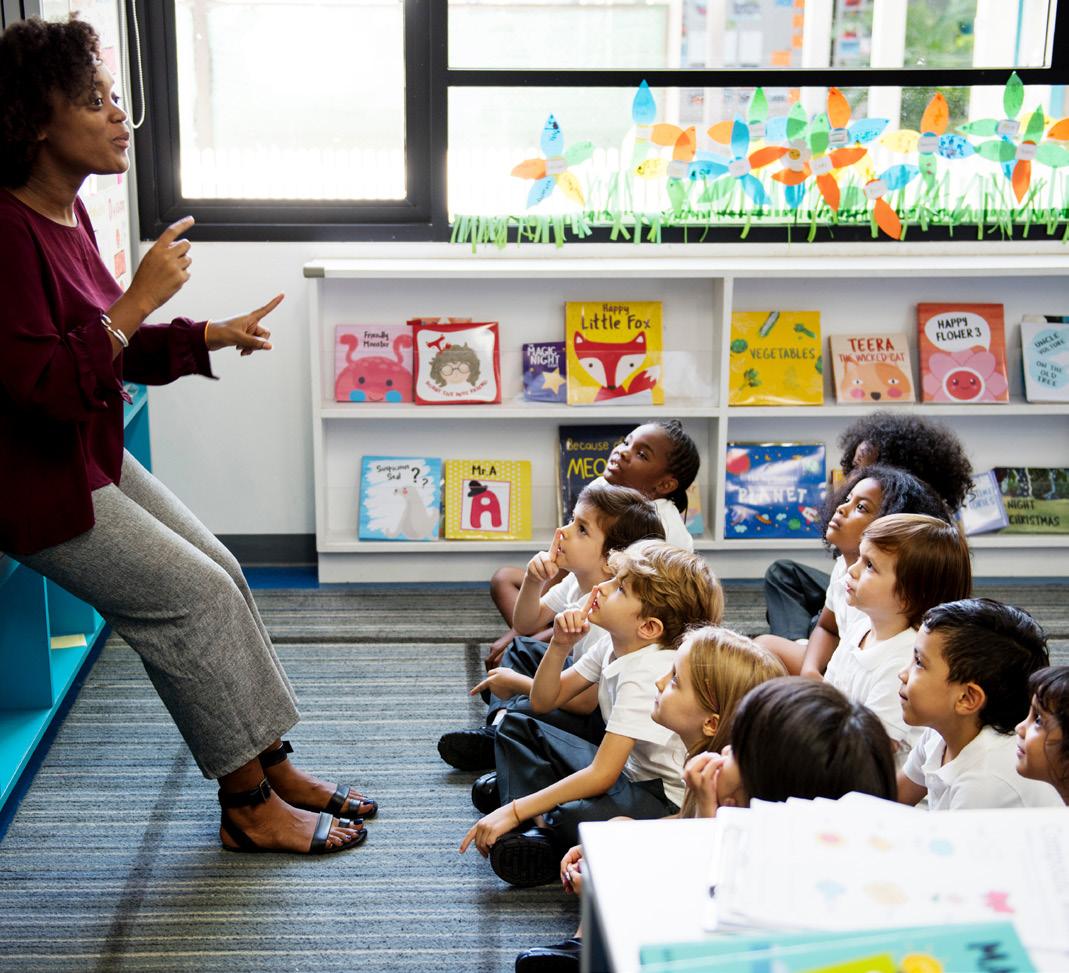
NAHT launches manifesto prior to general election
Teachers’ union NAHT has launched its manifesto entitled ‘For Their Future’, calling for children’s education to be a pivotal part of the debate leading up to the July general election.
The union is calling on all parties to pledge to “restore education to its rightful place as a national priority.”
They said this will be the most important general election for children and young people in decades.
The manifesto emphasises the crucial role of education in giving children the start they need in life and in shaping society’s future. It pinpoints three issues relating to schools that they said the next government must address.
These include a decrepit school estate, a special educational needs (SEND) system failing pupils, and the recruitment and retention crises.
It highlights how additional funding for education will be essential in solving all these pressing issues.
The manifesto reiterates NAHT’s calls for fundamental reform of the school inspection system, particularly the removal of single-word judgements.
It also highlights an opportunity for the next government to ensure that schools meet the needs of all pupils by delivering a curriculum and assessment system that prepares them for life in the modern world.

From nurseries and primary schools to colleges and universities, we’re committed to raising the standard of washrooms for children and young adults. With safety, privacy, performance, hygiene and value for money all carefully considered within our product offering, you can seamlessly specify complete commercial washroom packages with a 10-year product guarantee.

Find out more about our education ranges.
01474 353333 www.venesta.co.uk marketing@venesta.co.uk
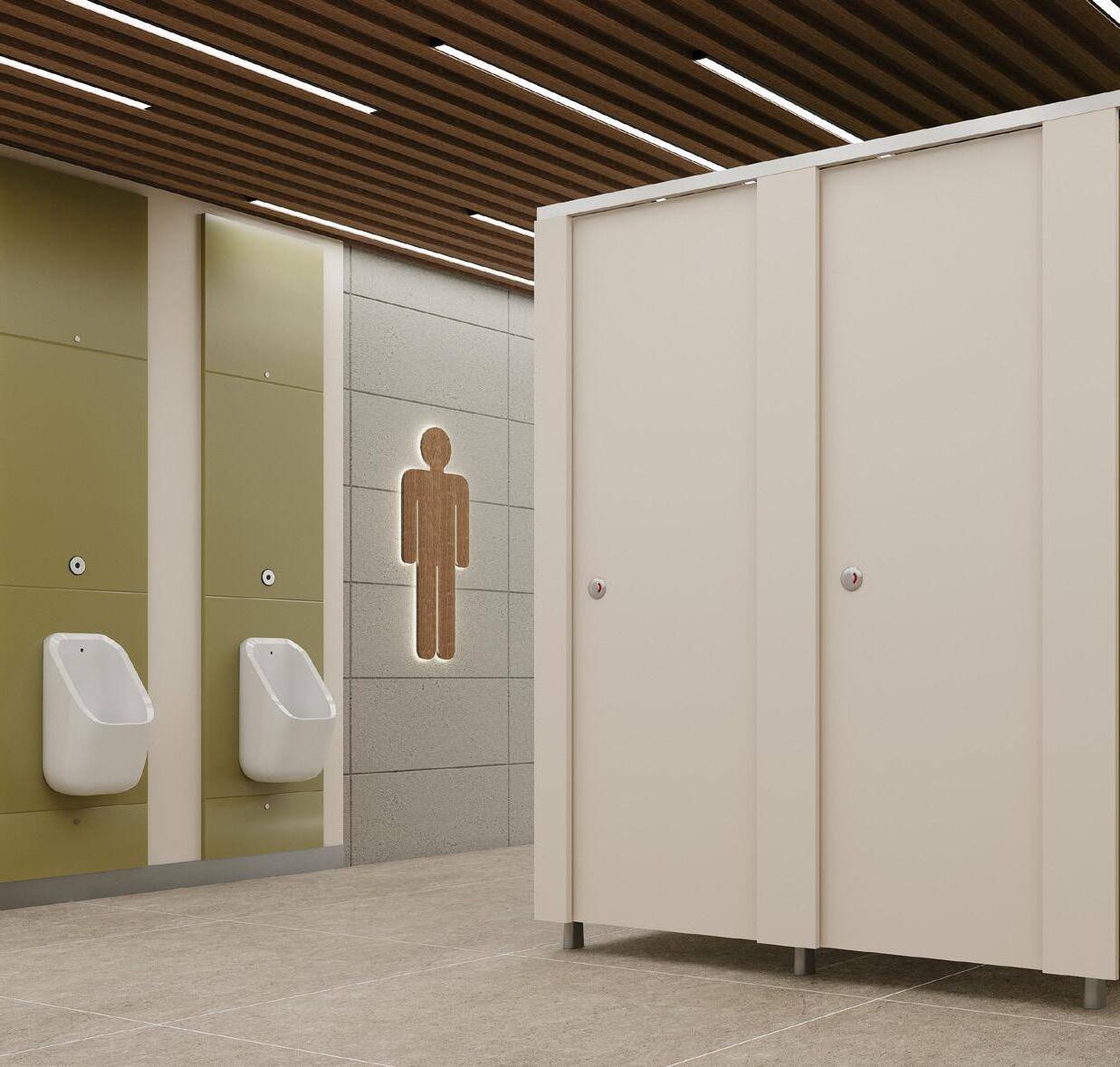


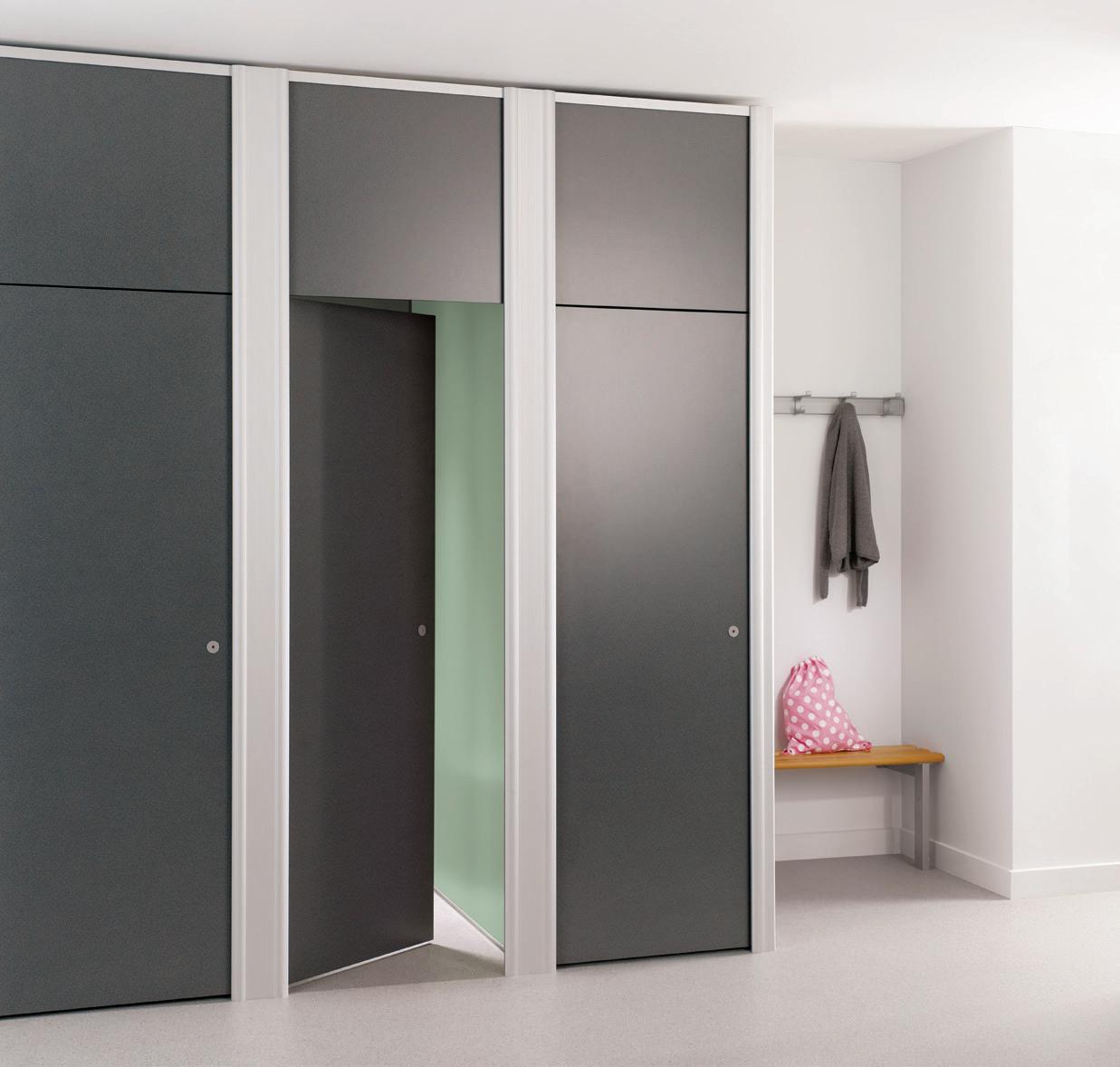

A new survey from Tes has revealed that 85 per cent of educational respondents believe there are more safeguarding concerns compared to five years ago, as staff and children feel more confident in identifying and reporting issues.
This was backed by 70 per cent of respondents believing their school has effective safeguarding policies and processes in place to deal with concerns, and the figure rising to over 91 per cent for Designated Safeguarding Leads (DSLs).
Almost a third of teachers and educators attributed the rise in safeguarding concerns to the increased use of social media.
However, there is now an increase in the availability of solutions that enable teachers and pupils to record and report concerns.
Over 15 per cent of DSLs attributed the rise of safeguarding concerns to a rise of awareness.
Matthew McVarish, safeguarding advisor for Tes, said, “Safeguarding is incredibly important for school communities and for supporting the individual.
“It’s encouraging that so many feel able to report potential concerns, which can enable schools to take action early and effectively resolve potentially challenging situations.
“With more people having the courage to bring these safeguarding matters into the light, we hope that all people will soon be supported in tackling these issues until they become a thing of the past.”
The survey also found that just over 70 per cent of respondents felt safeguarding policies and procedures at their school were effective, a sentiment shared by 85 per cent of DSLs.
This was supported by 67 per cent of DSLs feeling confident in dealing with a safeguarding issue, no matter what it may be.



Education secretary Gillian Keegan has called for 1,000 volunteers to sign up to help schools create their climate action plans.
She announced at the Education World Forum 2024 that the climate ambassador scheme provides schools with a local expert to turn their climate and sustainability “ambitions into action.”
This is an expansion of the UK Research and Innovation agency’s scheme which first launched in 2022 in partnership with the University of Reading and STEM Learning.
Backed by £2 million, the scheme aims to work 2,500 settings in the next two years.
Keegan said: “Regional climate ambassadors currently help schools and colleges draw-up climate action plans and improve their sustainability. Over the next two years we will recruit over 1000 volunteers as climate ambassadors, to support over 2,500 education settings.
“Our national education nature park scheme allows each school site to see themselves as a contributing part of the biodiversity and climate resilience of the country’s collective education campus.
“Like countries participating in international climate discussions, we want schools to see themselves as part of a broader whole. These networks are designed to get them sharing ideas and trading creative solutions.”
The volunteers should have skills and knowledge related to decarbonisation, adaptation and resilience, nature and biodiversity and climate education and green skills. Training and development is provided...



“Our EdTech service is in demand in hundreds of schools in eight countries.” Brett Griffin, Pupil Progress.
Get free help to find new international customers and grow your business. Visit great.gov.uk

Ofsted has published the findings from phase two of its independent review of teachers’ professional development in schools.
The report finds that the Early Careers Framework (ECF) is generally being implemented successfully, with teachers agreeing that their training is having a noticeable impact on their career, particularly in the areas of pedagogy and behaviour management.
High quality mentoring and investment from their school and from Trust leaders were found to be essential factors in an early career teacher’s success.
National Professional Qualifications (NPQs) are also largely seen as relevant and high-quality.
In the most effective schools, the learning from NPQs is being used more widely as a tool to improve staff retention and make whole-school improvements.
Teachers and leaders value the new range of available NPQs and leaders told Ofsted that they are keen for the funding to continue so that more staff can have access in future.
However, Ofsted found that less than half of those surveyed who were not on an ECF or NPQ pathway thought they were benefiting from a high quality and relevant teacher development programme.
In several schools visited for the research, the teacher development offer was piecemeal and not strategically aligned with school improvement or teacher development priorities...



The Education Committee has released a report on teacher recruitment and retention, calling on the government to provide new funding for bursaries so that some shortage subjects don’t lose out to those where higher bursaries are already offered.
The report follows Department for Education statistics showing that despite record absolute numbers in teaching, the Department severely missed targets for recruiting teachers in key subjects. The cross-party committee has also heard worrying evidence about teachers taking classes outside of their subject specialism while vacancies go unfilled, and some schools dropping subjects entirely.
Targets for recruitment onto initial teacher training courses were missed in 10 subjects in 2022/23. Among the lowest recruitment levels were: business studies (15.9 per cent), physics (17.3 per cent), music (27.3 per cent), D&T (27 per cent), modern foreign languages (34 per cent) and computing (36 per cent). There are also challenges in retention, with behaviour, better pay and flexibility in other sectors and workload cited as reasons that teachers leave.
The report says that bursaries available to those who complete their teacher training should continue to be targeted at subjects worst affected by shortages. However, there is a risk that low or non-bursary subjects are losing out to subjects where bursaries are offered. To minimise this, low bursaries should be introduced or increased..



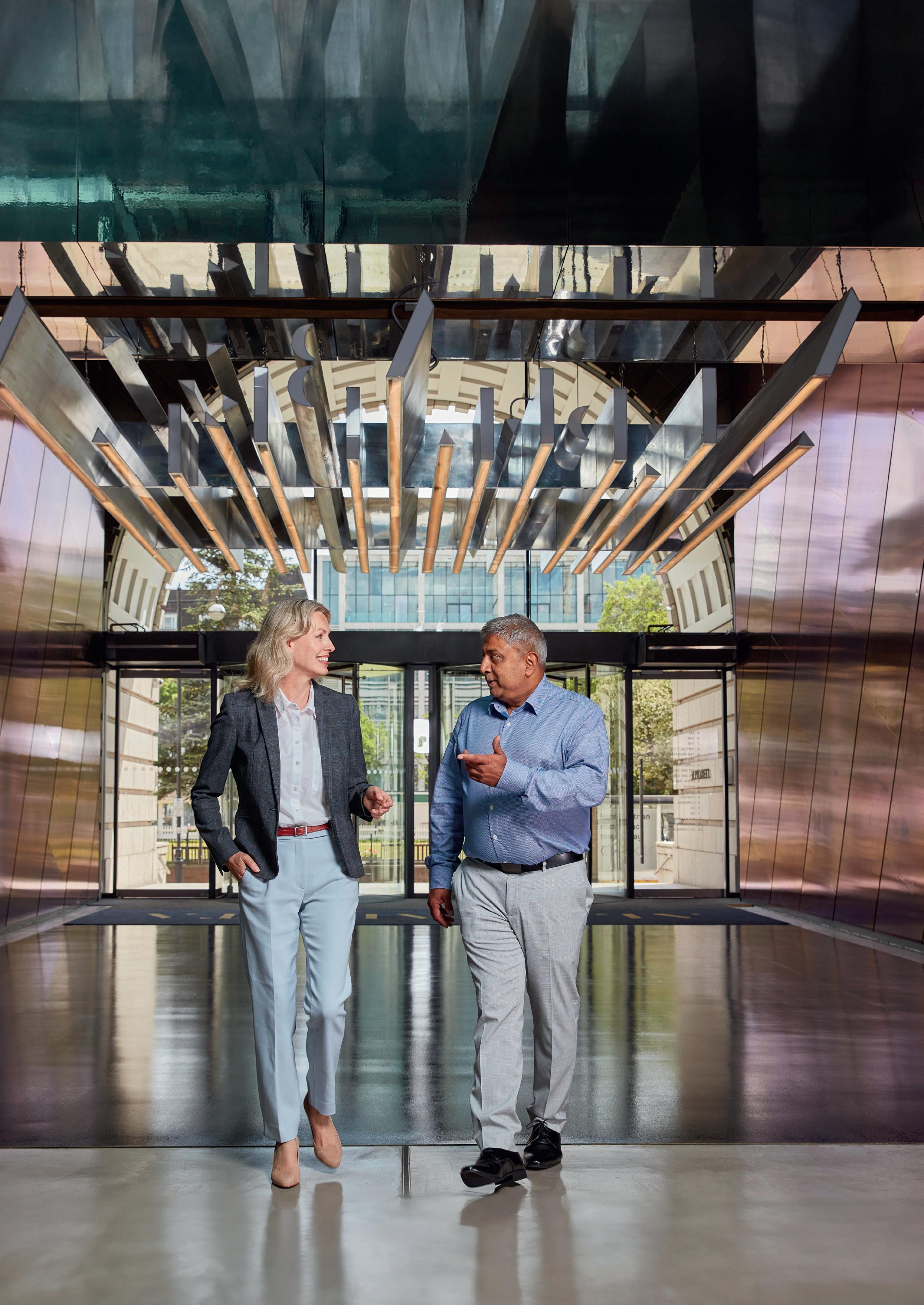

New analysis released by children’s charity the Youth Sport Trust has placed an economic value on free-to-access school sport and physical activity for a child’s mental wellbeing for the first time. Released during Mental Health Awareness Week, the analysis, conducted by social impact consultancy State of Life, shows the provision of access to free physical activity schools is worth at least £4.5 billion each year in improved life satisfaction, happiness and wellbeing amongst young people - and is likely to be double this. The calculation is based on the Treasuryrecommended measure of wellbeing (dubbed the WELLBY) which states that a plus one point movement in life satisfaction per annum is worth £13,000 in economic value.
By analysing the Sport England Active Lives Children and Young People data set, which measures levels of physical activity alongside positive attitudes, wellbeing, individual and community development and engagement in sport and physical activity, State of Life concluded that being physically active for half an hour a day in school has a +0.084 effect on happiness for year 3-6 children (age seven – 10) and a +0.149 effect on life satisfaction for year 7-11 (age 11-16) young people.
According to the WELLBY value, these uplifts in happiness and life satisfaction are worth on average £1,100 per year for a primary aged child and £1,900 per year for a secondary aged child. Ali Oliver MBE, chief executive of the Youth Sport Trust said: “We know physically active children have better wellbeing and are in turn happier, healthier and do better in the classroom...


Scotland appoints national maths specialist : READ MORE
One third of students struggle with reading ability in class: READ MORE
20 million milestone of free school meals in Wales met: READ MORE
Increased take-up of senior mental health training grants: READ MORE
STEM careers given boost by UK Space Agency: READ MORE
New analysis published by the National Foundation for Educational Research (NFER) and commissioned by Gatsby Charitable Foundation has reinforced the call for a long-term strategy to tackle the crisis in teacher supply, which is particularly acute in STEM subjects. The analysis models different scenarios against a baseline of teacher pay being increased at the same rate as average earnings in the wider economy. While maintaining the status quo is unlikely to lead to improved teacher supply, incremental increases of 1 percentage point (pp), 2pp and 3pp above the baseline could help improve teacher supply, with progressively more, but not all, subjects meeting targets. While increasing pay could make a difference, there are other financial incentives such as bursaries and early career payments, and nonfinancial measures, such as workload reduction, that could improve retention. Acknowledging the challenges of reducing workloads, NFER concluded that reducing the teacher leaving rate by one percentage point could deliver a similar impact on teacher retention to that of a pay increase of one percentage point per year more than the current baseline.
Jack Worth, lead economist at NFER said: “The Government that forms after the general election will have to carefully consider what role teacher pay increases might play in addressing the critical challenge of teacher supply in England...











The new Procurement Act 2023 is set to
take effect in October
2024 and will have implications for school buyers. We take a look at why the changes have been made, and what support is available
The new Procurement Act 2023 is set to take effect in October 2024. This means changes in procurement regulation and practices, aimed at bringing about a more flexible and strategic approach to public procurement.
Why did things change?
Before leaving the EU, public procurement legislation consisted of four sets of regulation. Following the UK’s exit from the EU, the country is no longer bound by these directives which gave an opportunity to transform public procurement rules, to become more flexible and innovative.
Changes were also made to improve transparency, get better value for money for the tax payer, and improve access to small businesses. This in turn drives greater
social, environmental and economic benefits on a local and national scale.
Kevin Draisey, head of procurement operations for the DfE’s ‘Get help buying for schools’, wrote in a recent blog: “The Act will reform the UK’s public procurement regime, making it quicker, simpler, more transparent and better able to meet the UK’s needs while remaining compliant with our international obligations.
“It will introduce a new regime that is based on value for money, competition and objective criteria in decision-making. It will create a simpler and more flexible commercial system that better meets the country’s needs, and it will more effectively open public procurement to new entrants such as small businesses and social enterprises, so that they can compete for – and win – more public contracts.” E



These changes will have implications for school buyers, who are urged to familiarise themselves with the new procurement rules in the Act. This includes the revised tendering processes, evaluation criteria, and contract management practices.
The Act promotes a more strategic approach to procurement, going beyond just compliance to prioritise value for money and long-term outcomes. School buyers are encouraged to develop clear procurement strategies aligned with school and trust objectives, and consider social value factors.
Effective communication and collaboration with suppliers will be crucial under the new Act. School buyers must have open dialogue, provide clear procurement information, and encourage feedback from potential suppliers.
Public procurement is constantly evolving and education settings are urged to undertake the training available and engage with school business professional peer networks to discuss how they will prepare for and implement the changes.
The Cabinet Office has launched the first official training resources to support the introduction of the new Procurement Act, known as Knowledge Drops.
The Knowledge Drops are designed to provide a high-level overview of the changes to the procurement regulations.

It is recommended that staff in schools and trusts with responsibility for procurement take the time to access and complete the free training over the coming months
Taking around an hour to get through, anyone involved in buying for their school or trust are urged to look at these.
Supporting factsheets are also available to accompany the Knowledge Drops . They are designed to build awareness and understanding regarding exemptions. Note that Knowledge Drop 1 part 5 has exemptions for schools.
Schools and trusts undertaking procurement are contracting authorities and are advised to review the training materials. The first part is useful for everyone involved in buying as it highlights the changes to, and the benefits of the new procurement rules.
In addition, the Cabinet Office has recently released some new e-training modules aimed at all operational procurement staff. This includes staff whose main role is to run tenders or let contracts, or procurement/ commercial professionals whose main role is to manage suppliers or contracts.
It is recommended that staff in schools and trusts with responsibility for procurement and buying take the time to access and complete this free training over the coming months.
The training is ten one hour modules and the e-learning covers all aspects of the new reforms, such as key regulation changes, transparency, and the competitive flexible procedure.
Learners who complete the course and achieve certification will be awarded a certificate along with an e-badge for adding to email signatures, evidencing attainment at Practitioner level.
The e-Learning modules are only available via registration with the Government Commercial College (GCC) . Visit www. govcommercialcollege.co.uk to register.
‘ Get help buying for schools’ is a free and impartial procurement service for schools and multi-academy trusts, provided by the Department for Education. Here schools can get free help and support with their procurement. L
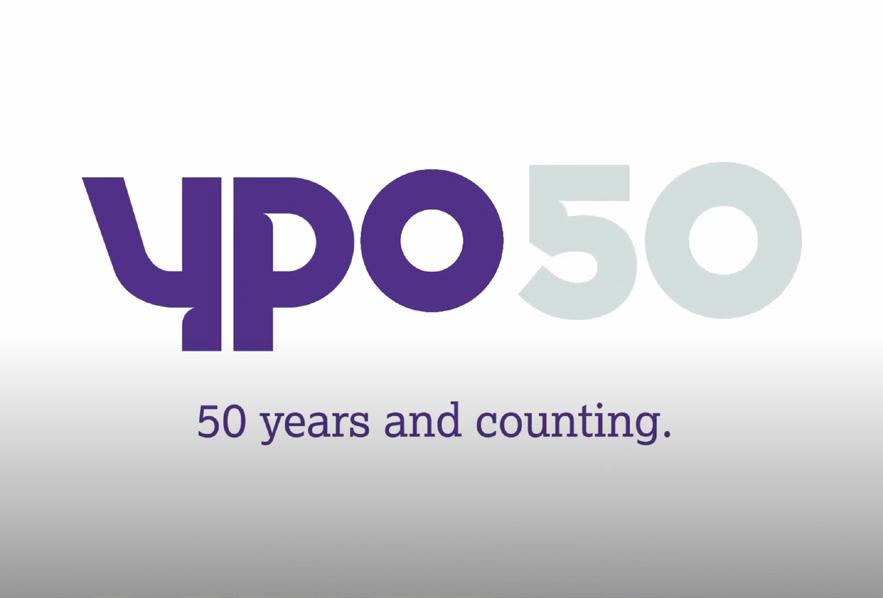
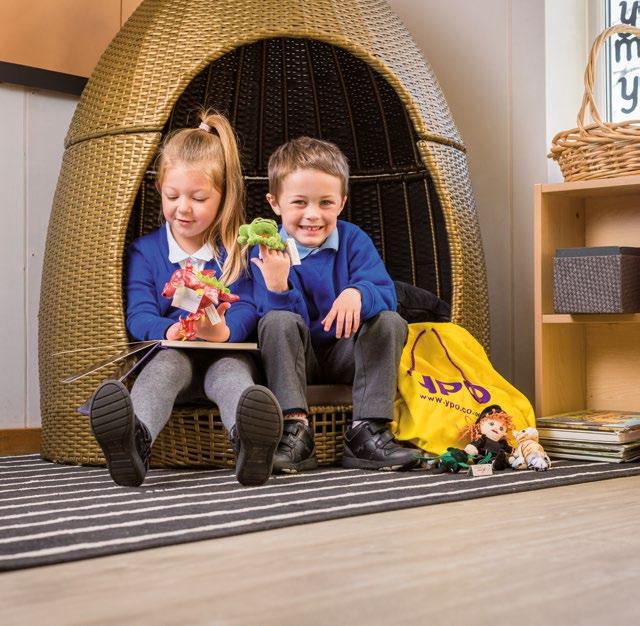


As well as supplying big brands, we offer our very own YPO range of top quality, low cost alternative products that you can trust. Our range includes essentials such as stationery, exercise books, arts & crafts and so much more.
Switch and save today.
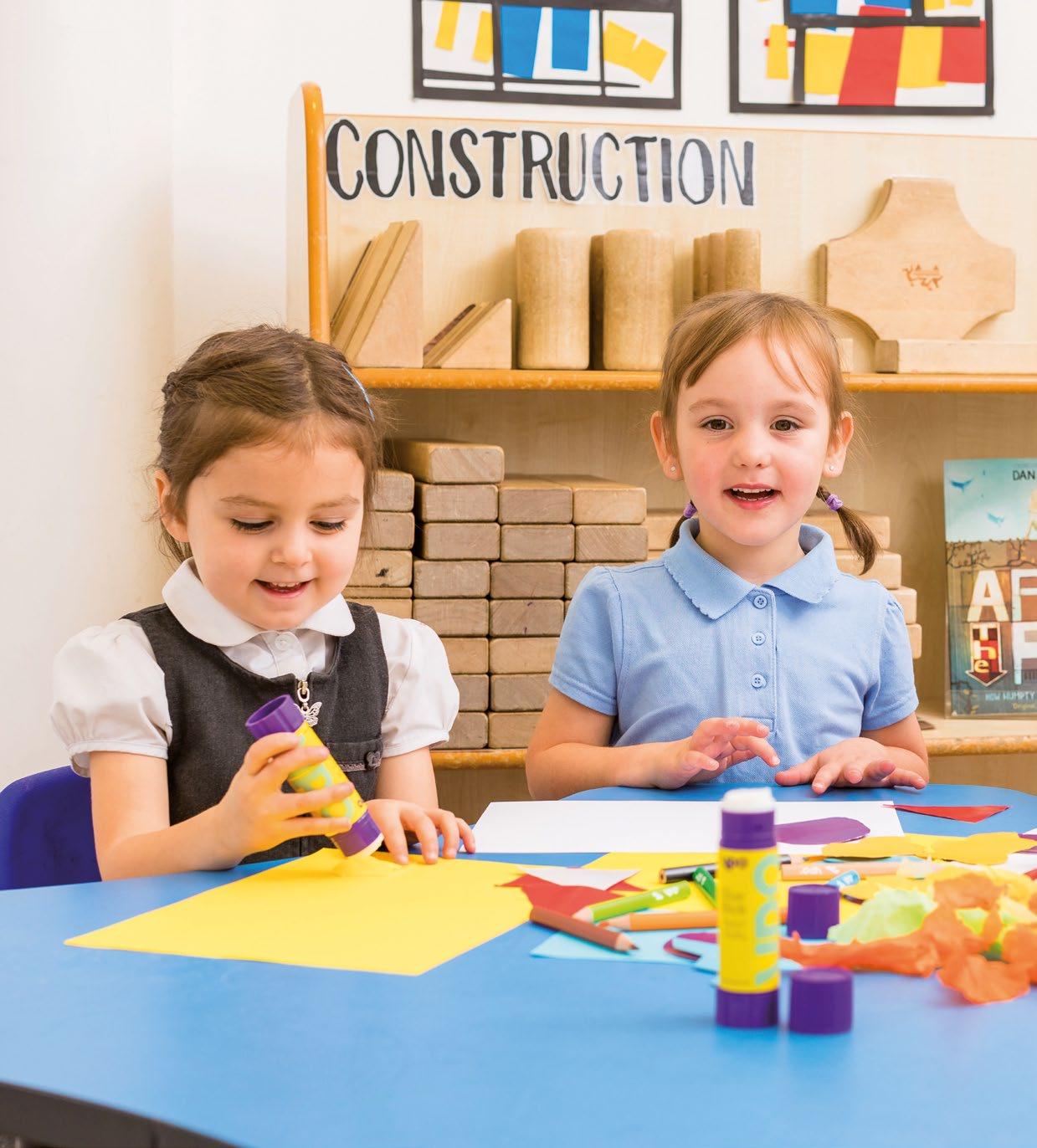
Very quick delivery following placing the order - all items in stock
Our customers love us and rate us 4.6/5
We are immensely proud of our Loyalty scheme, enabling us to give back to our customers through loyalty vouchers. Our exclusive Loyalty Scheme
EES Group is dedicated to o ering energy-e cient solutions tailored for the education sector. Our commitment lies in providing cutting-edge renewable technologies that not only reduce carbon emissions but also lead to substantial savings on energy expenses for schools and universities. By integrating sustainable practices, we aim to support the nancial well-being of educational institutions while promoting environmental stewardship within the education community.
Changes to leasing agreements for maintained schools
Laser framework approved supplier
IFRS 16 compliant
LOTs1 and LOTs3
Full turnkey LED Lighting specialist









Helping your clients to decarbonise and significantly reduce energy costs. Become less grid dependent by installing the next generation of Solar PV. Install the safest electrical charging system without increasing your clients CO2 footprint. Discover the best way to change the energy your clients use to heat their premises.





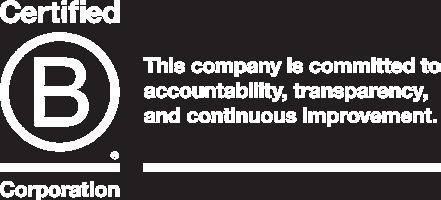

To achieve net zero, schools must rapidly curtail their carbon emissions. Initiatives such as the UKGBC’s Whole Life Net Zero Carbon Roadmap for the Built Environment and the UK Net Zero Carbon Buildings Standard provide essential guidance. So what should schools be mindful of?
Tom Wigg from the UK Green Building Council shares valuable insight
In 2023, we witnessed the hottest year on record. Climate change is no longer a distant concern for the future generations, it is a present reality that is profoundly impacting both humanity and ecosystems. Whilst the consequences of man-made global heating are already manifest, we have the opportunity to minimise the worst longterm impacts if we can keep the temperature rise to within 1.5°C of pre-industrial levels. Greenhouse gas (GHG) emissions (those that trap the sun’s energy in the atmosphere) released by anthropogenic processes are the cause of the rapidly increasing air and sea temperatures worldwide. We must reduce global emissions to net zero by 2050 – where an equivalent amount of emissions are removed from the atmosphere than are released each year – if we are to stand a chance of keeping the temperature rise to within that 1.5°C threshold.
Based on work by the Intergovernmental Panel on Climate Change (IPCC), the world’s buildings were the cause of 21 per cent of global GHG emissions in 2019. If considering just energy-related emissions, this proportion rises to 39 per cent, according to the World Green Building Council. Any way you frame it, buildings are a significant hurdle we must overcome if we are to get to net zero in time. According to the UK Government, schools and universities are responsible for 36 per cent of public sector emissions, and schools spend £630m a year on energy. For this reason, improving the performance of our education buildings could provide a strong opportunity for both reducing emissions and operating cost to the taxpayer, as well as allowing pupils a chance to engage in and learn from our built environment’s net zero transition. E
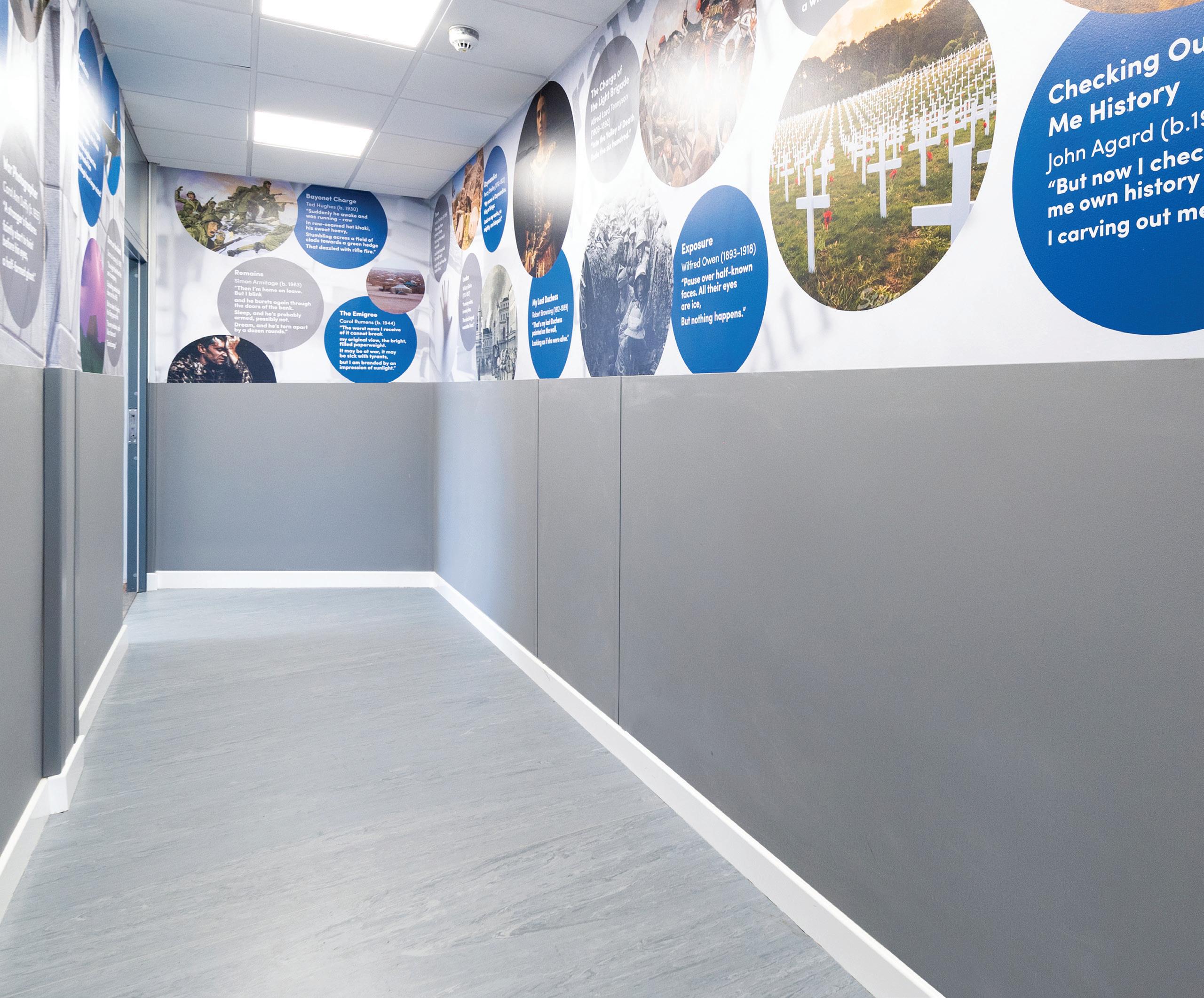
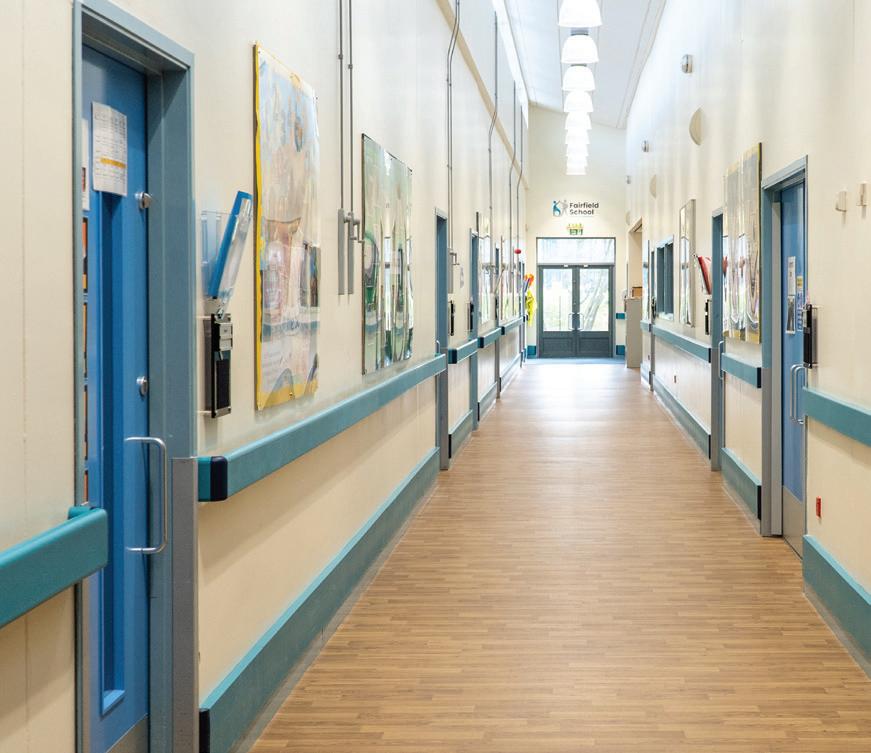
F The UK Green Building Council’s Whole Life Net Zero Carbon Roadmap for the Built Environment, which was launched at COP 26, was the first attempt at creating a coordinated decarbonisation pathway for the UK built environment that aligns with our carbon budget (i.e., the maximum quantity of carbon that can be emitted en route to net zero). This includes key actions that must be taken and milestones achieved between now and 2050, with the ultimate goal of reducing emissions to nearly zero.
For schools, this means adopting robust strategies to significantly reduce both operational and embodied carbon. Operational carbon describes the emissions that result from a building’s day-to-day operation. These are primarily from energy used by the building, such as from burning gas or consuming electricity, but also things like water use, too. Embodied carbon emissions are those which are emitted during the extraction, processing, manufacture, transport, construction, or maintenance of the building and its constituent materials and products, both before it is built and when it is in use.
One effective approach for schools to address operational carbon emissions is by reducing energy demand.
Implementing solutions such as double glazing, cavity wall insulation, mechanical ventilation with heat recovery and LED lighting can reduce heat loss and improve energy efficiency
One effective approach for schools to address operational carbon emissions is by reducing energy demand. Implementing solutions such as double glazing, cavity wall insulation, mechanical ventilation with heat recovery (MVHR) and LED lighting can reduce heat loss and improve energy efficiency. Similarly, replacing gas boilers with efficient electric heat pumps minimises the amount of energy needed to generate heating and hot water for a building. E


Control glare, reduce solar heating and create a positive learning environment. Child-safe and compliant with building regulations
Yewdale commonly produce the following types of blinds for educational settings:
• Overhead blinds: perfect for roof lights in halls and corridors
• Electric blinds: ideal for inaccessible windows
• Crank blinds: staff can detach the crank and maintain complete control of blinds
Please email enquiries@yewdale.co.uk for more information or call 01268 570900
Fast production and speedy delivery by a Yewdale van Lifetime warranty Easy to install a large quantity in a day
F Another solution for reducing operational carbon is to shift away from burning fossil fuels and embrace low-carbon alternatives. For example, using electricity instead of gas. The rationale behind this lies in the declining carbon intensity of the UK grid over the last two decades, reducing by more than 70 per cent in the last 10 years alone. By transitioning away from coal and gas generation to renewable alternatives like wind and solar, the UK’s electricity system is aiming to be zero emissions by 2035. Switching from a gas boiler to an electric heat pump doesn’t just reduce demand but leverages the decarbonising grid to further reduce operational emissions, with a clear route to net zero when electricity is zero carbon in future. This future zero carbon grid is the cornerstone of us delivering against our national net zero goals, by supporting the decarbonisation of buildings, transport, manufacturing, and other industrial processes. But buildings have an important role to play in the grid’s transition. Firstly, buildings can reduce their energy demand, as indicated by the UKGBC Roadmap, by approximately 60 per cent. However, the contribution doesn’t end there. Buildings also need to contribute to the additional generating capacity by installing onsite renewables such as rooftop solar PV panels. Moreover, buildings need to operate in a way that aligns with a grid dominated by intermittent wind and solar power. This involved responding flexibly to availability of
renewable electricity. By doing so, buildings become integral players in the transition toward a sustainable and resilient energy system. Reducing a building’s demand for energy by implementing these solutions often has an embodied carbon impact, however. Producing materials and products like insulation, windows, and heat pumps uses substantial amounts of energy which in turn releases greenhouse gas emissions. It is for this reason that both embodied and operational carbon, as well as energy demand, must all be considered together when seeking to decarbonise our built environment.
What ‘net zero’ means for an individual building remains dynamic and ever evolving. Initially defined by the UKGBC’s framework definition (which brought together 70 industry experts in one of the UK’s first efforts at creating a definition), subsequent initiatives like LETI’s Climate Emergency Design Guide have further enriched this understanding. For schools, these guidelines offer best practice targets related to building fabric, services performance, energy demand and embodied carbon – critical insights that should inform building design, delivery, and operation. The next step on this journey of defining net zero for buildings comes in the form of the forthcoming UK Net Zero Carbon Buildings Standard (NZCBS). The Standard is a crossindustry initiative between many of the key E















F professional institutions and industry bodies in the UK built environment. With five task groups and 14 sectors groups comprising over 350 representatives, the NZCBS will provide an extensive list of criteria that a net zero building needs to meet, as well as a robust process for verifying that it does. In addition to this, it will set building-level limits for operational energy consumption and embodied carbon that are derived from our carbon budgets. It is these ‘science-based’ limits, including those for schools, that will ensure any building wishing to claim to be net zero is reducing its emissions in a way that is compatible with the UK economy’s transition to net zero by 2050.
Whilst the NZCBS will help the schools sector understand what performance new and existing buildings need to achieve to do their part in this journey, other initiatives are focussing on how to deliver this in practice. Arm’s-length body to the Department for Education (DfE), LocatED, recently ran a pilot Net Zero Accelerator for schools, which sought to ‘demonstrate the commercial viability of a range of decarbonisation interventions.’ In future, it is hoped the learnings from this exercise will establish a model for private and public sector partnership to realise net zero for the school estate. This accelerator forms part of DfE’s wider strategy for sustainability and climate change.

Along with the institutions, organisations, and ambitious private sector companies involved in the range of initiatives seeking to define and deliver net zero buildings in the UK, we at UKGBC look forward to continuing to work with and support DfE in achieving the goals of their strategy and, ultimately, transitioning to a sustainable and net zero school estate by 2050. L

With winter and issues like constant reports of damp, condensation and mould on the horizon, Cornerstone is focused on protecting people at home and work. Are you ready for winter?

We should not be experiencing repeat issues every year regarding internal structural conditions. This is why we are committed to providing opportunities to learn more of the reasons behind these issues, as well as how they can be readily adopted within organisational policies. On top of this, we offer landlord and manager procedures for a proactive solution.
With many years of expert, trusted, and independent experience surveying properties following reports of damp, condensation and mould, we remain committed to sharing our diagnostic findings. Consequently, we find the reasons behind these issues alongside giving
credible and understandable recommendations for long-term occupation engagement.
With a number of complaints relating to untimely responses, actions and guidance, there is a new opportunity to get ahead of these issues with a unique called-for framework aimed at delivering timely guidance aligned to the problem.
A new Property Health app serves to share our knowledge with all building occupants supplying timely reasons and simplistic solutions for visual damp and mould.
This 24/7 guidance platform answers the call for timely guidance and knowledge for all concerned with a host of SMART yet recognisable reasons for its outbreak alongside what can be done to remove if effectively. M

The trade association released their review in February on the quality of school buildings. BESA’s policy manager Peter Doyle digs into the results

Following the National Audit Office report revealing that 700,000 pupils attend schools requiring major rebuilding or refurbishment, BESA conducted a survey of over 900 schools. The findings from ‘The State of the Estate’ underscore the need for a new funding settlement to modernise school facilities and ensure an optimal learning environment.
According to BESA members, schools are conducting fewer class experiments and face challenges accessing computer equipment in science labs. Our report confirms that over 70 per cent of schools perceive this as a significant issue in lesson delivery.
The condition of science labs poses additional hurdles to lesson delivery, with 57 per cent of schools reporting that current conditions negatively impact learning outcomes. This underscores concerns regarding planned investment, with over 82 per cent of schools expressing apprehensions.
Despite STEM’s critical role in enhancing England’s economic development and global competitiveness, current conditions fall short of what is needed for a worldclass science education. This is especially concerning given the continued decline in England’s science performance, as highlighted by the OECD’s PISA findings. Design & Technology serves as a crucial gateway to preparing students for skilled employment. Yet, our report reveals chronic
underfunding of Design & Technology facilities, particularly in secondary schools where 62 per cent report negative impacts on learning outcomes, rising to over 85 per cent in primary schools. Similarly, creative subjects like Art & Design and Music suffer from inadequate facilities.
The deteriorating level of provision in SEND has garnered significant attention. Schools urgently require adapted facilities to enable children with SEND to participate in PE, with over 80 per cent of schools expressing this need.
On a positive note, initiatives to improve tech infrastructure within schools are yielding results. The disparity in internet access between rural and urban schools is narrowing, with a higher percentage of rural schools reporting reliable and fast internet connections.
Additionally, improvements in internal networks, such as Wi-Fi coverage, indicate the effectiveness of infrastructure projects.
Commenting on the report, BESA’s Director General, Caroline Wright, called on all major parties to commit to urgent reinvestment in school estates to provide teachers and pupils with the facilities they deserve. M
FURTHER INFORMATION
Download the report here www.besa.org.uk
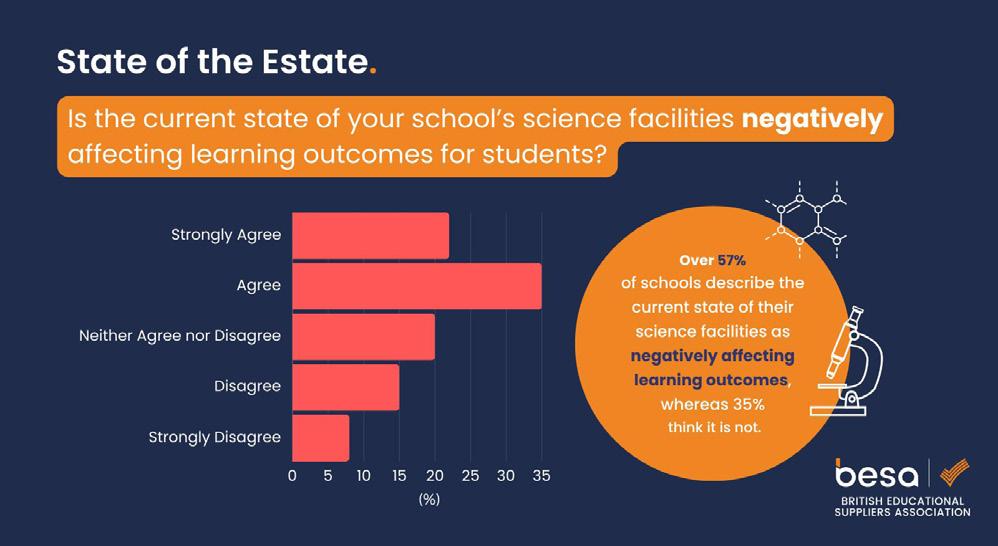
HCCS project manages every electric vehicle charging install, offering advice and recommendations along the way, including an initial consultation to ensure the correct charging facilities are specified

HCCS EV Charging & Solar are installers of a wide range of industry leading electric vehicle charge points, with a team of fully qualified and professional engineers working throughout London and the Southeast.
Since we were established in 2017, we have installed over 15,000 electric vehicle charge points for both domestic and commercial customers, and since the introduction of the government’s Net Zero strategy, more and more drivers are making the switch to electric thus accelerating the requirement for a roll-out of charging facilities.
We work with a selection of trusted EV charge point manufacturers and our partners include the UK’s leading brands such as Ohme, Myenergi, Sevadis and many more. With new brands of EV charger entering the UK market on a regular basis, we ensure we hand pick the ones who provide reliable products that are of a high standard.
As NICEIC approved contractors, our team of qualified and experienced EV charge point engineers has in-depth industry knowledge, and we pride ourselves on keeping up to date with the latest developments in the ever-changing electric vehicle industry. We don’t use subcontractors;
all our engineers are directly employed by us for quality control purposes.
Providing a high-quality service for our customers is a main priority as we work closely with our clients to project manage every install, offering advice and recommendations along the way. This includes initial advice and consultation to ensure the correct charging facilities are specified, whether it be a single EV charge point for a residential property, business or school, or multiple charge points for a larger scale project.
We are also authorised to offer the OZEV grants, and with the recent government incentive for state-funded education institutes in England, eligible schools may be entitled to claim up to £2,500 per EV Charging point socket. Not only that, but schools will have the opportunity to generate a revenue for the school by charging for use. We also have some of the shortest lead times in the industry so we can work around our customers availability with ease, subject to electrical survey outcome and manufacturer lead times. All our prices include a three-year parts and labour warranty. For additional peace of mind, we offer service level agreements for twice yearly check-ups to ensure charging facilities are in good condition to avoid interruptions to the service. M
www.homecarcharging.org.uk info@hccs.org.uk 0330 666 0100
Schools looking to take advantage of the new funding scheme for electric vehicle charge points should consider a number of things before embarking on an EV infrastructure project
State-funded education settings, including schools, colleges, nurseries and academies, can apply for the grant which provides up to 75 per cent of the cost to buy and install chargepoints, up to £2,500 per socket – which is a rise from the previous £350 which schools were able to receive through the Workplace Charging Grant.
The grant aims to boost the chargepoint facilities for staff and visitors, and has the potential to help schools generate revenue by making their chargepoints available to the public.
Those embarking on an electric vehicle charging project will need to consider a number of points, outlined in this article.
Education settings will need to understand their power availability. This involves finding out the size of their agreed supply
capacity (ASC) from their DNO, how much of that power they use, and what spare capacity remains for EV chargers.
This process is vital so you do not exceed your supply and risk a power outage. If your site does have power limitations, there are ways to get grid connection upgrades via your district network operator, although this is an expensive move.
Other ways include using smart chargers with load balancing capabilities, or having the ability to generate your own power, such as solar, used with energy storage.
Load balancing systems/software will use real time energy monitoring to change the maximum amount of energy that chargers can use based on availability and requirement of the site.
An important part of the EV installation process is getting a site survey. This will assess how EV charging can be installed E

With increased government funding recently announced for the installation of electric vehicle chargers within educational institutions, there has never been a better time to invest in renewable energy fuelling such as EV chargers
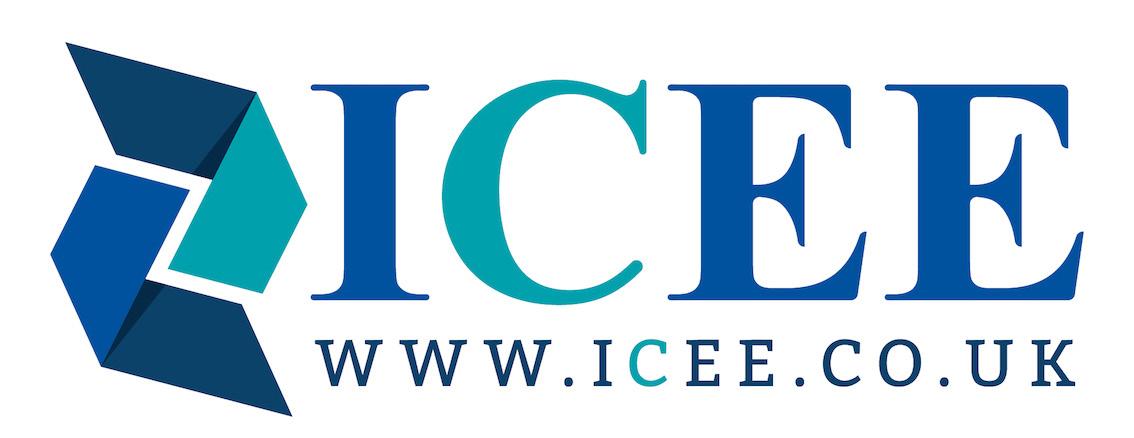
Established for over thirty-five years, ICEE is a UK government approved installer of electric vehicle (EV) charging points for commercial properties and educational institutions. With official recognition from the Office for Zero Emissions Vehicles, ICEE holds a range of industry-recognised accreditations. The installation of electric vehicle chargers brings a myriad of benefits. Below, we delve into some of these advantages and explore how they support educational institutions. Additionally, we’ll discuss how ICEE can assist in cost reduction while simultaneously boosting your school or college’s revenue. By facilitating EV charging infrastructure, schools can encourage staff, students, and parents to adopt sustainable transportation practices. This aligns with efforts to reduce carbon footprints and promote eco-friendly lifestyles while boosting the schools’ facilities for staff and visitors. This works well as an incentive for new staff when educational institutes are looking to expand their teaching teams. Another benefit of incorporating EV charging units into schools and colleges is the opportunity to boost the institute’s revenue. During the period a school is shut, for example, term holidays, they can open up their EV services to members of the public and charge for the service. This is a fantastic tool to boost a school’s revenue,
especially with the low installation costs due to the new government grants. Previously, schools were only eligible for £350 per socket installation, but that figure has now been raised to £2,500. This new cost covers nearly 75 per cent of the installation, creating a fantastic new incentive. All government-funded institutions are eligible for the grant, as the government hopes to boost local green infrastructure.
ICEE prides itself on our simple, fully turnkey service offering for the installation of EV charge points. Our process is quick, easy, and highly efficient. All of our field installation teams are BPSS Cleared, which includes full DBS Checks. Our project delivery team is on hand at any time to assist with any questions or queries you may have. Once your chargers have been installed and are ready for use, we offer life-cycle maintenance, ensuring they are performing at their best for their whole life.
To find out more about our service, please visit our website. M
FURTHER INFORMATION
www.icee.co.uk/education-ev-installation/

Education settings will need to understand their power availability. This involves finding out the size of their agreed supply capacity (ASC) from their DNO, how much of that power they use, and what spare capacity remains for EV chargers
F and engineers will typically visit the site to assess power requirements and if any groundworks would need to be done.
A good chargepoint installer will be happy to do the above as part of their service. If the school doesn’t own the site where EV charging will be installed, they will need to obtain consent from the landlord for chargepoints to be installed. This can be time consuming and may involve legal work, so it’s worth beginning these conversations as early as you can.
Schools should understand the different charging speeds to understand what is the most appropriate for their site.
Fast charging has speeds of between 7kWh – 25kWh and is suited to destination, fleet, and overnight depot charging.
Rapid charging has speeds of 50kWh – 100kWh and can be used for quick turnaround charging.
Ultra-Rapid has speeds of 150kWh – 400kWh and is suited for public charging hubs, car parks, short-stay destinations and electric HGVs.
It’s also helpful to understand the difference between AC and DC charging.
A chargepoint with alternating current (AC) will get the alternating current from the grid and pass this on to the vehicle to convert to direct current and feed into the electric vehicle’s battery. The vehicle dictates the maximum AC charging rate, typically 7kW, 11kW and 22kW (though there are few vehicles capable at the highest rate). DC charge points have the converter within the charger which means that the power is converted to DC before it is passed to the EV. The size of the converters will be much bigger than those inside a vehicle and therefore this results in a faster charge time.

When choosing a chargepoint installer, it’s important to find out about their back office portals. A good back office system will allow a school to monitor charging times, speeds, payments and conduct CO2 reporting.
It’s also important to look at what aftercare the chargepoint operator offers for service and maintenance, including callouts for repair.
If a school wants to open their chargepoints to the public and charge for usage, they will need to ensure they comply with the Public Chargepoint Regulations 2023 and associated guidance.
Independent schools may apply for funding through the Workplace Charging Scheme and the Electric vehicle infrastructure grant for SMEs.
The Workplace Charging Scheme grant covers up to 75 per cent of the total costs of the purchase and installation of EV chargepoints (inclusive of VAT), capped at a maximum of £350 per socket and 40 sockets across all sites per applicant.
The school must have dedicated offstreet parking for staff and have parking facilities that are clearly associated with the applicant premises and be either on-site or at a reasonable distance from the school. M
FURTHER INFORMATION
www.gov.uk

All installations as part of this initiative will be completely funded, ensuring no debt incurred by your institution
To ensure you fully benefit from this programme, we return profits from charger usage back to the institution.
We truly take care of everything – from funding and installation through to maintenance and management



Joseph Taylor, founder of Reved – a not-for-profit EV platform that provides schools with access to fully-funded charge point installations and reinvests profits back into education – explains what school leaders need to consider before choosing a sustainability specialist

The Sustainability Agenda 2030 will bring with it a whole host of changes (and potential challenges) for educational establishments. For example, it will see brand-new petrol and diesel cars no longer available for sale from 2035, and is accelerating frameworks such as the Clean Air for Schools Vision. So it’s unsurprising that many school leaders and senior teams are being proactive in their approach. Seeking to install EV charging solutions ahead of time, to support their community in this transition to electric transport – making it as seamless and accessible as possible.
Joseph Taylor, founder of Reved – a notfor-profit EV platform that provides schools with access to fully-funded charge point installations and reinvests all profits back into their educational partners – explains what school leaders need to consider before choosing a sustainability specialist: “For many schools who’re already constrained with budgets, time, and resources, it can feel like a minefield to understand and arrange appropriate funding for initiatives, such as EV charging point installations – despite how important they might be for the future of the school and its staff. Plus, with government grants in this arena ever-changing, it can be difficult to establish what exactly you’re eligible for.
“Add to this, the increasing number of companies – from big corporates through to smaller start-ups – who, on the surface, appear to offer competitive and attractive packages. But, in reality, are often tying schools into lengthy leases littered with complications.
“So, when collaborating with an EV specialist, establish the foundation of your agreement – before you sign on the dotted line. Falling victim to these misleading and caveat-filled contracts can leave you liable for debts, putting school assets at risk of repossession, and expose teachers to hefty and unfair tariff charges.
“Any EV partner you choose must be committed to providing a complete and comprehensive solution. As well as offering an opportunity for your school to benefit from any additional revenue to reinvest in projects at your institution, and who promise quality, compliance and safety as their utmost priority.”
As a not-for-profit platform for hosting public charging, some revenue generated is reinvested back into their educational partner, providing increased and longterm opportunities such as battery and solar storage, reducing energy costs, and helping to deliver a more sustainable future that we’re all proud of. M
FURTHER INFORMATION
www.reved.co.uk

T150 Energy does more than just secure the best rates for gas and electricity – they have launched a ‘Payback Scheme, putting much needed funds back into education, care and charity organisations

In November 2020 I was told I had 6 months left to live and was at risk of sudden death, due to a colloid cyst in my brain. Thanks to the amazing work of the NHS this was not to be the case.
As strange as it sounds, this is possibly one of the best things that has happened to me, as it has led me to where I am now and T150 Energy’s ‘Million Pound Mission’ and ‘Payback Scheme’ to give back a million pounds to the care, education and charity sectors.
In October of last year I was inspired to do more than just secure the best rates for gas and electricity. I realised T150 Energy could also be a force for good, so our ‘Payback Scheme was launched in January 2024. It is designed to not only secure the best energy contracts for our clients, but to pay them back anything up to 3.5 per cent of their total annual spend on utilities. Giving back £100s to £10,000s back into care, education and charity organisations to use as they wish.
Having worked with many of these sectors over the last 15 years, particularly
independent schools and academy trusts, we have a good understanding of the pressures that are faced by these vital institutions that educate and inspire our children and the wider population. Without these, I wouldn’t be here today writing this.
Timing is crucial when it comes to energy procurement. The difference between 0.5 and a penny on rates can have a dramatic effect on yearly costs, especially for schools often using over 100,000 kwh per year.
Schools and Trusts don’t have the time to study the market, or even go out to market in any meaningful way. They may approach a couple of providers directly and if they do, they will be missing out on potentially lower rates from other suppliers. We go out to over 15 different suppliers to ensure the best rates.
Even owners and managers using multiple brokers, will not necessarily get the best deals. Unless you have taken the time to build a strong relationship with your consultant, you really don’t know who you are working with. We view ourselves as part of your business, employed (without the cost) by you to solely ensure you always have the best rates for gas and electricity.
Matthew Small T150 Energy

The Climate Action Countdown, taking place 7 June to 5 July 2024, will see hundreds of schools take part in climate action activities and events to reduce their school’s carbon footprint and protect the environment. Here’s how to get involved
It’s not long now until 30 of the biggest names in conservation come together to hold 29 days of the most exciting and inspirational climate action through the Climate Action Countdown – and your school can take part too. WWF, RHS, The Eden Project, Natural History Museum, The Climate Coalition and Surfers Against Sewage are just some of the groups who have helped shape the Climate Action Countdown’s Calendar of Action, with projects such vertical gardening, building a bug house, active travel adventures, petitioning, sustainability bingo, climate anxiety discussions and creative moments in nature.
Activities cover Key Stage 1 to 4 and include essential curriculum topics such as a focus on green careers, climate adaptation, cutting waste and protecting habitats for biodiversity.
The Let’s Go Zero campaign, which supports schools in their journey to zero carbon, and is leading this event, has been delighted with the excitement and enthusiasm that schools and charities have shown for this first-ever Climate Action Countdown, running from 7 June 7 – 5 July. Campaign communication coordinator at Let’s Go Zero, Abby Ray, said: “So many teachers, parents and even charities themselves told us they were overwhelmed with the number of organisations you can turn to when you look at trying to help the planet. Many schools and parents don’t know where to start! The Climate Action Countdown brings all these great charities and resources together in one place to create a one-stop-shop of climate action!” E







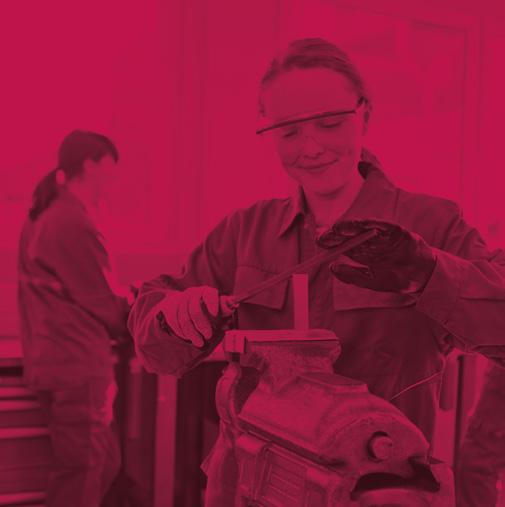
Hear from a Deputy Head about their experience with Cambridge Nationals Want to
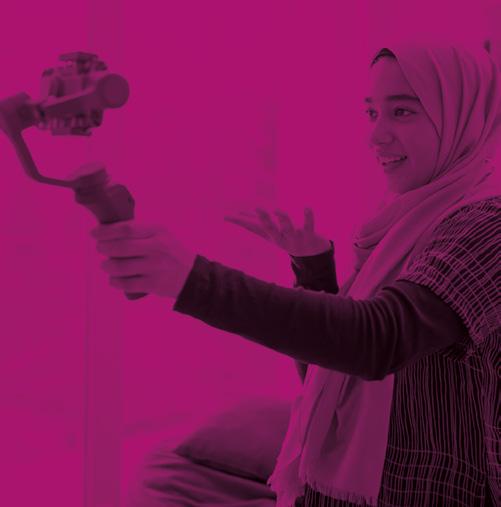

Schedule a call with one of our team by visiting:
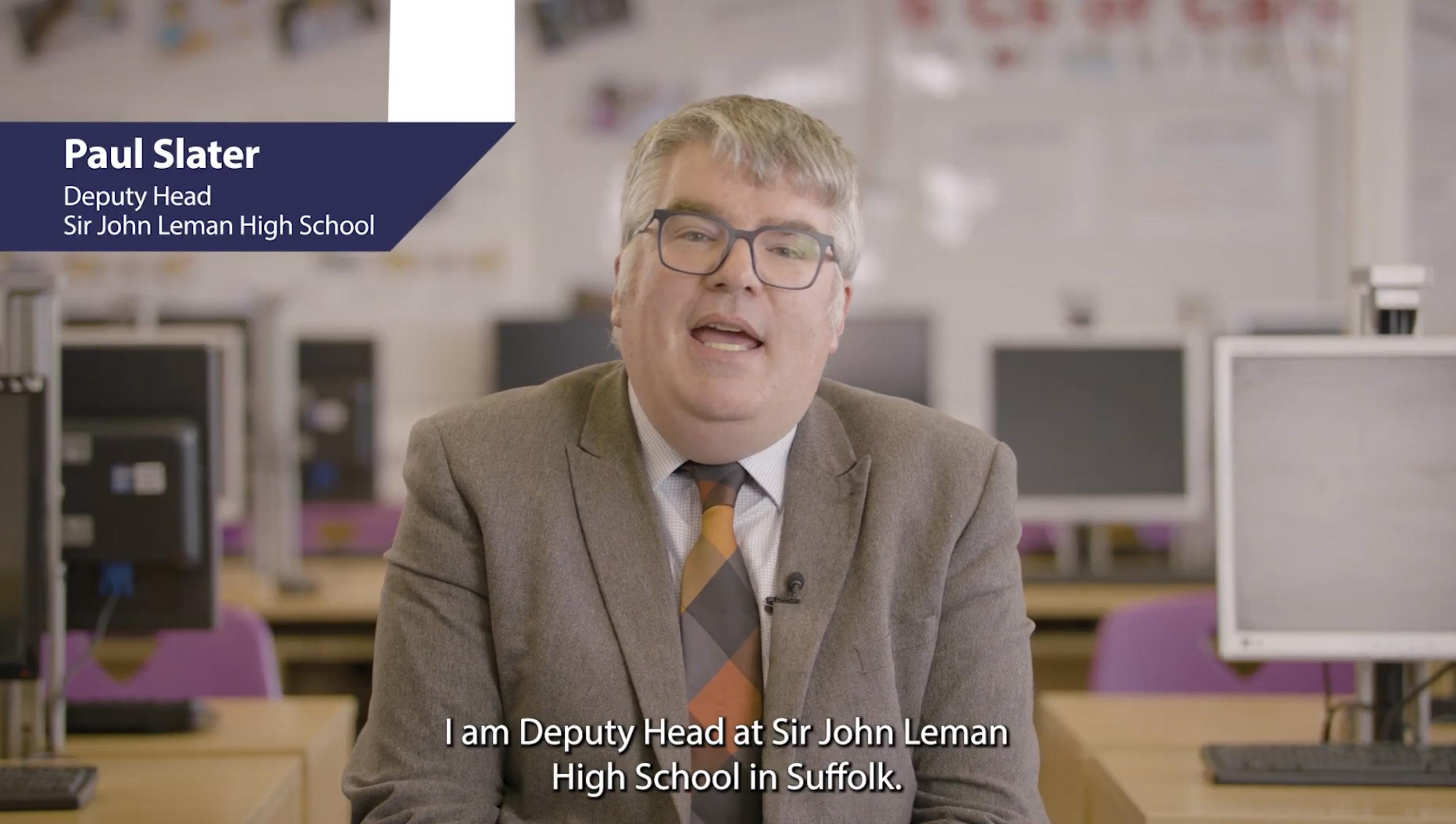
Included on the KS4 performance tables for England






Once registered, teachers can pick-and-mix the climate activities they and their class like the look of, and while the date to carry it out is suggested, it really doesn’t matter when you do the challenge, because all actions will help your school become better for the planet.
Alongside the Calendar of Climate Actions, there’s an assembly and guide for each age range, and a Climate Action Countdown music video and sheet music with lyrics to download, so choirs can learn and perform the song themselves. There are posters, worksheets, and media guides to help you shout about the brilliant work your school is doing, images to share on social media and a Great Big Climate Quiz, with prizes to win.
Alex Green, head of Let’s Go Zero, says: “The Climate Action Countdown’s goal is to tackle major climate challenges across curriculum, campus, culture and school canteens, and its taking action that builds a fairer, greener future for our children, our country and the world.
“This exciting event shows leaders we want our schools to get the support to run
The Climate Action Countdown’s Calendar of Action includes projects such vertical gardening, building a bug house, active travel adventures, petitioning, sustainability bingo, climate anxiety discussions and creative moments in nature
more sustainably, and to show schools that climate action can also be fun!”
Group activities like this are also important for mental health and reducing climate anxiety among children and young people, says Alex Green: “According to a survey by mental health charity Place2Be, 43 per cent of children (8-16yrs) have worried about climate change and the environment in the last three months. E





At Polar Hygiene, we offer a full ventilation cleaning and maintenance service, ensuring your premises are up to date with current BESA legislations.
We undertake regular canopy cleans tailored to suit your businesses needs, based upon the hours of usage your kitchen is subjected to. One-Off/Regular Kitchen Deep Cleaning
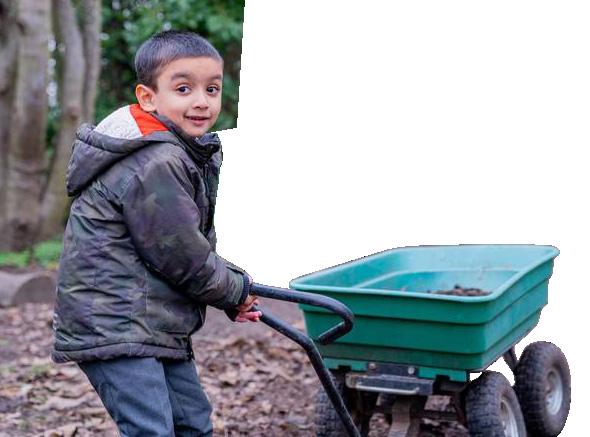
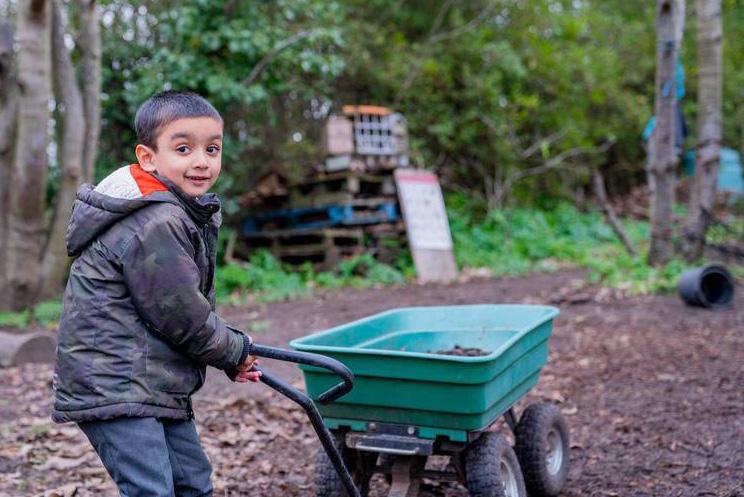

F “We know that positive action is what helps children stop worrying and engage with what can be very overwhelming information about climate. So this month will provide a whole range of ideas about how to act positively, improve schools, protect the environment, and get students outside enjoying nature.”
There will be a special ‘Eco-anxiety’ guidance published for teachers on how to talk about climate change with students to make them feel more confident about their future while addressing the facts.
One of the events that has picked up the most media attention is the playground plantpowered picnic on Tuesday 18 June – which also happens to be National Picnic Day! The Climate Action Countdown activity pack provides some simple plant-based recipes so every family and school can take part, and they will be easy for caterers to adapt their menu to.
Let’s Go Zero Climate Action Advisor Jo Pettifer, says: “As a vegan and former school’s sustainability lead myself, I know how willing pupils are to embrace the future. They are growing up in a world that sees climate-friendly options in all the supermarkets and food chains they go to – it’s no big deal. We’re seeing some great examples of school leaders and catering leads responding to that demand now too. If the weather’s good, the plant-powered picnic could be the highlight of the students’ school year!”
Community lead of ‘Essex is Green’ environmental group, Neel Mookherjee, which is supporting the Climate Action Countdown,
said: “The Climate Action Countdown is a great way for schools to be introduced to climate action and discover how easy it can be. This event is brilliant because so many of our favourite environmental charities are coming together, there really is something for everyone here! It’s a great fun way to end the school term and on a serious note, it’s vital schools take action on climate as they have such a big impact on our community, and the planet.”
The Climate Action Countdown is a great way to show leadership in environmental issues. Lee Hughes, chief operating officer from Peterborough Diocese Education Trust, said: “The Climate Action Countdown is an outstanding opportunity for our school communities to come together and show leadership in the fight to reduce carbon emissions and act positively on the government’s climate change strategy for education.
“As a Multi Academy Trust of 33 Church of England primary schools, we aspire to act now, engaging our staff, children and communities to make sustainable changes. No action is too small, and we want to encourage our schools to embrace the climate challenge and show that positive steps can be taken, even with really old estates! We will be asking our schools to join together this summer and working with our partners, the Let’s Go Zero coalition, to engage with the Climate Action Countdown.” M
Sign up to the Climate Action Countdown here
IFSS provides a number of inspections throughout a building programme, inspecting fire doors once installation is complete, and through ongoing liaison with the provider to ensure compliance

“How much will you charge to inspect our fire doors?” A question I am asked on a regular basis, and of course clients want to know how much a survey will cost before engaging a provider.
I wonder then how “£3,000,000” would be received. Not that well I imagine, unless of course the client has a huge list of assets!
This figure though was the cost of a fire door survey we provided, not the cost to the client though, £3,000,000 was the compensatory figure paid to the client by the FM provider as a direct result of the fire doors they were being paid to maintain falling well below the required level of compliance.
The client suspected that their fire doors weren’t being maintained to the required standard of compliance but needed an ‘expert opinion’ (we don’t generally use the term expert) to present to their legal team, so were engaged to survey the site (a large NHS facility).
NHS sites probably rank up there with schools, colleges and possibly prisons as the most hostile environments for fire doors.
Hospital beds, trollies, cleaning vehicles, refuse bins and the like can all damage fire doors, and of course, even slight damage can dramatically reduce the expected performance of a fire door down to a few minutes.
Maintenance is a critical factor in ensuring the ongoing fire safety of such buildings and of course FM providers are contracted to do exactly this.
Surveying sites in advance of a legal battle is something we do on a regular basis, but it’s not just existing buildings where we provide the service. We’re also regularly engaged by clients to act as a kind of ‘specialist Clerk of Works’ on new building projects. We will provide a number of inspections throughout the build programme, inspecting fire doors as soon as the installation is complete, and through ongoing liaison with the main contractor / installation provider to ensure that the completed building is as compliant as possible. Compliance issues are easier to resolve during the build process rather than afterwards, and of course, the client ultimately holds the purse strings giving them the ‘Ace’ up their sleeve.
Perhaps then when looking to commission a fire door survey, rather than look at the cost of the survey, consider what you may get out of it. M
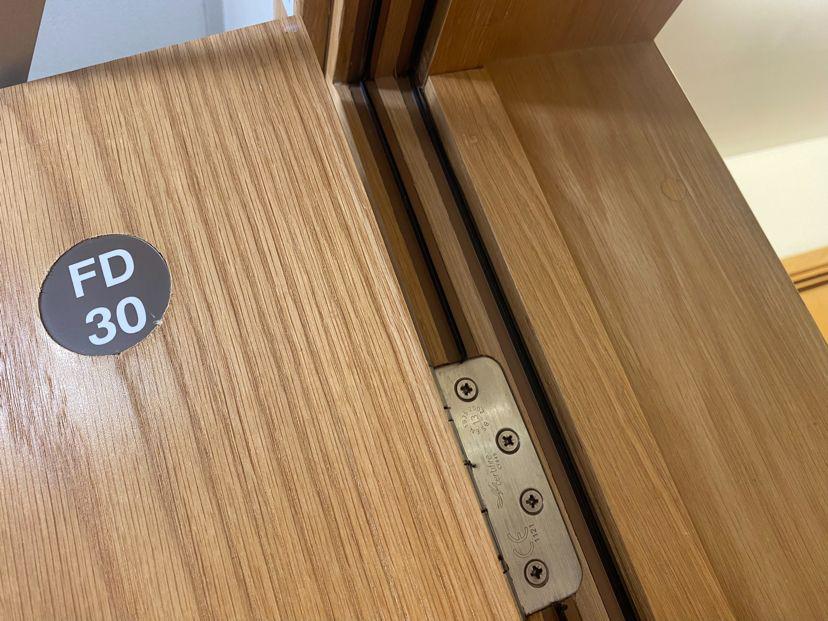

Fire safety of students and staff in specialised schools pose additional considerations, as some students may require extra assistance during an emergency evacuation. Therefore, it is crucial to implement robust fire safety and management protocols
Fire safety in specialised schools is of paramount importance due to the presence of students with specialised educational needs (SEN). These are the students with diverse needs, including those with complex social and communication requirements, physical disabilities, or sensory impairments.
In order to ensure the safety of the occupants, visitors and staff against a fire, to provide a safe firefighting operation and to meet the requirements of business continuity/ property protection, it is essential to develop a comprehensive fire safety strategy by a competent fire engineer.
This article summarises key aspects of fire safety design of specialised schools and highlights the due diligence process that must be adapted at an early design stage to ensure the safety of lives and business operations.
Specialised schools serve a crucial role in providing education and training to students with diverse needs. However, the safety of students and staff in these educational institutions is more critical as some students may require extra assistance during an emergency evacuation. Therefore, it is crucial to implement robust fire safety and management protocols to ensure a safe learning environment for all. Some of the key aspects that need to be considered for fire safety in specialised schools are listed below.
Around 40 schools a month suffered from a fire in 2019 where the ignition source was electrical faults, arson, and kitchen fires. Due to the deliberate nature of arson, there is no system to predict E


F these incidents, such as the location or extent of fire. An arson fire can have more severe consequences compared to an accidental fire in terms of life safety and property protection.
In order to reduce the spread of fire in specialised schools, a fire suppression system may be considered at the early stages of the design. The guidance for fire safety in Schools for England is Building Bulleting: 100 (short: BB100). It provides guidance to assess the risk of fire and its potential spread for property
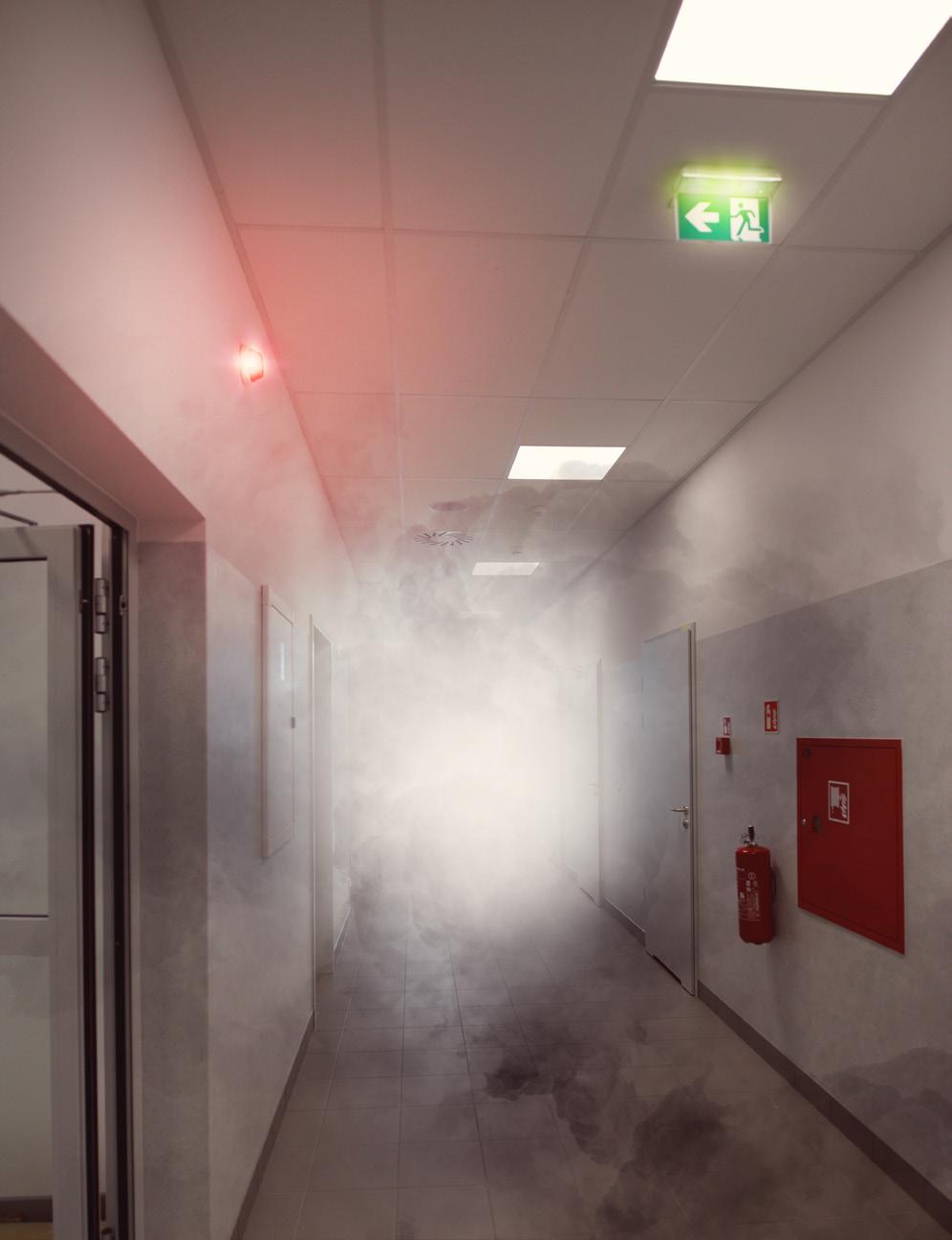
protection and business continuity. A risk assessment should be undertaken for all schools to determine if an early suppression system such as sprinklers would be beneficial.
The detection of a fire and warning to the occupants can play a vital role to facilitate an effective evacuation of the staff and students in the event of fire. To give occupants a sufficient time to think and implement safety protocols, an early warning system can be installed, which provides an early detection of smoke or heat production caused by a fire.
In specialised schools, where students may have sensory impairments, implementing a voice-based alarm system ensures clear instruction for these procedures.
In such premises where students may be more sensitive to loud volumes and frequencies, standard fire alarms can cause sensory distress. An audible alarm system with different frequencies or patterns may provide better instructions. By installing a range of alarm tones, various sensory needs can be met to ensure a calm and orderly evacuation.
Similarly, a visual alarm system would perform better where the occupants have hearing impairments, language barriers or textile signage for vision impaired occupants. By reducing the time of detection and movement of students for evacuation in response to a fire, fire safety can be enhanced in these premises.
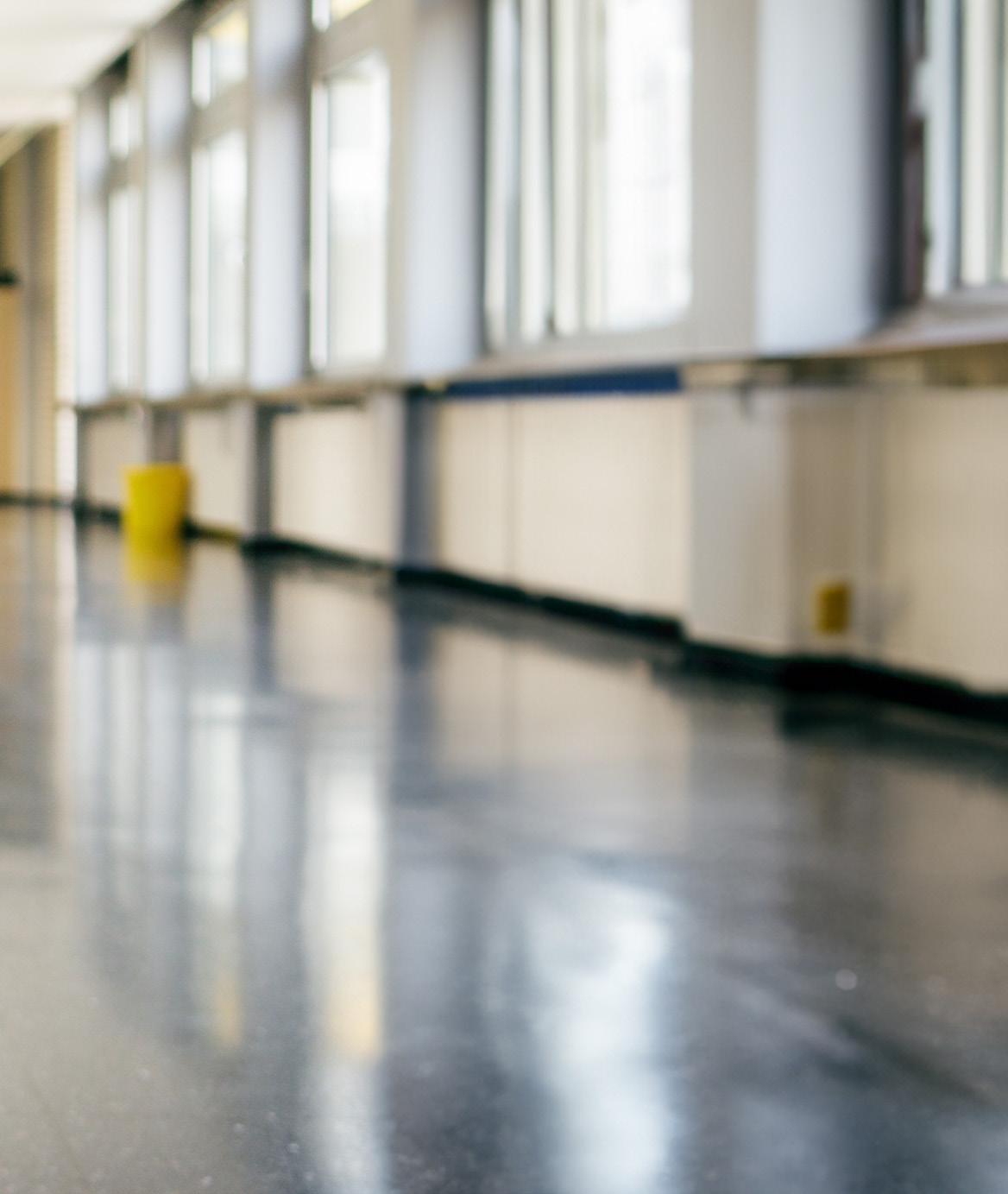
In specialised schools, the staff may have the responsibility of evacuating students with diverse needs. Assigning staff with a duty to assist students in evacuation can help in ensuring that all occupants have been evacuated in an event of fire. Staff can take register of the students once outside the building to ensure no one is left behind. An early warning and instructions to staff members can ensure that they implement safety protocols by prioritising students with mobility impairments or guide them to designated evacuation points. The alerts and location of the fire alarm can help staff to minimise response times and facilitate a quick evacuation, reducing the risk of injuries or fatalities.
A fire strategy should be designed to ensure that the common corridors used for evacuation purposes are sufficiently wide and have enough escape capacity for all occupants. Where students may require mobility aids such as wheelchairs, a wider escape route may be necessary. By incorporating features such as ramps, handrails, and accessible exits, schools can enhance the safety of occupants. The final exits should be designed to provide sufficient escape capacity for all occupants. Suitable fire doors should be installed to allow for a swift escape in the event of an emergency. These should open fail safe for the
In specialised schools, the staff may have the responsibility of evacuating students with diverse needs. Assigning
staff with a duty to assist students in evacuation
can help in ensuring that all occupants have been evacuated in an event of fire
students to escape. Any automatic opening doors and hold-open devices should be tested periodically to check their adequacy.
Where multi-storey school buildings are serving specialised educational needs, a consideration should be given to the evacuation lifts and refuge points for occupants to call for help. Where evacuation lifts are provided, these should have a protected smoke vented lobby to provide a safe environment to wait while help arrives.
In specialised schools, the travel distances should be kept to a minimum and should lead students directly a safe outdoor space and help to direct them to the allocated fire assembly point. This will help reduce confusion and will provide a safer means of escape for students in an event of fire. The external escape routes used during evacuation should be kept clear of any obstructions.
The management of the school building should ensure that effective protocols are implemented for proper storage and handling of flammable materials to reduce the risk of fire. Cleaning products, chemicals, and combustible materials should be stored in a safe environment and should only be accessible to authorised personnel. Regular inspection of electrical equipment, computers, and kitchen equipment is essential to ensure safety. A fire risk assessment should be completed annually as per the responsibilities highlighted in the Fire Safety Order 2005.
Periodic fire drills should be conducted by faculty staff and students, to ensure preparedness and optimised response capabilities. Staff members should be trained E


For more information, contact your CEIA representative at info@ceia.co.uk or call us today at +44 1789 868 840 • +44 7887 421 410

• QUICKLY AND AUTOMATICALLY SCREEN GUESTS with their backpacks and bags
• EXTREMELY HIGH THROUGHPUT with near-zero nuisance alarms
• DETECTS HANDGUNS AND MASS CASUALTY THREATS, such as high caliber assault weapons and IEDs
• EASY TO RELOCATE AND QUICK TO INSTALL: Less than 1 minute setup time
• INDOOR AND OUTDOOR OPERATIONS

F and have sufficient knowledge of fire hazards, prevention measures, and emergency procedures, including nearest emergency exits and use of fire extinguishers. Regular fire evacuation drills can also be implemented to ensure that all occupants are familiar with the evacuation procedures and assembly points.
In conclusion, prioritising fire safety in a specialised school setting is essential in creating a secure and inclusive learning environment for all students. By adopting a comprehensive approach to address the unique needs of students, staff, and visitors, schools can effectively mitigate the risk of fires and minimise the potential for injuries or fatalities.

Early warning systems, design of escape routes and final exits, fire safety management, and training can contribute to enhanced preparedness and response capabilities. By prioritising fire safety, specialised schools can uphold their commitment to providing a safe learning environment where all individuals can thrive academically and socially.
SOCOTEC provides testing, inspection, and certification services across the globe.
The team offers comprehensive fire consultancy services to specialised schools, ensuring compliance with stringent fire safety regulations and addressing the unique needs of occupants with diverse requirements. SOCOTEC’s seasoned Fire Engineering division provides tailored fire safety strategies during design stages, offering ad-hoc advice during construction.
The company specialises in implementing early warning systems, designing protected escape routes, and enhancing evacuation procedures to accommodate students with sensory impairments or mobility challenges. With a commitment to safety and innovation, SOCOTEC ensures a safe and inclusive learning environment for all occupants, supporting specialised schools in prioritising fire safety and well-being. M
For all your educational and office supplies...

Y o u c a n c o u n t o n V i k i n g !
With over 34 years expertise and more than 47,000 products online, you can get free, next day delivery on everything you need for the classroom and beyond.
Whether you choose to purchase independently or via one of the approved OJEU-compliant frameworks, Viking is the supplier for you!
And if you need any help, speak to our friendly, UK based customer service team.
“I have dealt with Viking for over thirty years as a school head teacher. Have always been delighted with the quality of service and speed of delivery.”
Quoted from an independent Trustpilot review
We already supply one in every three schools in the UK and pride ourselves on service excellence.
If you too would like to work with us, contact us at: newcustomer@vikingoffice.eu or visit us at: viking-direct.co.uk/schools-shop

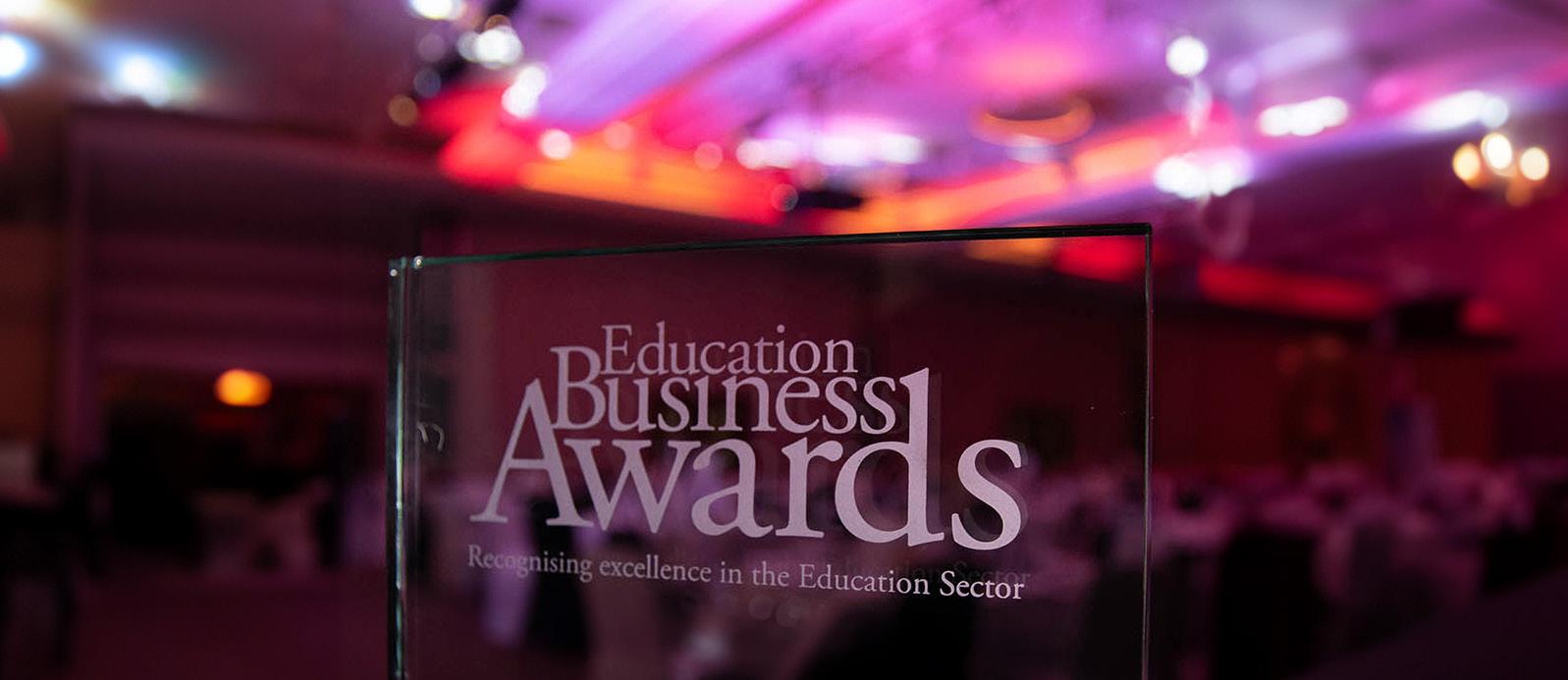
The Education Business Awards, which take place on 12 June in London, continue to celebrate the outstanding work, commitment and achievements of the education sector. Here’s a look at the shortlist
The shortlist has been revealed for the 2024 Education Business Awards, which celebrate the outstanding achievements and commitment of schools and academies across the UK.
Taking place on 12 June at the Leonardo Royal hotel in St Paul’s, London, the awards continue to seek out the unsung heroes and celebrate their incredible achievements in all aspects of school life.
This year, the awards will be presented by Ashley John-Baptiste – a young BBC broadcast journalist and presenter who has a remarkable story of how he overcame his troubled childhood to study at one of the world’s best universities. He was nominated for the Young Talent of the Year award at this year’s RTS Television Journalism Awards.
The Outstanding Progress Award is presented to the schools that have made significant improvements in the leadership, management and educational performance of the
school. This award will be presented to an independent, primary, and secondary school.
Last year, the winner of the Outstanding Progress Award for the primary sector was the Christopher Hatton School in London, recognised for its well-devised curriculum, passionate teachers and its wide range of high-quality enrichment activities to give pupils an outstanding education.
Sponsored by Action Mats, the 2024 shortlist for the Outstanding Progress award in the Primary sector is Our Lady and Saint Benedict Catholic Academy, Great Bentley Primary School, Christ Church Primary School, St Giles Church of England Primary School, Kirton Primary School, and High Street Primary Academy.
Last year, the Outstanding Progress Award for the secondary school sector was St Damian’s RC Science College in Lancashire. Put in Special Measures in 2010, the school became rated as ‘outstanding’ in 2017 and continues to deliver an exceptional education for all students. E

Having provided an extensive independent investigative service for all industry and property sectors, we are sharing our knowledge aimed at reducing the instances of damp and mould with better decision making and proven cost-savings – when you need it!
An independent support Framework will endorse your drive for change and uphold the requirement for immediate proactive guidance
Our expert services include...



Ventilation Compliance
Retrofit & Net Zero Knowledge and and Guidance Impact Assessments

Structural Air Leakage Testing IoT Monitoring and SMART Knowledge alongside Whole Ventilation Rate Alerts and Guidance
Assessing & Certifying existing

Bespoke CPD Training for Optimum Structural Health conditions performance and occupant Guidance

A Property Health APP will deliver 24/7 access for damp, condensation and mould issues - with a difference.
Just type in the issue and receive likely reasons alongside recognisable guidance measures for either immediate resolution or timely notification.
or,
or, send

Taking place on 12 June at the Leonardo Royal hotel in St Paul’s, London, the Education Business Awards continue to seek out the unsung heroes and celebrate their incredible achievements in all aspects of school life
F The 2024 shortlist for the Outstanding Progress Award in the secondary sector, sponsored by Ecogrit, is Watling Academy, Bentley Wood High School, Denbigh High School, St. George Catholic College, Rickmansworth School, and Wright Robinson College.
Last year, the Outstanding Progress award for the Independent schools sector was presented to St. Edwards Cheltenham for improving academic outcomes under new leadership and ownership.
In 2024, the shortlisted schools for the Outstanding Progress in the independent school sector, sponsored by Viking, are Highgate School, The Perse School, Wycombe Abbey School, Whitgift School, Tonbridge School, and Gordonstoun.
Introduced in 2023, the EB Leadership Award recognises the individual leaders
making a significant difference in their education settings, bringing together the school community under the same ethos.
Last year Nicky Donley, executive headteacher at Kirton Primary School, won the EB Leadership Award for the Primary Sector. Nicky was recognised for achieving sustained success in improving educational standards and having communication skills that enabled effective collaboration with organisations both inside and outside the school.
This year, the shortlist for the EB Leadership Award in the primary sector is Amanda Wilson from St Alfege with St Peter’s Church of England Primary, Rizwana MahmoodAhmed from Carlton School, and Caroline Evans from Park Primary School.
In 2023, James Eldon, principal at Manchester Academy, scooped the EB Leadership Award for the secondary sector, recognised for his transformation of the school, which went from ‘inadequate’ in 2012 to ‘good’ three years later.
In 2024, the EB Leadership Award in the secondary sector, sponsored by Viking, includes Rod Sims from York High School, Katharine Birbalsingh from Michaela Community School, and Neil Renton from Harrogate Grammar School.
Meanwhile, the School Business Manager Award, sponsored by Viking, is presented to an individual whose business leadership skills and commercial outlook have had a positive impact on the school’s budgeting and strategic decision making. The shortlist for this year comprises E

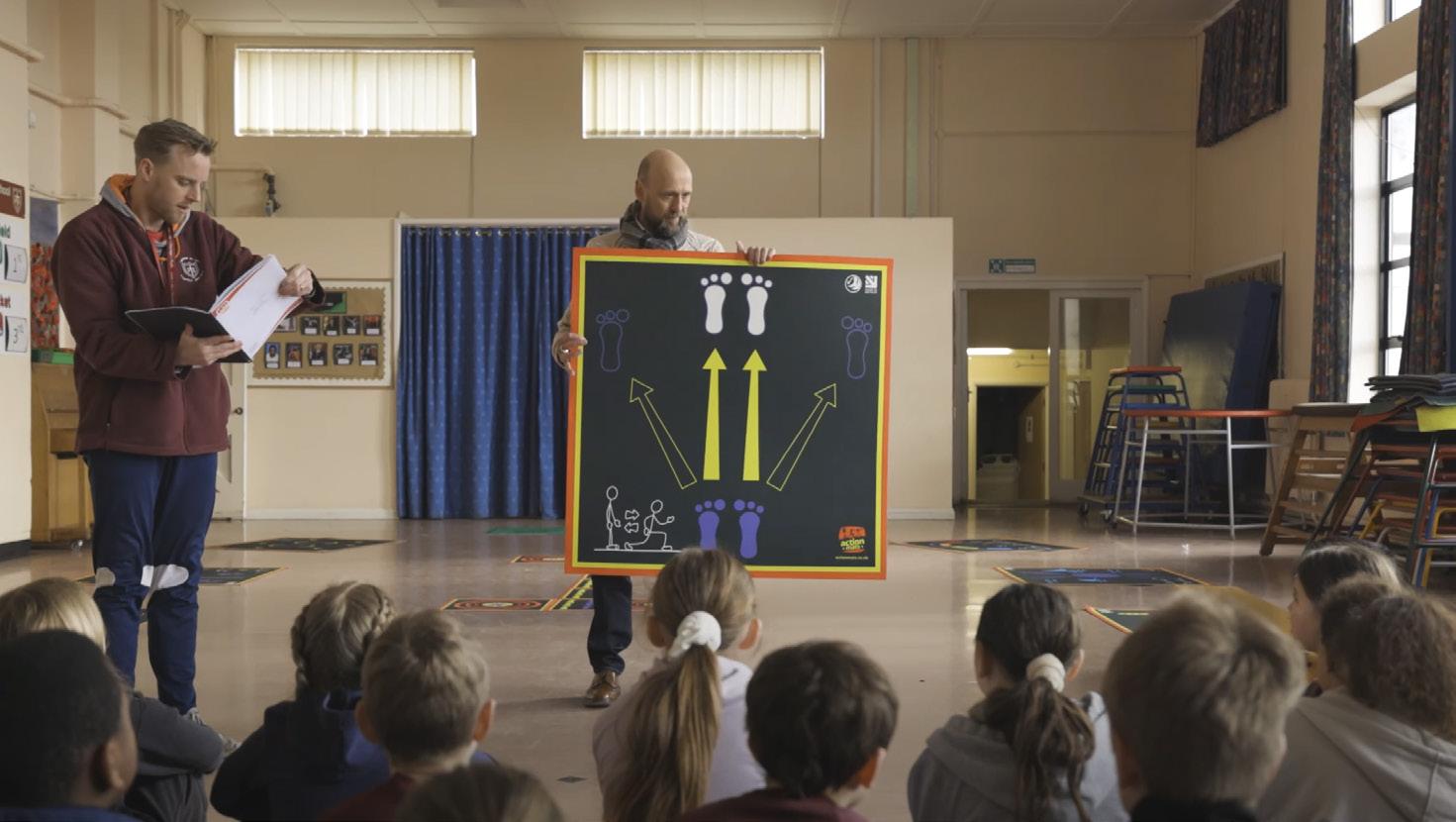






F Duncan Marshall from St Edburg’s CE Primary School, Mark Barnes-Moran from Stansfield Hall Church of England / Methodist Church Primary School, Sue Blackwell from Wensley Fold CE Academy, Fran Hedges from Wootton Park School / Northampton Free Schools Trust, and Jacqueline Dwyer from Stony Dean School.


The STEM Award is presented to the educational establishment that has excelled in the provision of a first class environment for teaching STEM subjects including maths, technology, engineering and sciences. Last year, St Paul’s School in London was presented with the STEM Award for its provision of residential summer schools in the field of materials science or particle physics. The nominations for this year’s award are Nottingham High Junior School, Repton Prep, Neston High School, and Kirton Primary School.
Meanwhile, the ICT Innovation Award, sponsored by Bett, is presented to the educational establishment that can demonstrate innovation in its approach to teaching IT and computing that furthers the learning experience of all its students. Fulford School in York scooped the accolade last year for its exemplary computing curriculum which is designed from the ground up.
The shortlist for the ICT Innovation Award this year comprises Thomas Tallis School, Barrow CVEC Primary School, Chase High School, and Skipton Girls High School.
The Environmental Practice Award, sponsored by Cornerstone, recognises the school that
goes above and beyond when it comes to minimising its impact on the environment, as well as providing quality environmental education to its pupils. Last year Kingsley School in Devon scooped the award for its environmental ethos which runs throughout its curriculum, grounds, practices and its culture.
The Environmental Practice Award shortlist for 2024 is the Wallace High School, Highfield and Brookham School, Stony Dean School, Wright Robinson College, and James Allen’s Girls School.
The School Building Award, sponsored by Greendawn Power, is presented to the establishment that has a school building designed to provide quality and inclusive learning environments, that demonstrate modern methods of construction and are sensitive to the environment and its surroundings.
Tring School’s Dobberson Building won the award last year for its environmentallyfriendly design which aims to bring the outside in. The new building features state-of-the-art laboratories, fingerprint scanning and climate control. This year, the schools competing for the School Building Award are Livingstone Academy, The Valley School, Silverdale School, St. Leonard’s Primary School, and The Charter School.
The School Procurement Award, sponsored by T150 Energy, is presented to an individual project where a school has worked with an outside agency or local authority to refine its buying practices and increase value to the taxpayer. The shortlistfor this award E

Join us for our biggest show yet, as we celebrate four decades of educational excellence at the ExCeL London from 22-24 January 2025. As a celebration of education, we are looking back at our history and driving forward on our mission towards better education, globally. With immersive workshops, thought-provoking content, cutting-edge technology and unrivalled networking all wrapped up in a 40th birthday bash, there’s no opportunity quite like it for educators!
Take part in peer-led discussions to inspire change and spark new ideas at Bett 2025. Launched in 2024, we hosted over 130 roundtables between 1,000 educators from 739 institutions across 78 countries.
Want to discover the right solutions for your learners in a fraction of the time? Using data and technology we make critical connections between education decision makers and solution providers, taking the ‘work’ out of networking.
Registration for Bett 2025 opens very soon and tickets are totally FREE for educators!
Due to popular demand, Tech User Labs is back and bigger than ever! With free sessions at Bett 2025, you’ll learn how to get the most out of your current tech and explore emerging innovations within education - there’s no CPD opportunity quite like it!



Sign up to The Bett Buzz newsletter today to be the first to find out how to get a ticket.

F comprises Meopham School, Nexus Multi Academy Trust, Links Academy MAT, OWLS Academy Trust, and Westwoodside Church of England Academy.
The School Security Award, sponsored by Evolution Doors, recognises the UK school that has made outstanding efforts to increase security through a combination of increased awareness in staff and pupils and the procurement and installation of additional security measures. The Holt School, Hill House School, St. Benedict’s Catholic Primary School, and Breakspear School have all made the shortlist in this category this year.
The Community Award, sponsored by Holmes & Partners, is presented to schools working in partnership with the community and other public sector bodies on projects that bring specific benefits to the local community. In 2023, Dunoon Grammar School in Argyll scooped the award in this category for its work to tackle a lack of opportunities for young people in the area.
Schools up for this award in 2024 include Etone College, Northfleet School for Girls, Lawley Village Academy, Newent Community School, Windsor Academy Trust, and East Ward Primary School.
The School Recruitment Award recognises an educational establishment which has invested in its recruitment and retainment methods to ensure a timely intake of good quality teaching and support staff. Last year Berkhamsted School in Hertfordshire won the award for its recent introduction of web recruitment
which has allowed for the anonymisation of candidates ahead of the selection for interview stage which helps limit any unconscious bias.
The shortlist for the School Recruitment Award this year is The Laurus Trust, Anthem Schools Trust, The Hopedale Group, and Robert Drake Primary School.
The School Catering Award is presented to an educational establishment in the UK that can demonstrate a commitment to healthy eating and value for money through the provision of a first class catering service available to all students.
Last year, Leger Education Trust in West Yorkshire won the award for replacing several carbon-heavy meat-based dishes with sustainable plant-based alternatives across three schools. This year, the shortlist comprises Fullhurst Community College, St Wilfrid’s Catholic High School, Downham Market Academy, Town Field Primary School, and Gordonstoun.
The School Sports Award is awarded to the educational establishment that can demonstrate an outstanding commitment to developing the sporting skills of all of its students in an inclusive manner and through the provision of first class facilities.
Last year, Treloar School in Hampshire won this accolade for the extraordinary lengths it goes to to ensure that the disabilities of its pupils do not prevent participation in a wide E



Committed to enhancing (and maintaining) sustainable solutions for schools, we ' re proud to sponsor the School Building Award
Committed to revolutionising education, we're proud to offer the complete and comprehensive sustainable solution.
Our innovative and unique approach introduces the advantages of EV technology to educational establishments throughout the UK - for free. And, all additional revenue is reinvested back into schools and local communities - creating a more sustainable future that we can all be proud of.

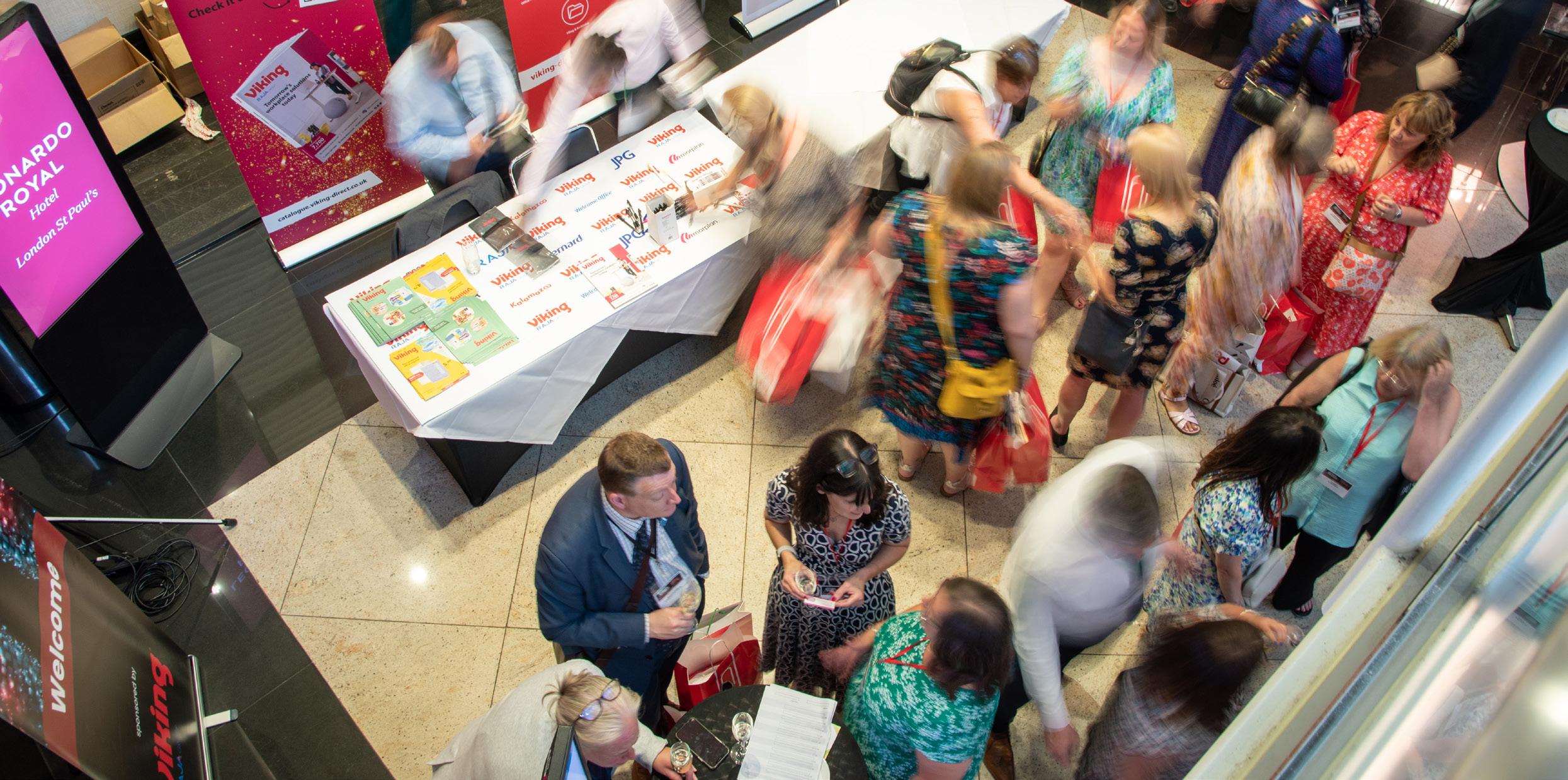
F range of sports. This year’s shortlisted schools include Cheadle Hulme High School, The Warriner School, New College Leicester, and Great Waldingfield CEVC Primary School.
The SEN Provision Award, sponsored by Crescent Purchasing Consortium, is presented to the UK SEN Establishment that can demonstrate exceptional quality of care and education services provided to students with SEND. Last year, the Pioneer School in Essex won the award, recognised for its therapists which work closely with classroom staff to plan and deliver lessons using a pupil centred approach, as well as its three dedicated sensory spaces and a state-of-the-art Immersive Room. This year, Red Kite Special Academy, The Cedar School, The Holmewood

School, and Stony Dean School are all on the shortlist for the SEN Provision Award.
The Best Practice in Inclusive Education Award, sponsored by Nasen, recognises a setting that has demonstrated exceptional commitment to promoting inclusiveness in the classroom and creating a positive and supportive learning environment for all students.
Bromley High Junior School, The Hayling College, and St John’s C of E Middle School Academy have all made the shortlist in this category.
Introduced in 2023, the Educational Resource Award recognises an innovative educational product or service which supports teaching and increases pupil engagement. There are two awards; one for the primary sector and one for the secondary sector.
The shortlist for the primary sector is iRock School of Music; LoveReading4Kids; 1decision PHSE Programmes; Verbo Purple Chip; and Resus Rangers First Aid resources.
Meanwhile, the shortlist for the Educational Resource Award in the Secondary sector comprises the Institution of Engineering & Technology; Victoria & Albert Museum; Fettes College Middle School diploma; Amnesty International; Royal Geographical Society; and European Space Agency. L

PsycApps Ltd is a leading innovator in mental health and wellbeing solutions. Created by Psychologists, our mission is to improve the lives of individuals worldwide. We are dedicated to creating cutting-edge digital tools and resources that empower individuals to take control of their mental health and overall wellbeing.

by
Shaping healthy futures through evidence-based, digital solutions
Created by Psychologists, Built for Education
See what students say about our flagship solution, eQuoo
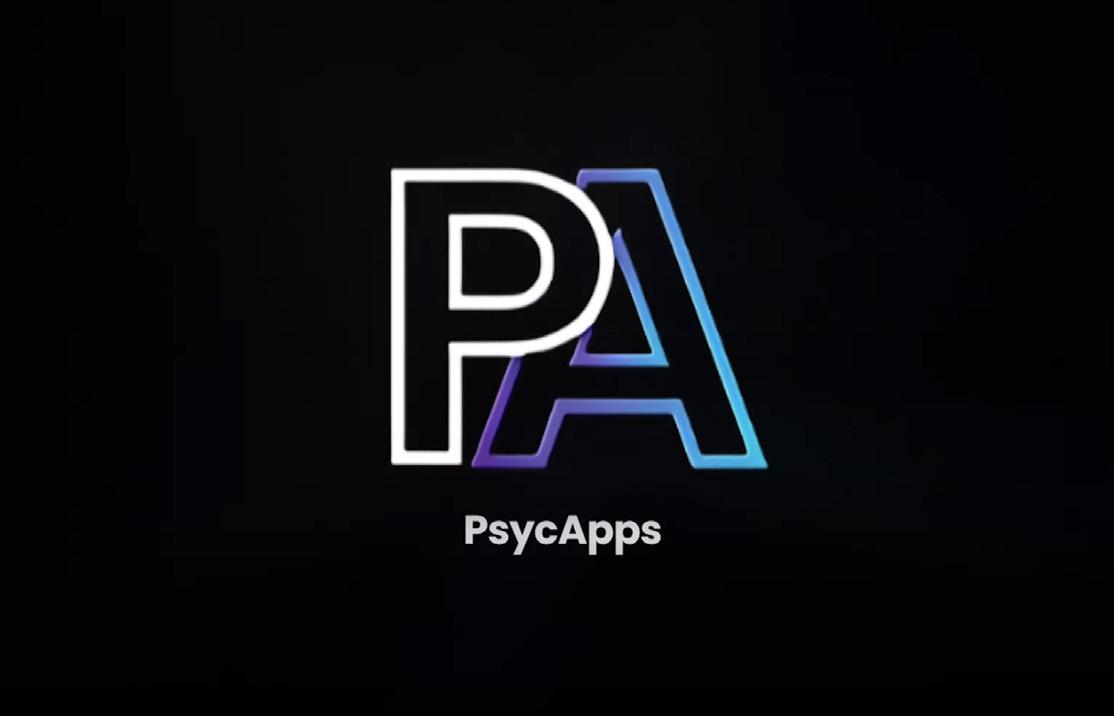
Explore staff solutions: www.psycapps.com/resiliencetraining Speak to our experts www.psycapps.com
What have we learned about hybrid teaching and online learning, four years since the start of Covid? Victoria Temple from BCS, The Chartered Institute for IT, looks at tricks, tips, and what’s working
Can your school deliver high quality online education and hybrid learning?
Covid transformed approaches to digital education. Today hybrid learning continues to play an important part in education provision. It’s a valuable tool which enables those young people to access education if they are not able to attend school for a variety of reasons.
Hybrid teaching can be vital when a crisis hits, such as the sudden closure of schools following the discovery of RAAC.
We spoke to computing teachers for tips about how best to deliver digital learning and look at the latest developments.
Computing at School (CAS), the teacher-led network which supports primary and secondary computing teachers, is at the forefront of sharing expertise on digital learning.
Pete Dring leads the CAS Secondary Community, which runs events and shares ideas on computing teaching. Pete is also head of computing at Fulford School in York. He said: “Many schools have continued to deliver home learning using online teaching.
“There’s a sizeable minority of students who have struggled to come back since COVID.
“My school has invested in hybrid ed tech (like the AV1 robot) so that students E


Photo editing, page layout, graphic design and illustration tools for Mac, Windows and iPad


F can join in from home or a safe, quiet environment in school with a view to encouraging reintegration where possible.”
Effective hybrid teaching means schools can be well-placed to cope with the unexpected.
“‘Snow days’ are now largely consigned to the past: schools might physically close but learning just continues online – at least, it’s meant to, in between snowballs and snow sculpting!” said Pete.
Teachers’ understanding of the benefits of hybrid teaching and home learning has developed significantly.
“Some things have come a long way: hybrid teaching is great for revision: video revision resources and online drop-in support sessions, such as the Isaac Computer Science online booster events for students, can be scaled up with huge benefits to students and teachers,” said Pete.
“Some teachers run additional after-school revision sessions in person, but hybrid techniques could have far more positive impact for students – with significantly less negative impact on teachers’ workload,” he said.
Homework and parents’ evenings have also been transformed, following the pandemic. E
Hybrid teaching can be vital when a crisis hits, such as the sudden closure of schools following the discovery of RAAC in buildings

If only protecting your pupil, student and young person’s data was as simple as protecting them in the school grounds.
Pupils, students and young people learning within a safe and secure digital environment is paramount to their development and essential if they are to achieve the best possible outcome from their journey through education, SolarNet are here to help.
How safe is your school from an online cyber attack?
Cyber criminals are focussed on the education sector with Ransomware and Phishing attacks becoming more prevalent. These attacks are more sophisticated than ever and are more likely to succeed unless your school has the necessary security controls to stop them and prevent you becoming a victim of cyber crime.
SolarNet offer a comprehensive set of products and services that will keep your school ProtectEd® at all times.
Do you know what I.T assets you have?
In a complex I.T environment it’s not always easy to obtain a reliable and comprehensive I.T asset register which identifies:
• All assets including where they are located
• Asset condition and any security risks posed
SolarNet offer an automated I.T asset management system which:
• Discovers all I.T assets and their location on your network
• Identifies I.T asset vulnerabilities
• Integrates with support systems to help manage remediation activities
• Notifies stakeholders of I.T asset issues before they become a bigger problem
• Provides continual checks of I.T infrastructure to aid with compliance, e.g., Cyber Essentials
would happen if criminals gained access to your ParentPay?
ParentPay is an essential service used by pupils and parents to pay for anything from meals to trips but what would happen if this suffered a cyber attack? What if financial data were stolen and used fraudulently, what impact would that have on your school?
SolarNet in partnership with AdamNetworks offer a Zero Trust solution tailored for education. Deploying our Zero Trust capability ensures your school remains protected, keeping your ParentPay services and school operating normally without risking the loss of financial data.
We work with a world-leading network of Trusted Partners including:





your school function if it was taken offline?
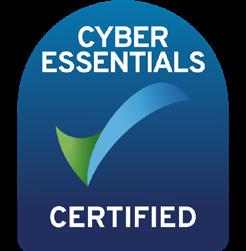
There is an increasing reliance on schools being able to deliver education digitally, whether that’s through online learning portals, or through their own home learning environment. How long could your school operate without such a valuable learning aid before it started to affect a student’s ability to achieve their true potential?
SolarNet can stop cyber attacks from becoming a reality and provide peace of mind knowing your school will continue to operate within its digital environment without disruption.
Learning within a safe and secure digital environment is crucial to a student’s development and essential if they are to achieve the best possible outcome from their journey through education.
That’s why SolarNet offer the ProtectEd® set of products and services tailored for education delivered through our trusted partner network, enabling all educators to have the same cyber security protection that global enterprise-level businesses benefit from today.
Education is not immune to the effects of complex and tedious manual processes which get in the way of delivering positive outcomes, leading to frustrations felt by staff, students and parents alike.
That’s why SolarNet offer the AutomatEd® set of products and services, tailored for education and focussed on delivering workplace automation. No matter what processes, systems or technologies are in use, SolarNet can provide guidance on how to maximise efficiencies. We believe in working smarter not harder through combining capabilities, and by working closely with teams in education to affect positive change.

We are approved sponsors and suppliers for:




F “Even if appointments run face-to-face, bookings can now be done online and parents now mostly stick to time. Gone are the days of hopeful parents hovering at the end of an exceptionally long day hoping for a ‘brief chat’.
“For me, homework is all set online, mostly submitted online and all rewarded online. The resulting rise in both participation and impact has been huge, although there are valid concerns.”
Many teachers are now familiar with using Microsoft Teams, Google Classroom or similar platforms, but the ability to provide online learning varies hugely. The range of experience among teachers varies – and some subjects are far easier to resource and facilitate online than others.
It’s now four years since the pandemic, and, said Pete, the experience of online teaching is starting to fade: “Four years in teaching is a long time, especially with the recruitment and retention issues in education. There are many new teachers who haven’t lived through the delights of online lessons – and we are now even starting to see new teachers who remember their experiences from the other side of the screen as students!”
‘Computing at School’ is a great starting point for developing teachers’ skills, exploring learning platforms, including recent video resources to help get to grips with Seesaw, Google Classroom, and MS Teams
Adrienne Tough is head of computing at St John’s Catholic Comprehensive school in Kent. She explained that she now routinely uploads her resources to Teams as part of her classroom teaching: “My KS4 lessons and Powerpoint slides are all uploaded to the Teams page. So, if a student is not able to attend school for any reason, catch-up is much more straightforward. Uploading lessons has also improved teaching and learning for students who might need more time to consolidate learning or additional support of any kind.” Online lessons require different techniques to ensure student engagement. Adrienne explains: “During covid, I found that students loved the polls, and I now use PI more in the E

In the modern digital workplace, applications and systems are accessible from any device whether they are hosted in the cloud or on premise. It’s now even more important to ensure your organisation has the best possible security posture to protect you from the cyber threats of today and tomorrow.
At SolarNet our team have 50+ years combined experience in cyber security enabling us to perform Security Assessments with ease. This assessment gives you an up to date view of your organisation’s security position, identifies critical security issues and how to fix them. Don’t worry if remediation of security issues is not your strong suit SolarNet are here to provide guidance and support with anything that you may need.
We offer a straight forward approach to Microsoft 365 security assessments underpinned by our knowledge and expertise in this sector.
What are the benefits of having a Security Assessment?
• Fast Assessment with Zero Impact to Users
• Your Microsoft 365 Data is Protected
• Cutting-Edge Innovate AI Based Assessments
• Helps Secure your IT from External Threats
• Quickly Identifies Vulnerabilities and Risks from External Threats
• Understand your Cyber Threat Landscape
• Real-world Threat Intelligence
• Post Assessment Support
Drive efficiency and improve security with predictive, actionable insights into your external attack surface and your third parties.
ISO Certified
SolarNet are certified ISO 27001- Information Security Management and ISO 9001 - Quality Management compliant, which epitomise our ability to consistently meet our customer’s expectations and regulatory requirements.




Does your organisation have a digital presence either internally or internet-facing to perform business critical functions? If so then understanding your organisation’s internal and external attack surface is paramount in minimising your exposure to cyber threats that can lead to breaches for you and your third party supply chain.
At SolarNet our vast cyber security experience and trusted partner network enables us to provide stateof-the-art accredited penetration testing of wired and wireless networks, applications and online platforms using the same tactics, techniques and procedures that cyber criminals use to gain access to your network and your data.
Undertaking a penetration test provides you with a comprehensive report that identifies what live vulnerabilities you have, a risk score of how likely they are to being exploited, who is likely to exploit them and how they are going to do it. But most importantly it provides the remediation steps enabling you to take the necessary measures to stop your cyber risks before they happen.
• Gain Important Business Insights into Cyber Security
• Identify & Prioritise Real-Time Risks
• Helps Secure your IT from External Threats
• Quickly Identifies Vulnerabilities and Risks from Cyber Threats
• Obtain and Maintain Compliance
• Test Cyber Security Incident Response Plans

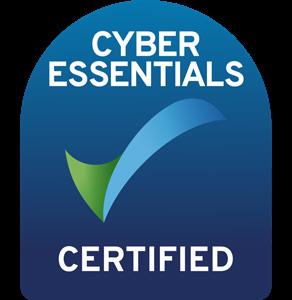





Snow days are now largely consigned to the past: schools might physically close but learning just continues online – at least, it’s meant to, in between snowball fights
F classroom as a result. This includes ‘foolproof questions’ within quizzes which ensures I can monitor who was actually engaged in learning and not simply spent time on an X-box!”
The ‘digital divide’ has an impact. Most students have access to a smartphone but they may not have areliable access to the space, support and internet access to enable them to work online at home.
Adrienne said: “There are students who simply don’t have the resources at home, whether that’s Wi-Fi, or access to a device. Students who have a lot of siblings and limited devices can struggle. We run a daily homework club which is well attended by those who don’t have access to internet or perhaps require additional support. We also loan laptops to any students without digital access at home.
“Accessing the internet can still be a challenge for some students – during the last lockdown the school supplied WIFI dongles to several families”
Pete Dring added that hybrid learning can make managing ‘screen time’ more challenging. “There’s significant concern that schools increasingly relying on students accessing the internet at home can complicate the relationship between students and their parents in terms of trying to control screen time. It’s much harder to set a limit when homework requires access,” Pete said.
Pete recognised that it’s often difficult for schools to support teachers’ continuous professional development so that every student would be well supported through hybrid learning.
“I’m lucky to be in a school that has made it a priority, but I’d be cautious to believe that any school had all of the training and skills needed to thrive in hybrid learning,” he said.
“Teachers are usually keen to learn but lack the time to adapt, experiment and plan beyond the immediate. Many of the potential benefits of remote learning are either being forgotten after COVID or never really materialised due to lack of time, training and support.
“Initial Teacher Training Providers, Teaching School Alliances, Multi Academy Trusts and other organisations all have a significant role to play to rise to the challenge.
“It’s great to see pockets of good practice and it’s wonderful being part of supportive teacher communities like Computing at School but there’s so much more to be done.”
Computing at School (CAS) is a great starting point for developing teachers’ skills, exploring learning platforms, including recent video resources to help get to grips with Seesaw, Google Classroom, and MS Teams. M
www.computingatschool.org.uk
Promethean’s Simon Port shares how education technology can support teachers with enhancing pedagogy, and explores its role in providing quality education to remote learners
How can education technology transform teaching and learning practices and engagement in the classroom?
First and foremost, we must recognise that education technology exists to enhance the role of the teacher rather than to replace them. Through education technology, teachers can access tools which give them greater flexibility in lesson planning, and open avenues to more engaging lessons. We’re seeing learning transformed through new teacher-student dynamics where pupils can take ownership of their learning and collaborate more closely with their peers. In fact, it’s been a real theme of Promethean’s development – we’re working hard to ensure that our solutions drive engagement by breaking down traditional classroom barriers and offering new ways to share and interact with lesson content.
I also believe that there’s an important accessibility angle. Technology can give teachers and learners a platform to access the curriculum according to their own style or preferences, so I think we are ultimately giving more people a route into meaningful education.
In what ways can schools provide quality education education for those having to learn at home?
I think it’s about encouraging equitable access to education. Giving support to those that most need it, and not assuming there’s a ‘one size fits all’ package for learners – whether present in schools or learning remotely. Delivering quality education to remote learners requires that we treat them equally and deliver truly hybrid lessons, rather than just dialling them in from a distance. We continuously evolve the Promethean ActivPanel to meet the changing needs of education.

With education technology that delivers value long into the future, schools can maximise their resources while avoiding wastage
From a remote learning perspective, it’s easy to introduce webcams, microphones and enhanced audio to create a seamless set-up for collaboration. We want to make it so that shifting between modes of teaching is seamless, and not a major code switch.
Finally, I believe it’s essential to maintain one-to-one opportunities between teachers and remote learners to underpin the interpersonal side of teaching. After all, it’s the rapport between a teacher and their students that really captures the imagination.
What sustainability considerations should schools have when purchasing and using technology?
Sustainability and energy efficiency is a headline item for schools, and it’s a multifaceted challenge to approach. In relation to education technology, I think schools would do well to think not just about the sustainability efforts of the manufacturers and what goes into the products themselves, but about how those solutions contribute in the long term.
For example, the energy efficiency and usage of the product in day-to-day use – will it be cost effective to run?
Then there’s longevity, which is as important for sustainability purposes as it is for the simple fact of making a good futureproof investment. With education technology that delivers value long into the future, schools can maximise their resources while avoiding wastage.
One of the best ways to futureproof education technology investments is to choose modular solutions which can be upgraded to keep pace with computing changes, without having to overhaul a complete system.
How can schools ensure the security of their screens and devices?
In an increasingly digital world, security is more important than ever. I believe it’s best served by encouraging buy-in and competencies across all staff groups. While IT teams will likely take charge of infrastructural security, potential problems can be averted by ensuring

Port, head of UKI market, Promethean – a brand of Mynd.ai
Since joining Promethean in 2008, Simon Port has had a pivotal role in developing partnerships that ensure schools and colleges invest in the right education technologies to improve student outcomes, drive operational efficiencies and derive maximum value from their budgets.
teachers are aligned to everyday security practices and best uses of digital systems. Schools can also put training and accessible policies in place to set security standards. For example, guidance around where and when personal drives can be used. Although the cloud is available, some teachers may still store some teaching materials on personal drives and bring them to each classroom –but it’s important that no sensitive data is brought outside of the school ecosystem.
Overall, I think the best approach is one of transparency and honesty – helping staff to understand the importance of digital security and training them to maintain it. M

Richard Child from MCC Digital shares advice on building a strong and successful digital strategy that achieves the desired end-goals, as well as sharing environmental and procurement considerations
What do schools need to consider to ensure they have a successful digital strategy?
When discussing digital strategy, it’s very important to start with the overall priorities for the institution as a whole. The strategy can’t be to deploy devices to students and teaching staff, it needs to outline why the introduction of new technologies will support the school improvement plan and improve teaching and learning, ultimately raising the outcomes that matter.
Measuring success is key to this and a consultative approach will help us to zero in on the key metrics that will tell us if an initiative is working in the medium and long term. Considering that we’ve had digital devices in classrooms for generations now, it still surprises me how many schools focus on the technical and deployment aspects of a digital strategy and neglect these other vital components. Of course, deployment is important and the tools to help schools manage large numbers of devices are a real time saver. The move to cloud based device management means we can now deliver devices to schools that are
ready to be handed out to users immediately. However, deployment is just one of five areas we cover as part of our planning process with schools. The others are equally important and these are the school’s overall vision for learning, instructional readiness of the teaching cohort, analysis of the learning environment and building best practice with communication. Shaping all of these as part of your digital strategy engages the community as a whole so all are informed and feel included.
What sustainability considerations should schools have when purchasing and using technology?
There are many sustainability considerations when deciding on your technology choices and these are both financial and environmental. As an Authorised Apple Education Specialist, we’re lucky to be working closely with a manufacturer that uses 100 per cent recycled aluminium for iPad enclosures and has extended this initiative to other source materials, including 100 per cent recycled copper foil on iPad logic boards and 100 per cent recycled gold used for plating of iPad printed circuit boards.

When discussing digital strategy, it’s very important to start with the overall priorities for the education institution as a whole
Apple has also worked to reduce plastic used in product packaging – an iPad 10th generation now ships in packaging that is 97 per cent fibre based. Energy consumption is also very important, both in terms of the cost to keep devices charged and the carbon footprint of the sources of that energy production.
According to a recent Forrester study iPad typically has half of the energy consumption of other classroom devices (The Total Economic Impact of Apple Devices for K-12 Education – a commissioned study conducted by Forrester Consulting on behalf of Apple, January 2023).
Longevity of the technology is also a key consideration as this will determine the length of financial investment required to keep any digital strategy sustainable in the long term. Devices that stay useful for longer will also reduce the environmental impact of disposal of legacy devices and at MCC Digital, we are seeing life cycles extended by more than 18 months when moving to Apple products.
In what ways can schools save money when purchasing technology?
Education leaders have many things to consider when they’re making technology decisions, such as current systems, processes and budget. Looking at the full equation allows them to make a smart investment for students, teachers, IT and the entire school community. Because Apple devices are durable, with reliable software and ongoing software updates, they have high residual value. So unlike other devices that are given away or discarded at the end of their life cycle, Apple devices retain significant value over time and can be traded in when it’s time to upgrade, allowing education leaders to recoup costs and reinvest in refreshing technology when the time comes.
How can the introduction of new digital technology enhance creativity in the classroom?
Eighty-seven percent of teachers and seventy-seven percent of parents agree that teaching approaches that inspire creativity in the learning process have a bigger payoff

Richard Child heads the Education business at MCC Digital, an Apple Authorised Education Specialist who work with education institutions across the UK. Richard has worked within the educational technology sector for 25 years and is more excited now about how technology can transform teaching and learning than ever before.
for students. Yet, students spend most of their time on traditional lessons that do little to encourage creativity, even though the growing availability of technology promises new ways of learning ( source ).
In particular, iPad is proving to be a device that ignites creativity in learning, with its highquality cameras, microphones, portability and all-day battery life supporting creative learning indoors and outside. Apple’s Everyone Can Create resources make it quick and easy for educators to bring creativity into any lesson and foster creative expression in every student. The combination of tablet and stylus can also allow easy annotation by both students and teachers, enhancing the feedback cycle in ways that can be profoundly effective. I just wish these tools had been available when I was at school! M


Over 3,000 school leader descended on the ExCeL in London on 1 May to attend the Schools & Academies Show 2024, to meet, discuss and tackle current and future challenges faced by schools, MATs, local authorities and the wider education sector
The Schools & Academies Show took place at the ExCeL in London on 1 May and provided a pivotal platform where the education community could collaboratively prepare for the dynamic changes ahead.
This year, the event hosted three other colocated events - EdTech Innovate, School Estates Summit, and the SEND Conference, which allowed delegates to access more content and a wider range of specialist speakers and suppliers.
Exhibitors covered the show floor, showcasing a range of products and services to cover all areas of education.
With a keen focus on the evolving educational landscape, staff recruitment and retention, budget balancing, stakeholder engagement, and more, the Schools & Academies Show covered the pressing issues currently facing schools.
There was a session on learning from today’s challenges to plan for tomorrow’s education. Speakers including Leila Lai, co-chair at the FED Learners Council, and Carl Ward, Chair of The Foundation for Educational Development. They discussed what systemic issues have arisen in education from short term focus and how a
long-term plan could allow us to tackle these issues and build a better system overall.
There was also a session by Sam Henson, deputy chief executive of the National Governance Association, where he discussed NGA’s open access popular resources, including a template job description for CEOs of multi academy trusts, guidance on what multi academy trust boards and CEOs should expect from each other, as well as recruitment advice.
Workload and wellbeing was also covered, where Emma Balchin, NGA co-chief executive examined how governing boards can monitor staff wellbeing to explore essential mechanisms for overseeing this critical area.
Jon Andrews from the Education Policy Institute (EPI) meanwhile discussed priorities for education in the election. He discussed the key challenges currently facing the education sector and the severity of the effects have on staff and pupil outcomes. He presented and explained evidence-based recommendations on the support schools and trusts need to improve the education sector, and examined to what extent suggested policy changes will be able to support schools and trusts.
Frances Akinde, SEND advisor & inspector, spoke about SENDCOs and how the role can result in feelings of isolation and limited networking opportunities to interact with and learn from peers. This can be felt even more acutely by early career SENCOs, which
The Schools & Academies Show provided a pivotal platform where the education community could collaboratively prepare for the dynamic changes ahead
can result in talented individuals prematurely leaving the profession. Frances spoke about how to solve these issues through a culture of coaching and mentoring.
In the Workforce Theatre, Jack Worth from the National Foundation for Educational Research (NFER), was joined by James Noble-Rogers from the Universities Council for the Education of Teachers, Emma Hollis from The National Association of School-Based Teacher Trainers, Hannah Stolton from Governors for Schools, and Dr Robin Bevan, headteacher at Southend High School for Boys, to discuss teacher recruitment and retention. They discussed what the school workforce stats mean in practice and looked at what schools can do to meet the needs of staff when tight budgets make pay rises difficult. M
FURTHER INFORMATION www.schoolsandacademiesshow.co.uk

With mental health problems among young people on the rise, schools are increasingly having to work as frontline responders. The need for comprehensive, adaptable, and user-friendly MIS platforms that can help highlight issues before they become more serious is more critical than ever, says Claire Wensley

Modern MIS platforms have long been designed to do much more than simply store attendance records and assessment data. When used effectively, an MIS becomes an indispensable tool that can save time, reduce costs, alleviate teacher workloads, and provide school leaders with crucial insights to enhance student outcomes. Today, a good MIS will also help schools
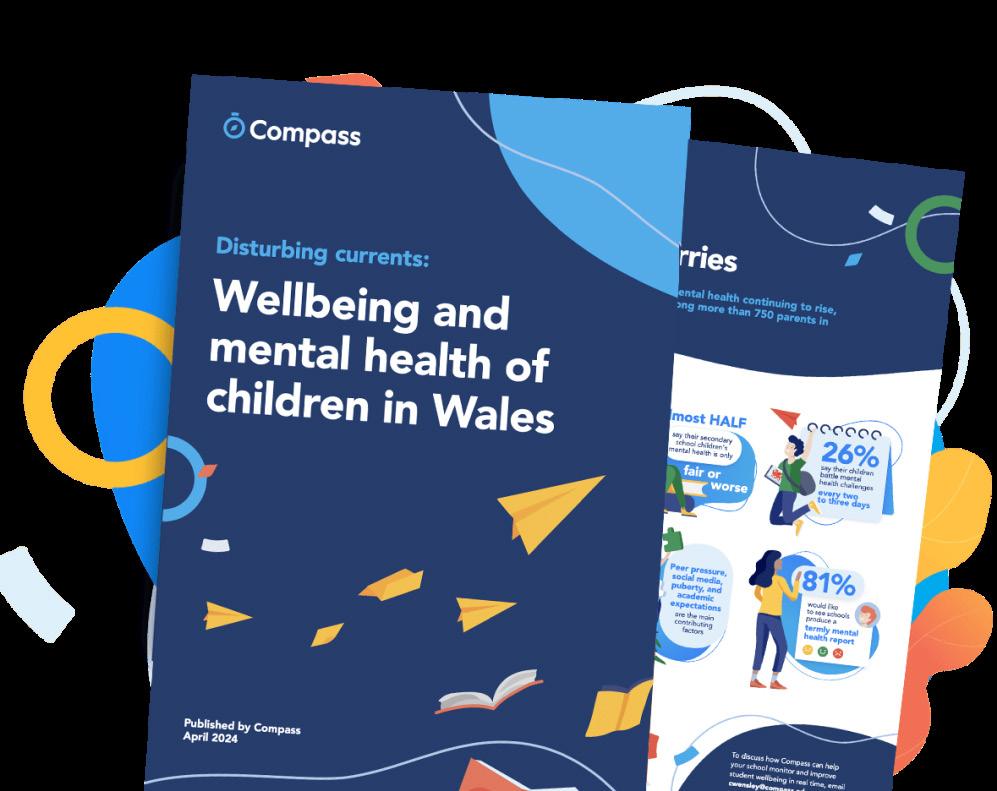
in education: student wellbeing. A recent report by Compass shed light on the mental health challenges faced by students in Wales, revealing a crisis that we know from news reporting is mirrored across the UK. According to our report, seven in ten parents worry about their children’s mental health, with many students attempting to conceal their struggles. The findings also indicated that nearly half of parents believe the mental health of secondary school students is “only fair or worse,” and that a significant proportion of students battle mental health issues on a frequent basis. Schools know that they need robust systems in place to monitor and support student

Compass has always aimed to go beyond simply providing a technological solution to schools to help ensure that every student can thrive
wellbeing. Mental health issues, exacerbated by factors such as peer pressure, social media, and academic stress, require proactive and continuous management within the school environment.
Compass’s Chronicle module is a game-changer in this context. Chronicle has been designed to support various aspects of student wellbeing, from tracking additional learning needs and safeguarding issues to rewarding positive behaviour and analysing trends over time. Its adaptability makes it an essential tool for schools aiming to create a supportive and responsive environment for their students. One of the key strengths of Chronicle is its ability to generate automatic reports for parents. This feature ensures that parents are kept in the loop regarding their children’s wellbeing, which schools tell us really helps foster a collaborative approach to mental health.

 Claire Wensley, head of sales at Compass Education
Claire Wensley, head of sales at Compass Education
Claire is a dynamic leader with a deeprooted passion for revolutionising education technology. With a keen understanding of the profound impact technology holds in shaping young minds, Claire spearheads sales initiatives across both the UK and Ireland. Her strategic vision and commitment to excellence drive Compass’s mission of empowering schools to embrace innovative solutions for student success.
Integrating technology like Compass allows schools to create a more supportive environment that not only addresses academic needs but also prioritises the mental and emotional wellbeing of students.
While MIS providers are EdTech businesses, Compass has always aimed to go beyond simply providing a technological solution to schools to help ensure that every student can thrive. Our aim is to be a supportive partner to the schools it works with. Recognising the importance of continuous professional development, we are currently running a series of webinars with leading mental health campaigners to help better equip teachers to deal with students struggling with their mental health and meet these challenges head-on.
As schools continue to grapple with the complexities of student wellbeing, innovative solutions like those offered by Compass are not just beneficial, they are imperative. The role of MIS technology in this area continues to expand, and with it, so does the potential to make a profound difference in the lives of students to ensure that each and every one has the opportunity to succeed. M
Already supplying one in three schools in the UK with school supplies and office stationery, Viking prides itself on service excellence, so that you can focus on inspiring students and delivering a first-class education

Viking is the UK’s largest B2B online supplier of office supplies and stationery. We service the whole of the UK and Ireland with our expert team of sales and customer service agents.
We supply all the essential items including:
classroom supplies and furniture, paper and office stationery, ink and toner, and a full range of catering supplies for the staffroom and canteen! That’s everything you need to allow your school setting to run efficiently. We welcome the opportunity to work in partnership with all educational establishments, whether you purchase independently or via one of the approved OJEU-compliant frameworks.
Already supplying one in every three schools in the UK, we pride ourselves on service excellence, offering efficient delivery options that ensure 98.5 per cent of orders are delivered on time and in full. We track the level of customer satisfaction independently via Trustpilot where our customers score us above the industry benchmark. We also offer a 30-day no-quibble returns policy and our
UK-based customer service team resolves 98 per cent of all queries in one working day.
In December 2023, we were honoured to be the winner of the ‘Overall School Supplier of the Year’ at the Education Today awards. Here’s more of what our school customers say about us:
“Great customer service, next-day delivery, good quality items! As a school, we are very happy and will be using Viking from now on.”
“I have used Viking for school purchases for the last few years and can honestly say their customer service has been second to none. Our Account Manager is always cheery and helpful and brightens my day!”
“I have dealt with Viking for over thirty years as a school head teacher. Have always been delighted with the quality of service and speed of delivery, even to the Western Isles!”
Visit our specially curated ‘ School Shop ’ page where you will find helpful buying guides and links to popular product categories and the most frequently ordered items.
Viking is your go to supplier for all school essentials, open an account today! M
https://www.viking-direct.co.uk
The Institute of School Business Leadership (ISBL) is using Operational Excellence research to underpin 2024’s national conference
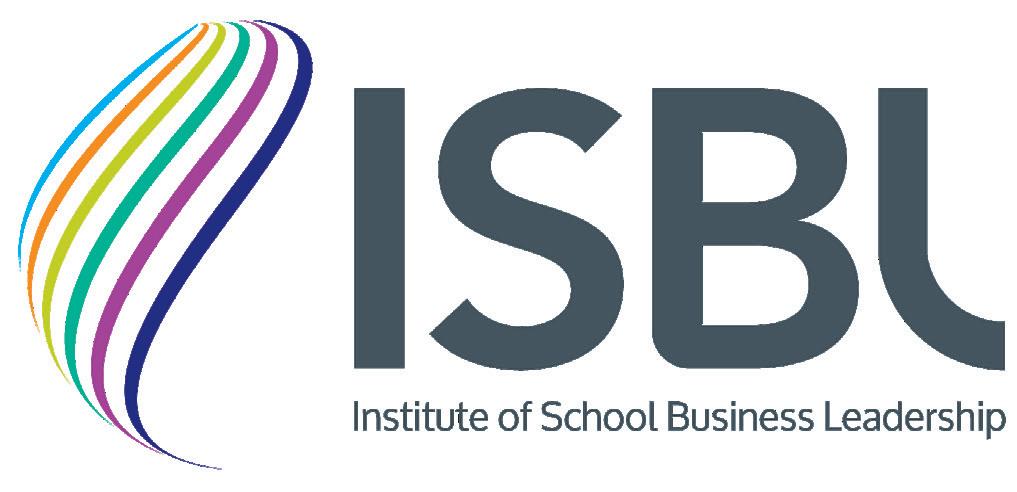
Looking at the key ingredients identified through the findings and aligning these insights to learning outcomes with the ISBL professional standards, ISBL will ensure that this year’s national conference provides the greatest opportunity for focused professional development, practitioner insights and shared learning opportunities.
The conference programme is being developed following consultation with members and oversight by ISBL’s Events’ Special Interest Group (SIG), which comprises professionals from maintained schools and academies, every phase, and all types of schools to ensure that the programme reflects the needs of practitioners at all career stages and setting type.
This year, we will be streaming content against the ISBL professional standards’ practitioner level, including suggested relevance by job roles and a stream focused on organisational growth and sustainability through the prism of operational excellence.
The conference will draw on the findings of the research including hearing from speakers, panel representatives and workshop leaders whose schools and academies participated in the research, therefore offering real insights into current and future practice being deployed.
In the current climate, every school business professional (regardless of their role within a
setting) is being challenged to deliver more with less. Our research into operational excellence (known as Op Ex) looks at how schools are unlocking this potential and optimising their current resources.
Op Ex looks at how the transformation and technical enablement of an organisation allows it to perform optimally and achieve its strategic objectives, using people and processes to unlock and identify further potential.
Who should attend the annual conference?
We recognise that practitioners are operating across different roles, school and academy types, and structural approaches.
This year, the team will be providing a detailed breakdown of the learning outcomes expected for delegates attending the event so that you can map these against your own self-assessment against the ISBL professional standards to demonstrate the value that attendance will provide in growing and maintaining your professional knowledge, while also providing access to valuable peer networking.
your place, professional development, and peer engagement
The programme is being finalised ready for release, and the early-bird packages are now available to book, offering you further savings on your attendance at this year’s event.
To secure your early-bird place, please book by 3 June 2024. M
FURTHER INFORMATION
https://www.isbl.org.uk/2024isbl-national-conference
Rupert Weber, head of education at apetito, looks at how schools can save money when it comes to school meals

From speaking to schools, we know that cost and efficiencies are key priorities. One area that schools can make savings, without compromising on quality is in the kitchen. In the past, schools have typically opted for expensive contract caterers or a complex inhouse service. However, by choosing apetito’s pre-prepared catering model, schools can achieve unrivalled commercial benefits.
We help schools achieve full control of their menus and staff, while delivering exceptional meals. Our service is easily adapted to suit bespoke needs and demonstrates real value for schools prioritising quality, efficiency, and cost-effectiveness. apetito’s revolutionary school catering model is gaining huge popularity by helping schools achieve immediate savings of 15 to 20 per cent on their catering with zero compromise on quality. Unlike traditional kitchen setups that demand a team of skilled chefs and kitchen staff to source ingredients and prepare meals from scratch for pupils with increasingly diverse dietary requirements, our catering system eliminates much of this costly and labour-intensive work. Our system typically
requires 50 per cent less staff and completely removes the requirement for skilled cooks and chefs – resulting in significant cost savings.
Food waste is also reduced because our premium pre-prepared meals and portion guidance mean schools are easily able to cook and serve meals to pupils’ exact needs. Another advantage of our system is that our model needs far less kitchen space and equipment. Before moving to apetito, many of our partners were facing significant costs to refurbish their kitchens, whilst other partners didn’t have a kitchen at all. apetito enables schools to cook on-site, improving food quality and uptake, with less kitchen space and costs when compared to any other catering system.
One school we recently launched were quoted £320,000 to refurbish their ageing traditional in-house kitchen. Partnering with us meant they managed to save £250,000 on redesigning their kitchen around the apetito system. Every day on this site, three kitchen assistants serve over 400 meals, with no chef required. In fact, the school’s hot meal uptake has grown by 300 per cent since implementing apetito and the school has been able to facilitate this growth without the need for additional kitchen staff. The management and kitchen staff have loved how simple it has been to serve hundreds of students a day.
We are really proud of our service because we know it is making a real difference – helping to give schools full control of catering and great quality meals, all while reducing cost and improving efficiencies. M
Discover more about apetito: https://apetito.link/EB

Personal development must be given much greater prioritisation than it currently receives, and there is a strong case that progress in this area should be measured. Hayley Sherwood, governor for PSHE and mental health at The Leys Primary and Nursery School, explains why
What do PSHE, RSE, British Values, Protected Characteristics and Character Education all have in common? Two things: they have all been thrown at schools with too many grey areas around assessment, curriculum coverage and teacher training, and fundamentally they all fall under the broader banner of personal development. It is personal development that we should be focusing on going forward. Assisting children with personal development is crucial as it nurtures emotional resilience, healthy relationships and essential life skills. It empowers them to face life’s challenges, make informed choices, and become wellrounded individuals who contribute positively to society, setting the foundation for a fulfilling and successful future. Personal development must be given much greater prioritisation
than it currently receives, and there is a strong case that progress and attainment in this area can and should be measured. Why? Because we need to focus more on prevention, not cure, to reduce the major societal issues we are facing in this country. Our children are vulnerable, and we should be doing everything we can to protect them from growing threats in society.
Let’s look at knife crime. Statistics paint a stark picture: incidents of knife-related violence are on the rise. According to the Office of National Statistics, in the UK alone, police recorded over 50,500 offences involving a knife or sharp instrument for the year ending March 2023; representing a 10 per cent increase from the previous year. Sadly, these figures are not E
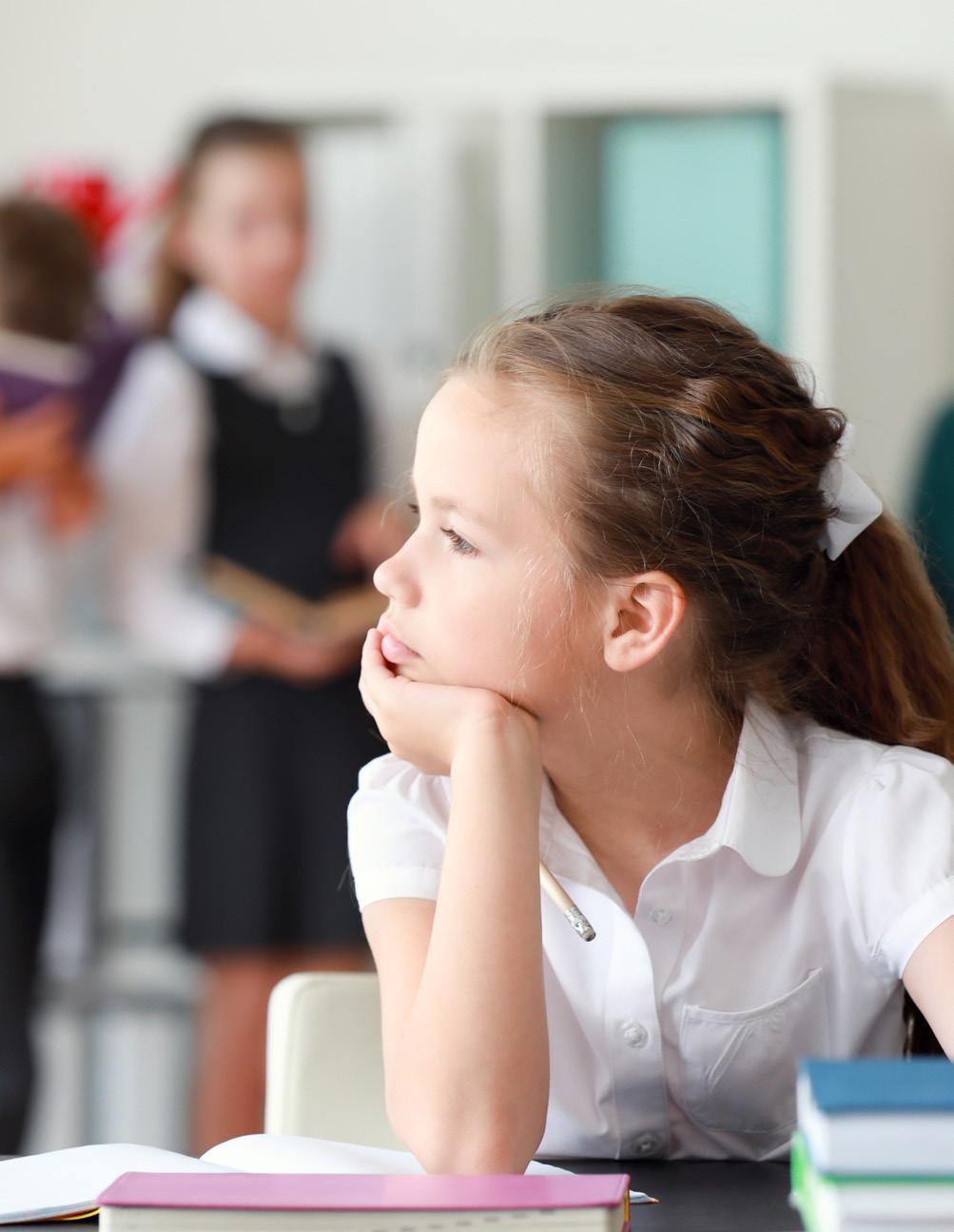
F just abstract numbers – they represent lives shattered, families torn apart, and communities left in fear.
But why are these numbers climbing? The answers are complex and wedged deep within societal, economic, as well as cultural factors. However, one undeniable truth emerges: knife crime often starts young. Many perpetrators and victims alike are teenagers or even younger. This is where the power of education comes into play. Education is not just about reading, writing and arithmetic – it is about equipping young minds with the tools they need to navigate the complexities of the world around them. By educating our youth about the dangers of knife crime, we empower them to make informed decisions and resist the pull of violence.
The challenge of childhood obesity is another pressing public health concern for the UK. According to Public Health England, 23.4 per cent of children in Year 6 are obese. Diabetes currently costs the NHS £14 billion per year (£25,000 a minute) and the impact of obesity on children’s physical and mental health will inevitably lead to future costs. In terms of the PSHE community, we have seen a hugely positive push for more education on healthy nutrition in schools. From Jamie Oliver’s Healthy School Foods Awards to encouraging good mental health, we believe the holistic approach is making a real difference to our pupils’ overall health and wellbeing. But in both these cases, and others, more early
education for children from primary school age is needed, including additional focused lessons. Schools are in a very strong position to support children in developing positively and creating an impact on the next generation. To help educate children in areas such as conflict resolution, emotional regulation and selfcare, improved self-worth and self-confidence, reduced anxiety, healthy relationships, and better understanding of nutrition, we can reasonably expect that increased coverage of personal development will ultimately impact on societal issues in the long term – but schools need data to inform their focus.
There is currently no way of formally and consistently assessing children’s knowledge of personal development and evaluating various aspects of their emotional, social and moral growth at key stages of their education, for example through Sats. In response, we have identified an opportunity to introduce two 25-minute tests to gather children’s personal development knowledge at the end of primary school, and created a draft ‘Personal Development Transition Quiz’ which provides schools with the ability to quickly assess and gather data on their pupils’ knowledge when it comes to this area. This gives teachers personal development data, which does not currently exist, before children transition from Year 6, and helps them to address gaps in knowledge for individuals/ groups and sharpen the focus of their personal development education provision. The quiz itself provides a sequence of multiple choice questions which cover 12 areas of personal development, all closely linked to PSHE and RSHE curriculum. Once a pupil has completed and submitted their choices, teachers can assess data and adjust focus for their lessons, assemblies, etc. This, in turn, gives staff the reassurance that pupils are fully prepared for their transition to secondary education and beyond. The software provides schools with year-by-year data – data can be filtered by groups such as pupil premium, SEN and other – and allows them to retest pupils to evidence where they are closing any gaps. By identifying how schools are closing the gaps, not only can staff feel satisfied that they are supporting pupils to transition into secondary prepared for their new challenges ahead but this evidence can also positively improve inspection outcomes: supporting
schools in meeting Ofsted grade descriptors on schools’ intent to provide for the personal development of all pupils, and the quality with which they implement this work. The principle of such a test may be a useful starting point for further development by the Department for Education (DfE), and consideration ultimately given to whether it becomes a statutory requirement for schools.
As part of our longer term campaign, we are also calling for the next government to consult with the teaching profession on increasing the amount of time in the curriculum for coverage of personal development topics from 45 minutes to ideally 1.5 hours per week, and finding a way to rebalance curriculum priorities to make space for teaching it effectively.
We recognise that space will need to be created in an already cramped national curriculum, but this is about priorities: as we know too well, education is not just about what happens within the four walls of a classroom – it is about creating a culture of responsibility and accountability within our communities. Lessons may be focused on areas for development identified in the fully-fledged personal development test. For example, there could be more around the impact of knife crime, and additional lessons on conflict resolution and peer pressure. On obesity, greater focus on healthy eating, and lessons on cooking, making healthy choices and mindfulness, would be natural early intervention activities.
The outcome would be more effective education (especially in primary schools) and, through earlier and better targeted intervention, potential to impact on major societal challenges and related government spend over time. A desirable follow-on benefit would be to reinvest attributable cost savings on related societal issues made in the longer term into personal development education, including teacher training, through the new ITTECF framework and ongoing professional development, and high-quality resources. In the shorter term, however, we might also consider how pupil premium funding may be used to support personal development in primary and secondary schools.
In the fight against major societal challenges, education is our most powerful weapon. We believe in the transformative power of schools
We are calling for the next government to consult with the teaching profession on increasing the amount of time in the curriculum for coverage of personal development topics from 45 minutes to ideally 1.5 hours per week, and finding a way to rebalance curriculum priorities to make space for teaching it effectively
to shape the future and foster personal, social and emotional growth. Seeking to address issues in secondary schools is too late – we have to do more in primary. By arming our children with knowledge, empathy and resilience, we can create a generation of changemakers who are equipped to build a better society for all. It will not be easy, and the road ahead may be long and challenging. But by investing in the education and empowerment of our young people, we invest in a brighter, more hopeful future, and crucially one where every child may grow up in a safer and healthier country. L
Hayley Sherwood is founder of 1decision and governor for PSHE/mental health at The Leys Primary and Nursery School.
FURTHER INFORMATION
www.1decision.co.uk




With mental health and behavioural problems driven by social media use, Robyn Quick explores whether a ban will truly solve these issues
The school bus or the drive to school is more often than not a journey bathed in white artificial light. Going on a mobile phone or a tablet are one of the ways many children in the UK spend their time.
The worry for many people in education is that this screen time is continuing into school grounds, and is disrupting the learning of young people. As well as this, the risk of cyberbullying is heightened by children having electronic devices easily available during the school day.
The Department for Education (DfE) estimated that by the age of 12, 97 per cent of children own a mobile phone.
With mobile phones inevitably comes social media, which many say has a negative effect on young people’s minds and mental health.
According to Ofcom, parents of 3-17-year-olds were concerned about how some content could harm or negatively influence their children.
Seven in ten parents were concerned about their child seeing content online that would encourage them to harm themselves.
Six in ten were worried about the possibility of their child being influenced by extreme views online, whether political, social or religious.
Martina Larkin, CEO of Project Liberty, an international organisation focused on a

responsible approach to technology access, said: “We are facing a youth mental health crisis related to the use of social media.
She said: “Most families, educators and young people themselves know the challenges of social media, but are left with few avenues to and support to address it.”
Seven in ten parents were concerned about their child seeing content online that would encourage them to harm themselves
Organisations such as Project Liberty have even taken matters into their own hands and introduced projects to make sure children are using mobile phones and technology safely. They are part of “Safe Tech, Safe Kids,” which is a team of organisations, activists, and technologists who aim to empower young people to be aware of how addictive social media can be.
This is not to say that using technology at school does not have benefits. For example, the same report from Ofcom suggested there were a variety of positives to be gained from integrating technology into education.
In 2022, over 80 per cent of young people aged 12 to 17 said that being online had helped them with school and homework. Almost seven in 10 (68 per cent) said it had helped to build and maintain friendships, and around half of young people use the internet to find out about the news.
However, it is important to strike the balance between a healthy and addictive relationship with social media and online content. E


F So, what is the government doing about it?
The government has introduced guidance into schools on how to monitor mobile phones at school, but there are no legal requirements at the moment.
The new guidance introduced in February this year said that schools should prohibit the use of mobile phones during the school day, but they will have autonomy on how to do this. How strictly individual schools stick to these guidelines is up to them. Some may allow phones to be brought onto the premises but not to be used during school hours, including at breaktime. This could mean that schools have a secure cubby for students to put their phones, or more of a loose policy where children are trusted to keep their phones off and away. This brings England in line with other countries who have put in place similar rules, including France, Italy and Portugal.
Can schools and parents ban social media?
There has been an increase in calls to more heavily monitor social media for under-16s, especially after the murder of teenager Brianna Ghey.
Ghey was 16 years old when she was killed by two teens. Before the murder, the 15-year-old attackers had been using social media and the internet extensively to research serial killers and torture. It is hard to ignore that if the killers had not been exposed to such graphic
content at an early age, they may have been less likely to take Ghey’s life.
One solution to the problem came at the end of 2023 with the enforcement of the Online Safety Act, which encourages companies to take a tougher approach to enforcing minimum age limits for creating social media accounts, which are widely flouted. It contains a range of measures intended to improve online safety in the UK, including duties on internet platforms about having systems and processes in place to manage harmful content on their sites, including illegal content.
Ofcom estimates that almost a third of eight to 11 year olds have a TikTok account. However, TikTok says in their policy statement that users must be at least 13 years-old to have an account.
Pamela B. Rutledge of Psychology Today said that outright banning social media and phones is “unrealistic” as it cuts children off from their primary source of communication. Instead, she proposes setting clear rules in school settings for when social media and mobile phones can be used.
Schools across the world are taking different approaches regarding smartphone use in schools. Unesco found that almost one in four countries have banned smartphones in schools in laws or policies including Côte d’Ivoire and Italy. M FURTHER
https://educationhub.blog.gov. uk/2024/02/19/mobile-phones-inschools-are-they-being-banned/
National Association for Special Educational Needs (nasen) is delighted to announce the first recipient of ‘nasen Assured’ status, as part of the Quality Framework process, aimed at enhancing accessibility in products and services for individuals with special educational needs
Aligned with our mission to advocate for inclusivity and accessibility in education, nasen Quality Framework enhanced consultancy allows products and services to undergo a review by sector specialists. Upon review, the nasen team will provide specialist advice to optimise the accessibility of the product, resource or service, helping to ensure that it meets the needs of individuals with special educational needs.
At the end of the process, the reviewed product or service may receive prestigious nasen Assured status. This allows the use of our logo, symbolising that the product has reached our required standard for accessibility. Valid for two years, this mark represents excellence in inclusivity. Furthermore, awardees will gain exposure on the nasen website and in nasen Connect magazine along with special recognition in the event brochures of nasen’s premier events, nasen Live and nasen Awards.
Speaking of their achievement, Rockerbox co-Founder Emma Halder said: ‘We are thrilled to be the very first recipient of this prestigious mark of quality from nasen. Collaborating with nasen’s education experts on this process has been invaluable. It has not only offered us a chance to reflect on our achievements but has inspired us to set ambitious goals as we strive to ensure that non-fiction reading materials are inclusive and accessible to every young person.’
nasen assured organisations can enjoy a 20 per cent discount on advertising through nasen’s other communication channels. M
FURTHER INFORMATION
For more information about the nasen Quality Framework and how to participate in the program, please contact our team at education@nasen.org.uk.


all your
If you’re juggling your kitchen extract and ventilation cleaning along with fire damper testing, Legionella management and IAQ testing, talk to us about our packaged services, which save you time and money.
Knowing the basics of first aid could mean the difference between life and death. How can we make sure students are being given these essential skills? Robyn Quick finds out
A collapse in the street. A burn in the kitchen. A seizure on the bus. All of these scenarios require at least a basic understanding of first aid. However, the British Red Cross said that only one in 20 adults in the UK have the confidence or skills to provide basic first aid in an emergency situation. This can lead to unnecessary deaths, injuries and disabilities, and can put greater pressure on emergency services. It’s no wonder that many schools and organisations are pushing for more children to learn these life-saving skills. Former secretary of state for education, Damian Hinds, said in 2019 that “children and young people are growing up in an increasingly complex world,” adding “they need to know how to be safe and healthy.”
First aid is the first and immediate assistance given to any person with either a minor or serious illness or injury. This definition spans a whole range of medical ailments from CPR to drowning, from nosebleeds to choking. There are a variety of ways schools can incorporate first aid into the curriculum in an inclusive and informative way. While it may take a little extra effort to include in children’s education, the pros massively outweigh this. For example, first aid increases awareness and can reduce a child’s susceptibility to accidents. Also, it can be empowering for young people to not feel helpless in an emergency situation. They can instead use their knowledge to act quickly and efficiently. Teaching children these skills now paves the way for a more first aid aware generation in E


It can be helpful for children to see teachers getting involved as well, and a first aid refresher can never hurt
F the years to come. So what can schools do to encourage young people to get involved?
The Department of Education recommends different levels of first age for each Key Stage. To ensure that students are at the right level of first aid, there are a variety of lesson plans to choose from.
St John Ambulance, for example, offers a handy guide for different Key Stages and headed the “Every Child is a Lifesaver” campaign along with other charities to make sure first aid was added into the school curriculum.
Lisa Sharman, head of education and product development at St John Ambulance, said the organisation has introduced these materials to “teach and inspire the next generation of lifesavers.”
She added: “The KS2 lesson plans and guides contain engaging step-by-step guides and
presentations to help teachers confidently explain how to safely give someone first aid for a range of emergency scenarios with language being adapted to suit each age group.
“Alongside this, we’ve developed our Young Responders programme which has been rolled out in key locations across the country and focusses on supporting young people from under-served communities.”
Sharman said the programme tailors first aid and mental health advice to each community to help tackle contemporary problems and more localised issues, like street first aid, relevant to young people.
As well as this, the British Red Cross has a ‘First Aid Champions’ resource available for free on their website.
It gives a wide range of categories that are specifically targeted at different age groups such as teaching 14 - 19 year-olds about medical issues caused by alcohol. First aid lessons can be taught by existing school staff, or they can bring in external experts. It’s a legal requirement for schools to have a minimum of one first aider on the premises at all times. This means that teachers aren’t legally required to be qualified first

aiders, but it is strongly recommended that they are given some kind of first aid training. Both options have cost and resource implications, as it costs more to outsource professionals. However, it can make a big difference by providing that hands-on approach to practical training to bring the subject to life and really engage the children.
Setting up a first aid club at school is a good way to get children involved with first aid, as well as meeting new people outside of lessons. Students and staff are able to come together to raise awareness of the importance of first aid and learn life saving skills, away from an academic environment. Unlike the previous suggestion, these clubs are voluntary which may mean the attendees will be even more passionate about learning first aid. It can be helpful for children to see teachers getting involved as well, and a first aid refresher can never hurt!
It can also be overwhelming for children in larger groups to learn the first aid techniques, so these clubs provide a smaller class for a better experience. The maximum number of children learning first aid together is 16, but this depends
Students and staff are able to come together to raise awareness of the importance of first aid and learn life saving skills, away from an academic environment
on how many clubs or classes your school can afford to run and availability of teachers.
These small numbers mean the teacher can make sure all the students are engaged and understand the content.
Knowing what is legally required as part of a school is always important, especially when it comes to first aid training and equipment.
Since 2020, the UK government has stated that all state-funded schools in England are required to teach first aid as part of health education for all Key Stages.
This is different for primary and secondary schools. Those in primary school are required to learn how to confidently make an emergency call and how to deal with head injuries.
Secondary school students are expected to be taught more complex emergency procedures, such as CPR and using a defibrillator.
The government has also been introducing first aid equipment to education settings, making it easier for children to make first aid part of their lives. Since July 2023, for example, every state school has installed defibrillators. It is the right of every one of these schools to have a working defibrillator, so if you don’t have access to one in the workplace, that should be looked into.
Secondary school pupils are expected to be taught how to use the device.
Finally, it is often easy to overlook the importance of first aid in schools. It can often seem like a tedious task to teach it to a class of students each year, but you must not forget how these techniques could one day save a life.
This is one of those lessons that students will take outside the classroom and can immediately apply to the real world.
If it is treated as merely paying lip-service to the topic, it could result in children learning the wrong techniques which could be dangerous. It is such an important topic that it is vital they fully understand what they need to be doing and why. L

How can schools ensure their trips are inclusive and accessible for everyone? Justine Lee from School Travel Forum shares some advice
Some of our best memories of our time at school are the trips we enjoyed – the places we visited, the things we did and the people we met. As well as supporting the curriculum and enhancing the learning experience, educational visits give students the chance to learn about topics in different ways,
which can be especially beneficial for pupils with special educational needs (SEN). Being excluded from these trips and visits can have a devastating impact on a student and their family. These excursions provide valuable opportunities for young people to be independent and to socialise with peers.

The Equality Act and what is expected
The Equality Act states that schools must not discriminate in the way they afford pupils access to a benefit, facility or service which includes school trips.
Schools and service providers have a legal obligation to make reasonable adjustments to ensure all students can benefit from an educational experience. This means schools must think about how to ensure all pupils, including those with disabilities, can take part in the learning experience and services provided.
The Equality Act applies to all trips, whether they are within the UK or overseas. Trips abroad can present extra risks and need a higher level of risk assessment. It is advised that schools use tour providers that hold the Learning Outside the Classroom (LOtC) Quality Badge. This gives teachers assurance that the necessary checks and assessments have been undertaken.
These excursions provide valuable opportunities for young people to be independent and to socialise with peers
How to make trips accessible to all
When you sit down to start planning your next school trip, you should look for activities students with disabilities can access and take part in. The facilities and services must also be appropriate.
to make your trips accessible
We have outlined some of the ways you can help create inclusive opportunities at your school and ensure your next school trip is accessible for everyone:
Firstly, it is vital to plan early. This is because pupil needs should be considered at the outset when planning a trip. This will ensure the activities, location or destination chosen are accessible and/or there is sufficient time to make reasonable adjustments to ensure all pupils can take part. It is also important to collaborate with colleagues. By starting planning well in advance, you will have time to consult with and involve everyone who provides support for the students – parents, support staff, teaching staff etc. This will give you time to learn about and understand each child’s specific needs, preferences, and concerns.
Talking to your chosen venue or tour provider is another good step to take. Some school trip destinations and providers have programmes which have been specially devised to meet the needs of children with SEND. These tailored programmes can help each child get the most out of their school trip. Involving your visit provider or venue as early as possible in the planning process will help ensure the trip is a success.
You must also consider what support is required for every individual, as everyone’s needs vary. Involving colleagues and the student’s family in the planning process will ensure the right support staff or teaching assistants are able to accompany the trip or there will be sufficient time to train other staff members on how to provide appropriate support and assistance.
Accessible accommodation is another aspect to consider. Ensure that all trip components – E

Even before you embark on the trip, make sure your students are well prepared and understand what will be happening throughout

F hotels, transportation, venues - are accessible and equipped with necessary facilities such as ramps, elevators, and accessible restrooms.
If you are using a tour operator, be clear about the needs of students so they can choose the most appropriate destination, hotel or transport.
Some people find creating a tailored itinerary can help to accommodate the needs and interests of all students, including those with SEND. Consider factors such as accessibility, sensory sensitivities, and physical limitations when selecting destinations and activities. Again, your tour provider will be able to advise on suitable trip and excursion options.
Having clear communication is also essential. Even before you embark on the trip, make sure your students are well prepared and understand what will be happening throughout.
For example, you can talk about the journey and what the accommodation will be like.
Share schedules, expectations, safety information and emergency protocols. Early planning means you will be able to build in frequent references to the trip ahead of the venture to ensure students feel comfortable about the upcoming experience.
For some students with SEND, sensory considerations are important to consider. To do this, be mindful of sensory sensitivities, especially on the journey or if staying away overnight. It is a good idea to encourage students to bring a familiar item with them and to use noise-cancelling headphones if appropriate. You can also identify areas where students can have ‘time out’ should they become overwhelmed in busy or crowded environments.
You can also make sure you allow for flexibility in your itinerary to accommodate the varying needs and energy levels of students. Build in breaks and downtime to prevent sensory overload or fatigue. Finally, you can provide safety training for staff on emergency procedures and how to support students with specific needs during emergencies. When you return to school, remember to record what you have learned. You could
On the River Thames, view one of London's iconic structures from our grounds. Visit our Information Centre, where you can learn how the Thames Barrier was designed , built and works.
On the River Thames, view one of London’s iconic structures from our grounds. Visit our information Centre, where you can learn how the Thames Barrier was designed, built and works.
On the River Thames, view London's iconic structures from grounds. Visit our Information where you can learn how the Barrier was designed , built and works.
Our packages and prices are available on our website
Our packages and prices are available on our website
Our packages and prices are available on our website
share a brief post-trip survey with students, staff, and parents to gather feedback and identify areas for improvement.
This information, along with your own reflections, can be used to inform future trips and ensure your school’s continuous improvement in inclusivity.
When choosing a tour operator for your overseas trip, make sure you use a School Travel Forum member.
All STF members hold the LOtC Quality Badge, which gives you additional assurance as to the standard of checks undertaken.
STF members are also members of either ABTA or ABTOT meaning your trip is financially protected.
The Outdoor Education Advisers’ Panel produces the National Guidance for educational visits and outdoor learning, and has a Good Practice guide for supporting students with SEND. M
www.schooltravelforum.com

Please tephone 0208 305 4188 or email us at Thamesbarriertheview@environment-agency. gov.uk for more details.
Please note there is no access on the Thames Barrier Structure.
Please note there is no access onto the Thames Barrier Structure.
Please telephone 0208 305 4161 or email us at Thamesbarriertheview @environment-agency.gov.uk for more details
Please telephone 0208 305 4161 or email us at Thamesbarriertheview @environment-agency.gov.uk for more details.

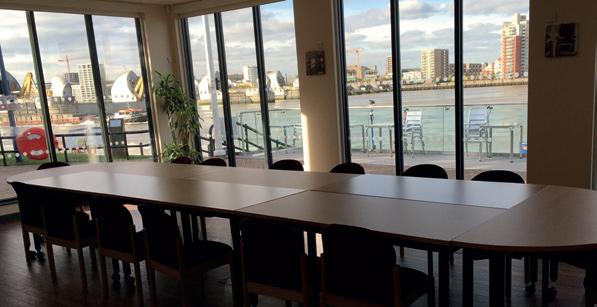
Please tephone 0208 305 4188 or email us at Thamesbarriertheview@environment-agency. gov.uk for more details.
Please telephone 0208 305 4161 or email us at Thamesbarriertheview @environment-agency.gov.uk for more details.
Please note there is no access onto the Thames Barrier Structure
Please note there is no access on the Thames Barrier Structure.
Please note there is no access onto the Thames Barrier Structure.

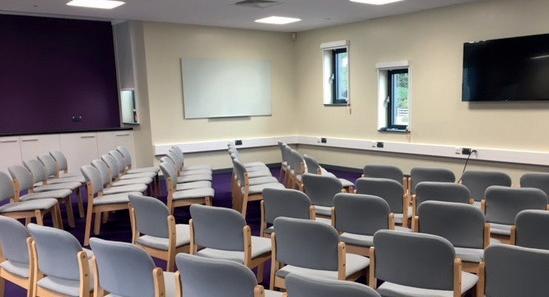


Matt Robinson, chief operations officer at Learning Through Landscapes, explores the vital role of play in education and how to create a safe outdoor space

High-quality play is an essential part of childhood. It is the primary way in which children and young people engage with the world around them. In recognition of that, Article 31 of the UN Convention on the Rights of the Child (UNCRC) states that every child has the fundamental right to relax and play. Through free play our children gain social skills, develop physical literacy (speed, power, agility, coordination, proprioception and more), they develop an awareness of nature and the community around them, they learn the skills of judging physical and emotional risk. They learn to self-regulate, to be independent, to develop skills of concentration and creativity. Finally, let us not forget how life-affirming and downright fun play is, great for our mental health, and particularly valuable for the children who have more stress and concerns in their life.

Outside of school, children’s play has seen dramatic changes in the last couple of decades. Funding for children’s play spaces and play services has dwindled. Traffic has restricted children’s opportunity to play in their own street, or move safely around a neighbourhood to a suitable play space. Parental fears and culture around children being unsupervised. These factors, and more, have led to a significant decline in children’s free play outdoors.
The time spent when I was a child in freely chosen outdoor, physical, and social play activities has been replaced by indoor, online, often sedentary and predominantly solitary play for many of our children.
We also see that children are living in an ever more adult-directed culture, being directed between one adult-led club to an adult coached sport, and back home to complete homework under the supervision of another adult.
This therefore leaves our schools as the only place of outdoor free play for many children. Playtime used to account for 20 per cent of pupils’ time in school. However, research from University College London has shown that break times have shrunk by an average of 45 minutes since 1995. We also know that the reduction in break time has been greater in schools who serve lower socioeconomic and urban schools.
School break times have also become more adult directed, with a lot of anecdotal evidence about the introduction of limits
on children’s play through stronger adult supervision and creeping (but usually misplaced) health and safety concerns.
This huge change in children’s opportunity for play has to be considered alongside the dramatic decrease in children’s mental and physical health. Many studies are now linking these changes to a fundamental lack of time spent playing independently.
Putting this together, we often observe schools with break times that are problematic. Arguments and fall-outs abound, physical games or even sports interfere with groups seeking a quieter space. Significant accidents can occur, and layers of rules are introduced to impose control, with supervisory staff finding themselves as referees rather than play facilitators.
The good news is that a good play experience can evaporate these problems. Schools with great play experiences see far fewer accidents, spend less time sorting arguments and bad behaviour.
I believe that much of this change in society and in schools is down to a lack of valuing of children’s play, with too few adults understanding the true benefits of play for their children. As teachers we focus on what we can control – formal learning time – and forget how valuable and important a great break time is for students.
So, what can schools do? They already have many of the tools required to support great play at break times, before or after schools. We usually have a safe outdoor space, adults who understand the children, and time allocated each day for a break time or three. I would suggest starting with a few straightforward steps:
As with all things in education, a group will carry a new project forward and sustain it far more than one person. We created the Playtime Revolution toolkit as a way of facilitating discussion and training anyone who supervises play time: it is a great place to start and free to use. Appoint a Play Leader role within the school, just as you would a curricular specialist. There is a lot of free reading for your play team – start with ‘The Good School Playground Guide’, ‘Inspiring Inclusive Play Design’, ‘The Loose Parts Toolkit’, ‘No Fear- Growing up in a Risk Averse Society’, ‘Managing Risk in Play Provision’, and ‘Supporting Children’s Play in Schools – A Reading List for Teachers’. E
The huge change in children’s opportunity for play has to be considered alongside the decrease in children’s mental and physical health
Your children are the experts in play in your school. They will tell you what is wrong, what opportunities there are, and be creative with ideas. Be careful to consult carefully – we ask children ‘what would you like to do?’ is the place to start. They will tell you about running, balancing, reading a book, singing and music, games they want to play. They will
tell you what stops their play (hint: it is often the adults), and what can be done about it.
This needs to be embedded in policy, included in your school handbook for parents, and shared with any new staff members to help prioritise play in school.
We spend time before school, break and lunch just watching the play that is (or is not!) happening. At Learning through Landscapes we often use the ‘Play Types Poster’ from Play Scotland and use this as a tally chart to understand the types of play occurring. This can highlight opportunities for new types
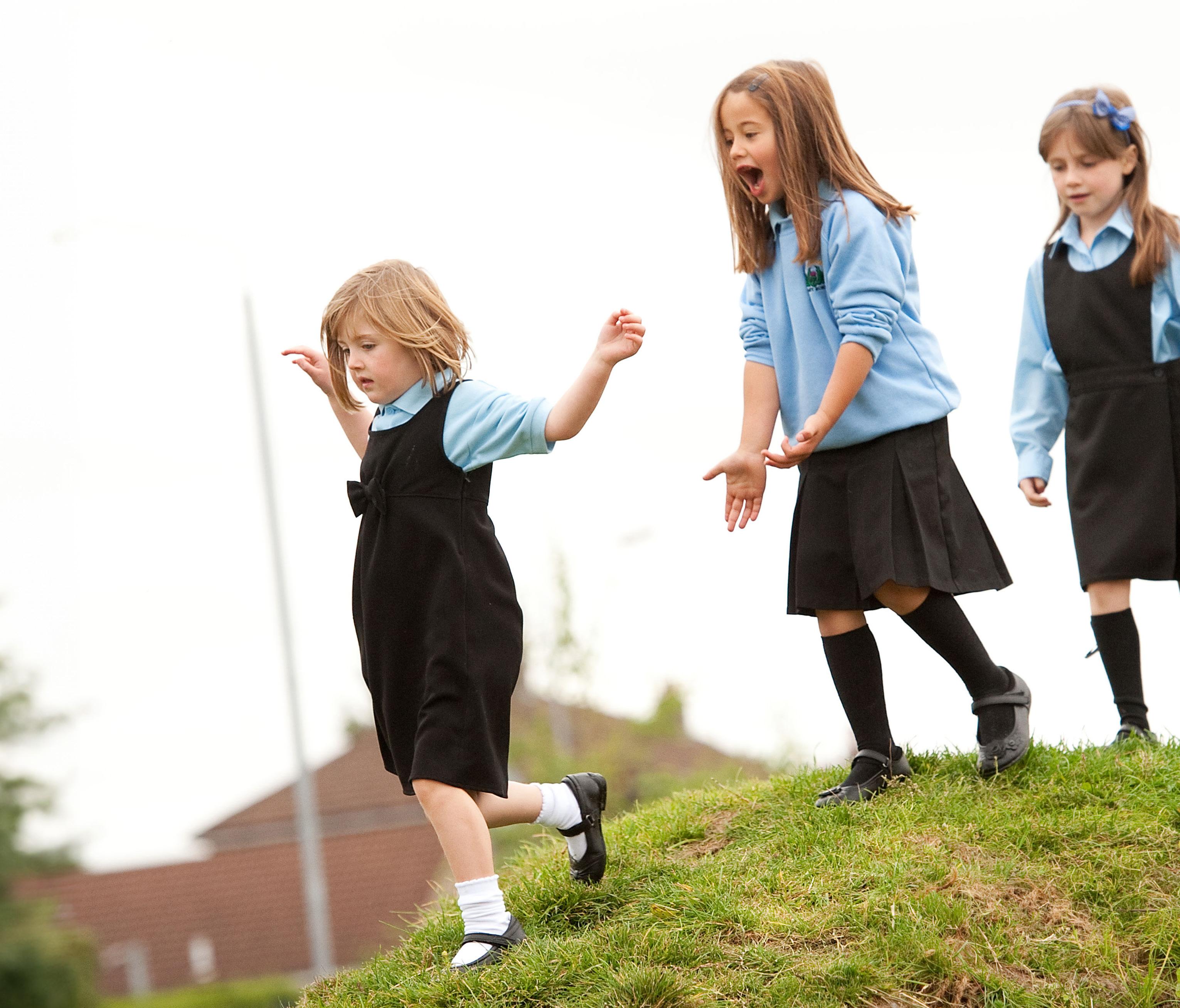
of play, perhaps a dominance of one type of play at the cost of another play type. Undertake this observation annually to refresh what is happening.
What are the issues you have with breaktime? Is it a reticence to be out in weather that is not perfect? Perhaps some of your spaces are too small or divided up? Does football dominate? Are girls and minority groups really listened to over their play preference? Do some of your children just not have the skills they need for play? Whatever the issues are, you will find a solution. Speaking to play organisations or my team at Learning through Landscapes will often uncover simple solutions that other schools have adopted. You can develop outdoor jacket
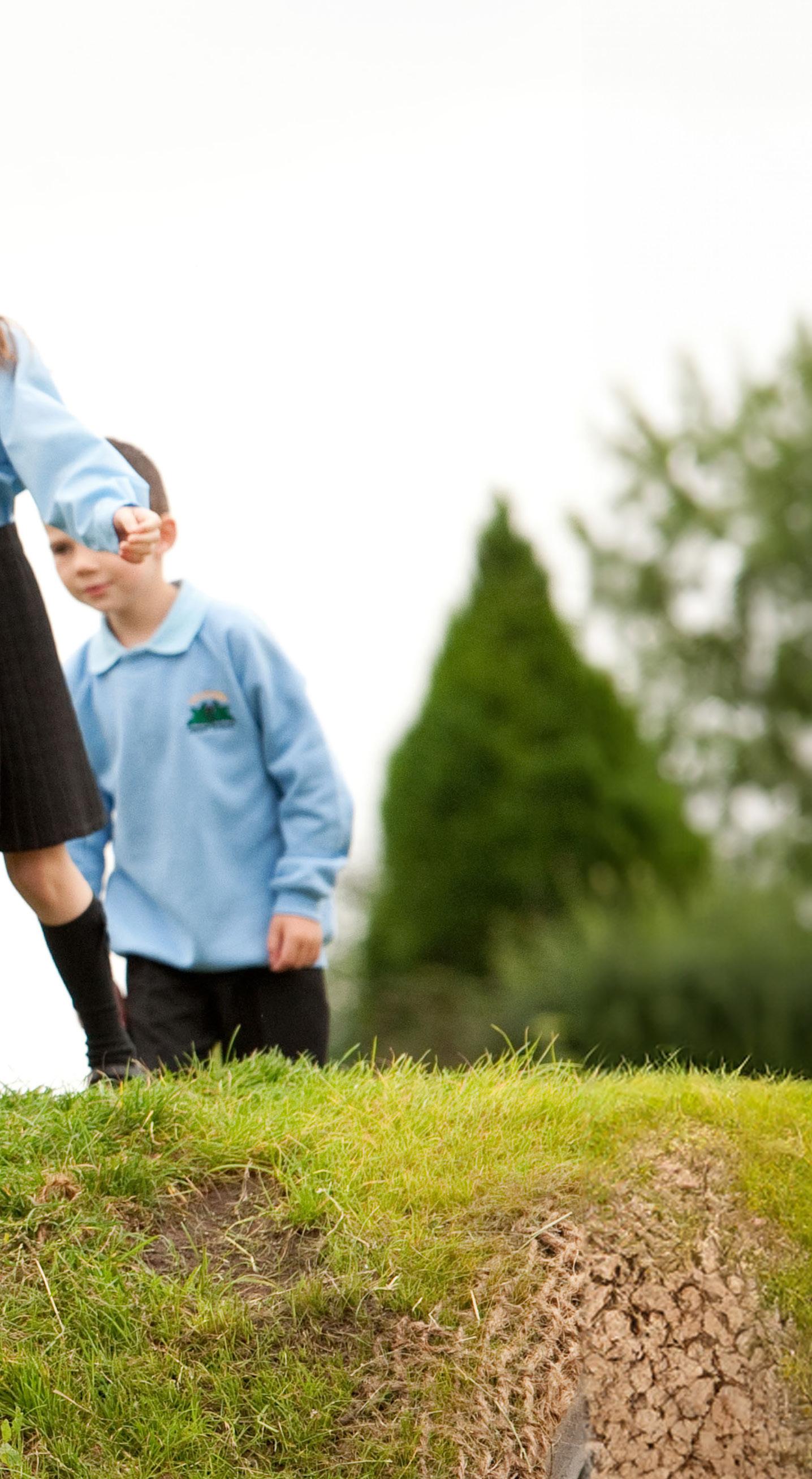

libraries, create different play opportunities, support children to develop play skills, improve spaces and resources, and solve any problem.
a plan, but take a first step You cannot do everything at once, but we can start with small steps, a plan to develop staff skills, encourage children to discover new play they enjoy, and a plan for making improvements to the grounds. For many schools, this plan takes months to develop and years to implement. You do though need to find small steps which staff and children recognise as successful, spurring them on to more.
As with any curriculum area, consider how you and the children review the changes and improvements made. This leads to a feedback loop which enables informed changes to the plan. How do you measure success in play is a question worthy of your time, and will lead to a more successful implementation.
As you make changes and see the improvements, make sure you take time to share the successes and changes. Pictures in the school, communicating with parents, have a stay and play session with parents instead of a parents information meeting. These are all ways of sharing the play experience at your school. Investing in play is one of the most important things a school can do. Your school grounds can become the most, and maybe only, outdoor play experience for your children and their families. I promise it will transform children’s health and wellbeing, reduce stress for staff, and improve all aspects of your school. M
Dr Amanda Gummer, chair of the Association of Play Industries, tells us about their latest campaign – Pathway To Play – and the crucial role that schools have in getting children outdoors, active and playing every day
‘Pathway To Play’ is a transformative campaign with a singular focus: putting play first in the lives of our children. In today’s world, where screens often compete for attention and schedules overflow with commitments, the simple act of play can sometimes get overlooked. Yet play is not just a leisure activity – it is the foundation upon which healthy, happy childhoods are built.
#PathwayToPlay is more than just a campaign – it is a call to action and a call for change. With a clear vision of fostering children’s well-being, we are urging the UK government to prioritise outdoor play by investing significantly in the UK’s most popular location for outdoor play – public playgrounds.
The statistics speak for themselves: childhood obesity rates are soaring, mental health issues are on the rise and sleep problems affect more and more young people. In the face of these challenges, it is imperative that we take decisive action to ensure that every child has access to safe, high-quality and local outdoor play spaces. As chair of API and a passionate advocate for children’s play, I am deeply committed to this cause. I have seen first-hand the transformative power of play in enriching the lives of children and strengthening communities. It is time for us to come together - policymakers, educators, parents and advocates - to make play a priority in the lives of our children.
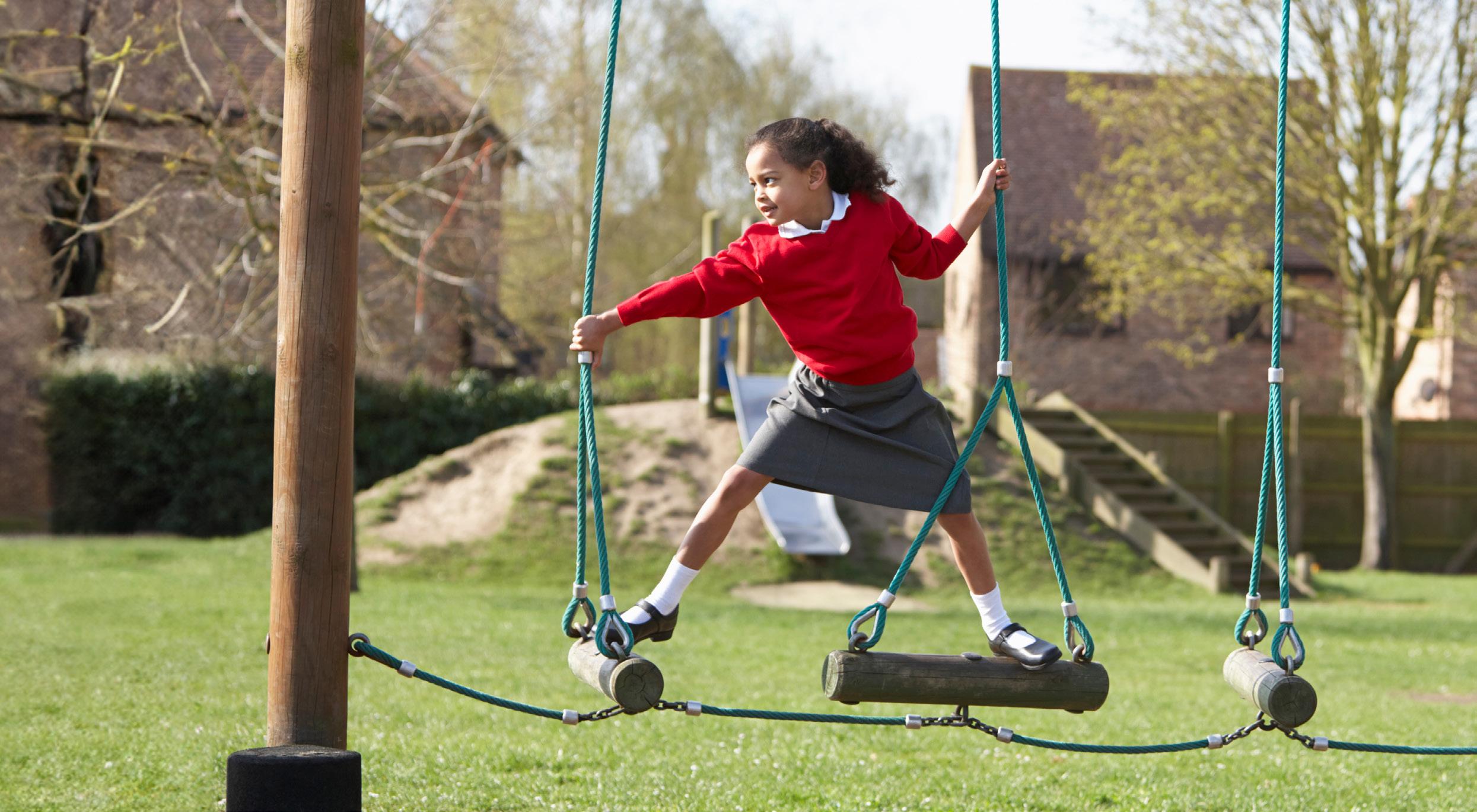
Our #PathwayToPlay manifesto outlines three key commitments that we are calling upon the next UK government to make.
First, we urge the government to conduct a comprehensive national audit of public playgrounds to assess their quantity, quality and location.
Second, we call for the allocation of dedicated government funding to ensure the long-term sustainability of public playgrounds, guaranteeing that every child has access to safe, free-to-use play spaces.
Third, and most importantly for the education sector, we advocate for increasing children’s physical activity levels through outdoor play at school, integrating outdoor learning into the National Curriculum and providing funding for school outdoor play spaces and equipment.
The API’s campaign champions the rights of children to play and express themselves in a world where opportunities to play are increasingly curtailed – a trend which is sadly all too evident in schools. With growing concerns about the mental and physical well-being of our children, a profound shift towards embracing play within educational settings is needed. British children spend 20 per cent of their entire time in school, so it’s time that play is no longer viewed as a ‘nice to have’ and instead accepted
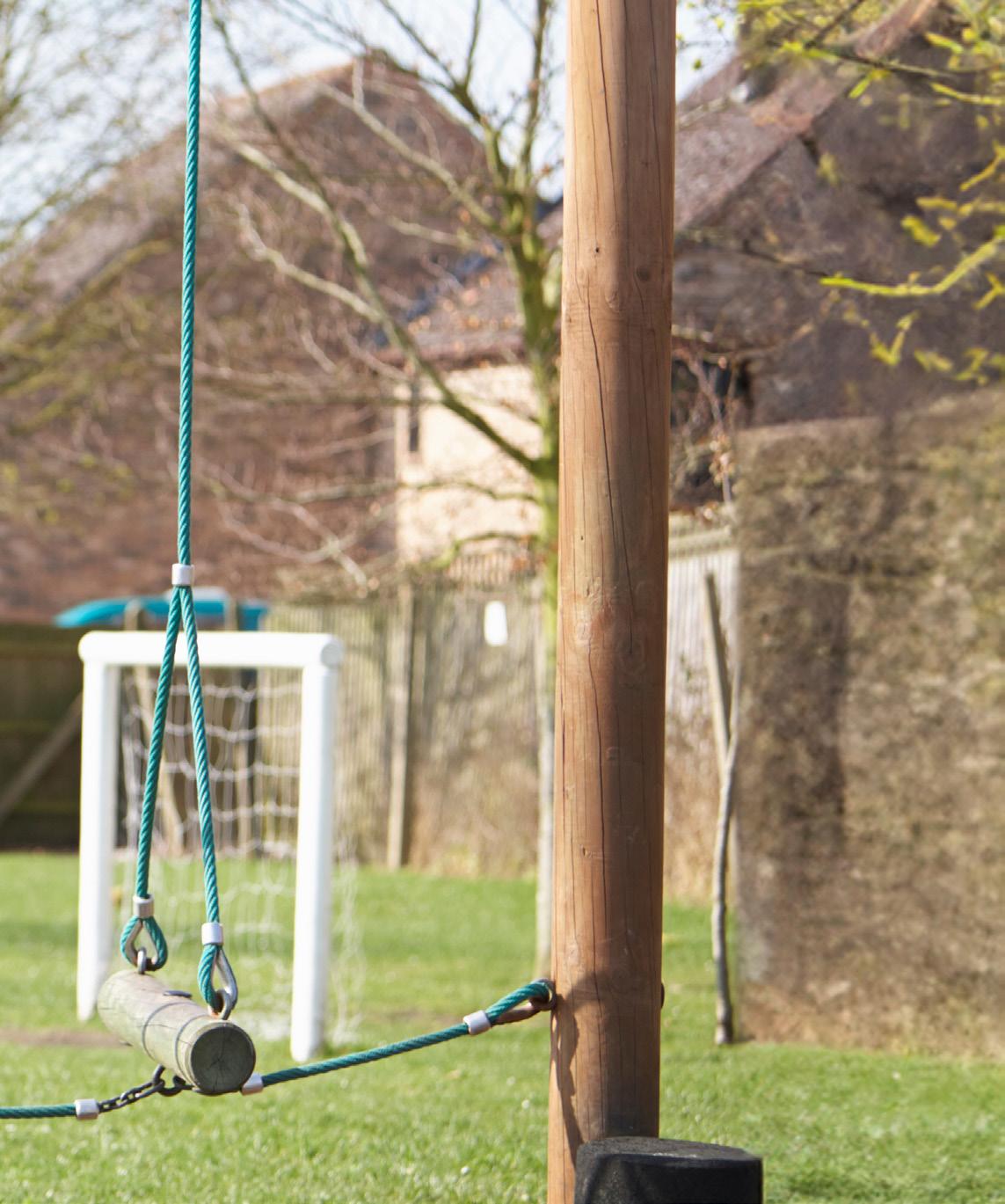
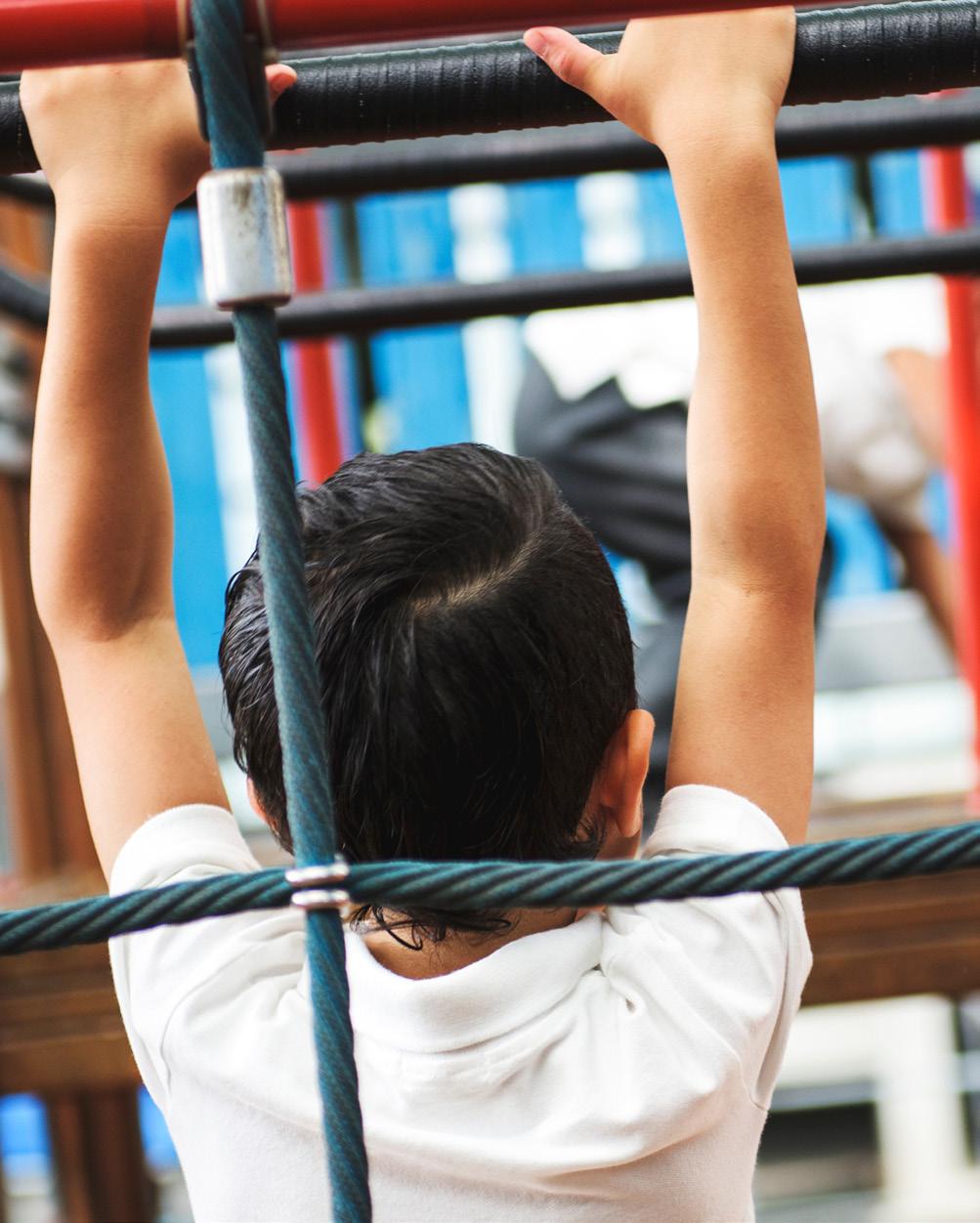
There is always the need to strike a balance between academic rigour and the needs of children to play. However, far from detracting from children’s academic progress, play can and should enhance it
for what it is – a fundamental component of normal childhood development and the foundation of a healthy and happy childhood. We are calling for a structured play plan across all schools, mandating its integration into the national curriculum. Crucially, we are also calling for it to be funded properly, beginning with reversing the decision to prevent schools spending the Sports Premium on much-needed outdoor play equipment.
Increasing time to play in schools is not without its challenges. A significant obstacle lies in the relentless pressures imposed by curriculum demands, often squeezing out play time. The erosion of play opportunities is highlighted by findings from a 2019 study by the University College London Institute of Education, which revealed a disconcerting trend of diminishing break times over the past two decades. E
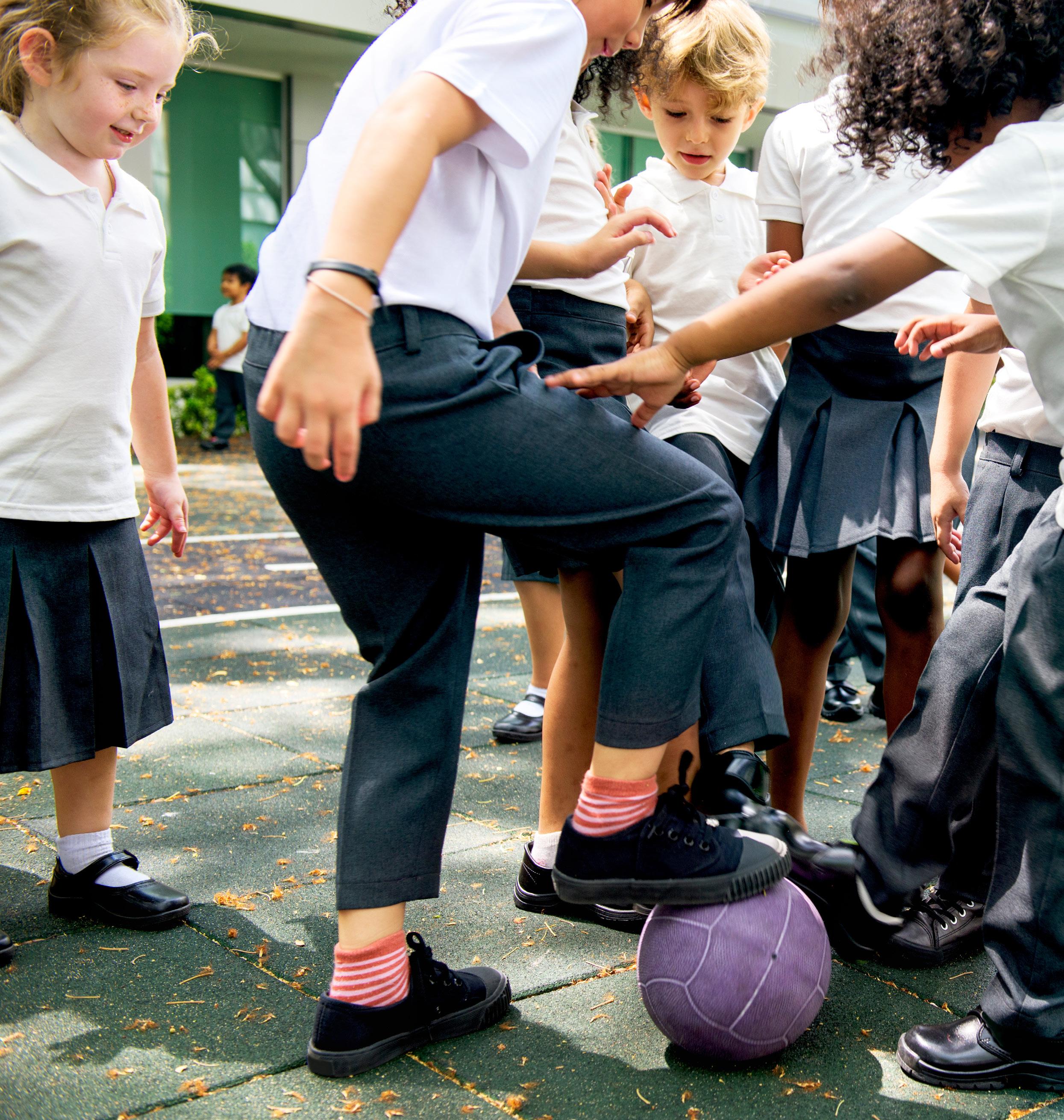
F There is always the need to strike a balance between academic rigour and the needs of children to play. However, far from detracting from children’s academic progress, play can and should enhance it. By recognising the intrinsic value of play in fostering cognitive, social and emotional development, educators can confidently advocate for the prioritisation of play in the school setting.
Our call to government represents a concerted effort to usher in the change needed, so that play is not perceived as a luxury but as a non-negotiable element in raising wellrounded young people who can thrive.
The role of schools School playgrounds often serve as one of the main factors in cultivating a lifelong
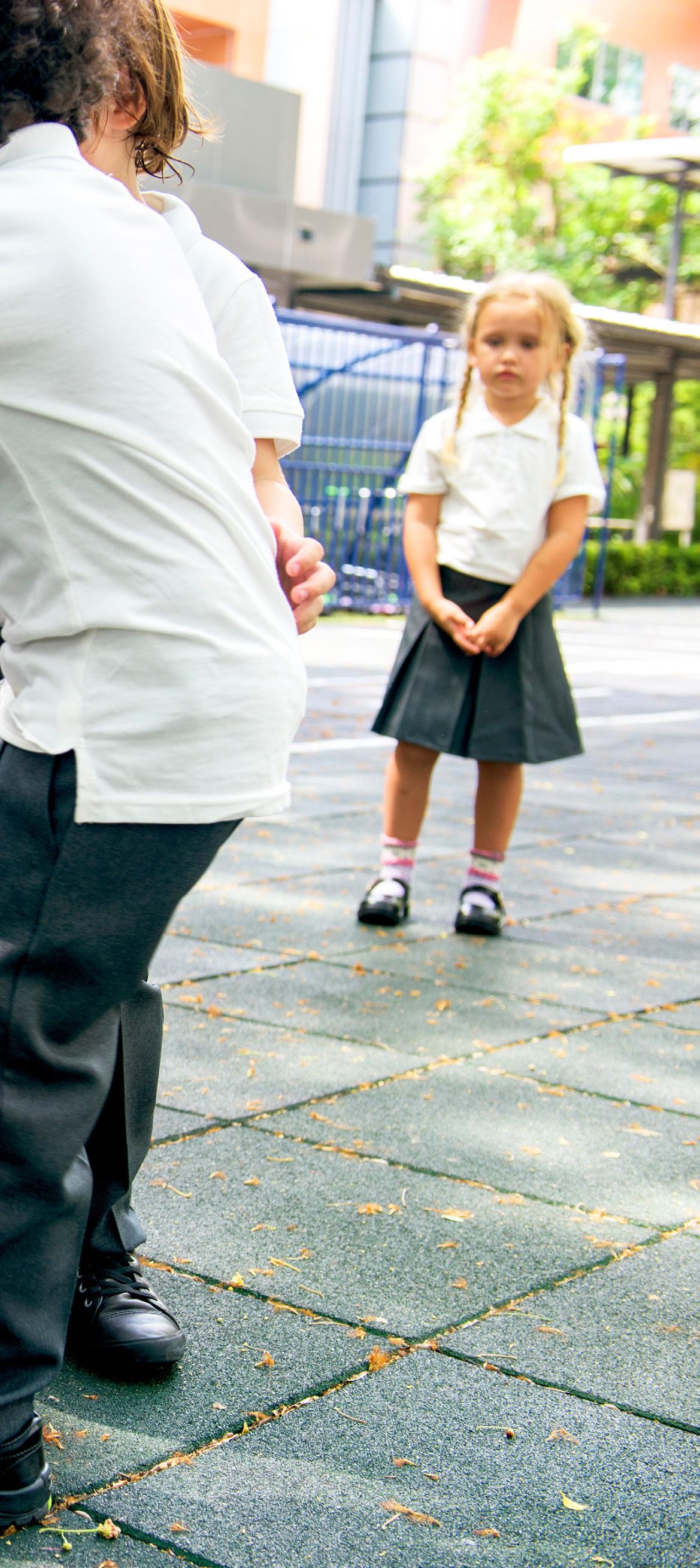
love of play among children, shaping their experiences and fostering a deep-seated connection with physical activity. The importance of these outdoor spaces means that the process of choosing the right play environment for schools is a significant one, requiring a lot of thought and research.
But the process, no matter how challenging, will reap rewards. Getting children out
of their chairs, away from the classroom and into the fresh air can bring a host of benefits. Children look at the world with fresh eyes when they are outdoors.
Children of all ages learn through play
Without even realising, children learn through play and develop knowledge, skills and lessons for life, from confidence and endurance to communication and leadership. It’s not just your Early Years classes that will benefit from learning through play; providing time, space, opportunity and a positive attitude to play benefits children of all ages.
Children have natural energy and enthusiasm so make the most of it by building physical activity into the whole school day. Use your playground and outside spaces to get children moving during lesson time, break and lunch times, before and after school, and for extracurricular activities, as well as during sport and PE lessons. It’s not just physical literacy levels that you’ll see improve – schools report improvements in behaviour and wellbeing too.
For children and young people in some socially deprived communities, school may provide the only safe outdoor place to play and be physically active.
Open your facilities outside of school hours Many communities lack high-quality facilities for sport and physical activity. Opening your physical facilities to clubs and the local community outside the school day raises the profile of the school within the community while generating an additional income stream.
Entrusting your play project to a play provider can seem like a daunting process. Members of the Association of Play Industries (API) are the UK’s leading play companies and are reliable, trustworthy and financially sound.
Backed by the API’s Professional Code of Conduct, they operate to the highest standards and will provide evidence of previous work and references. The API Charter ensures they design exceptional, high-quality play spaces for children of all ages and abilities. M
FURTHER INFORMATION
www.api-play.org








